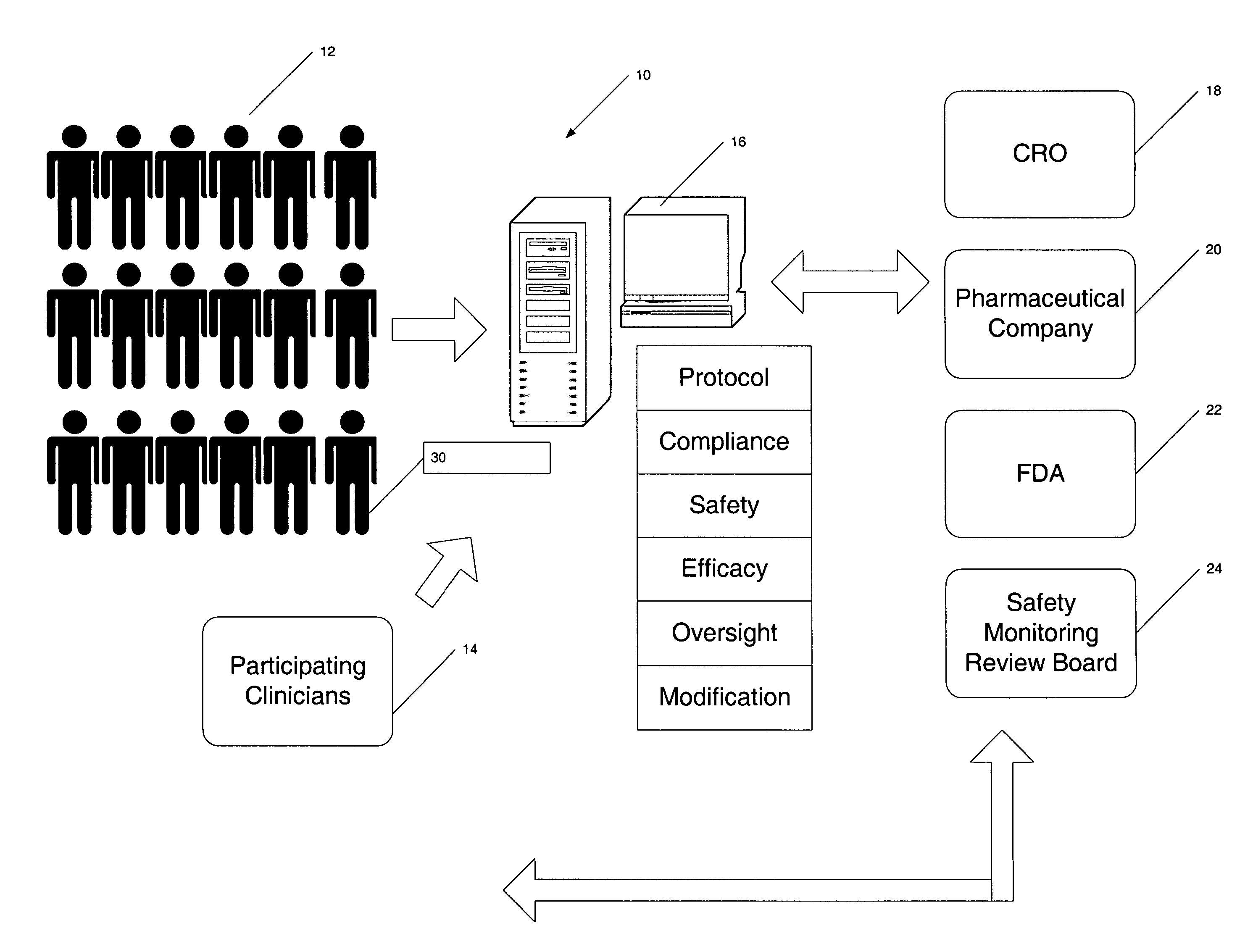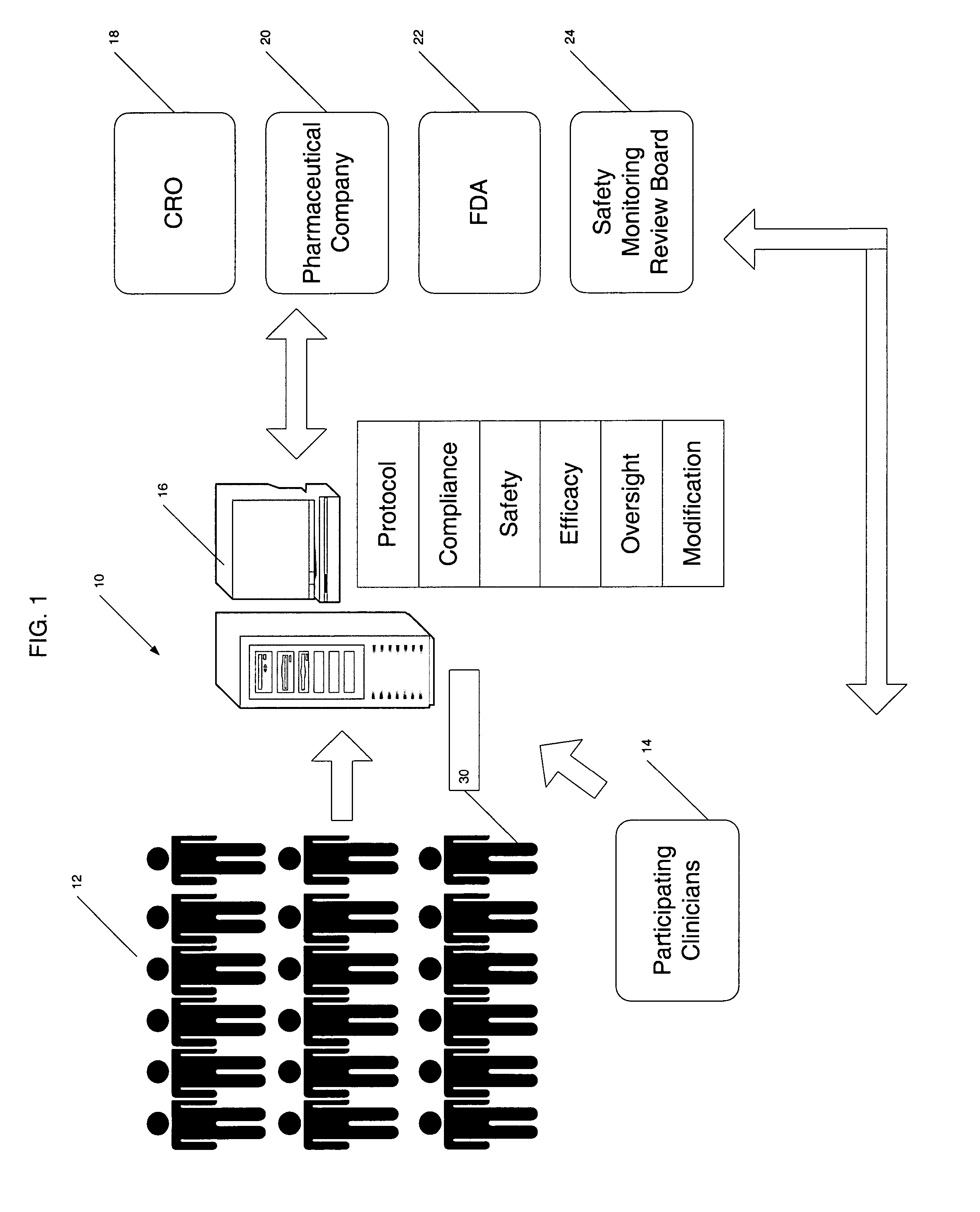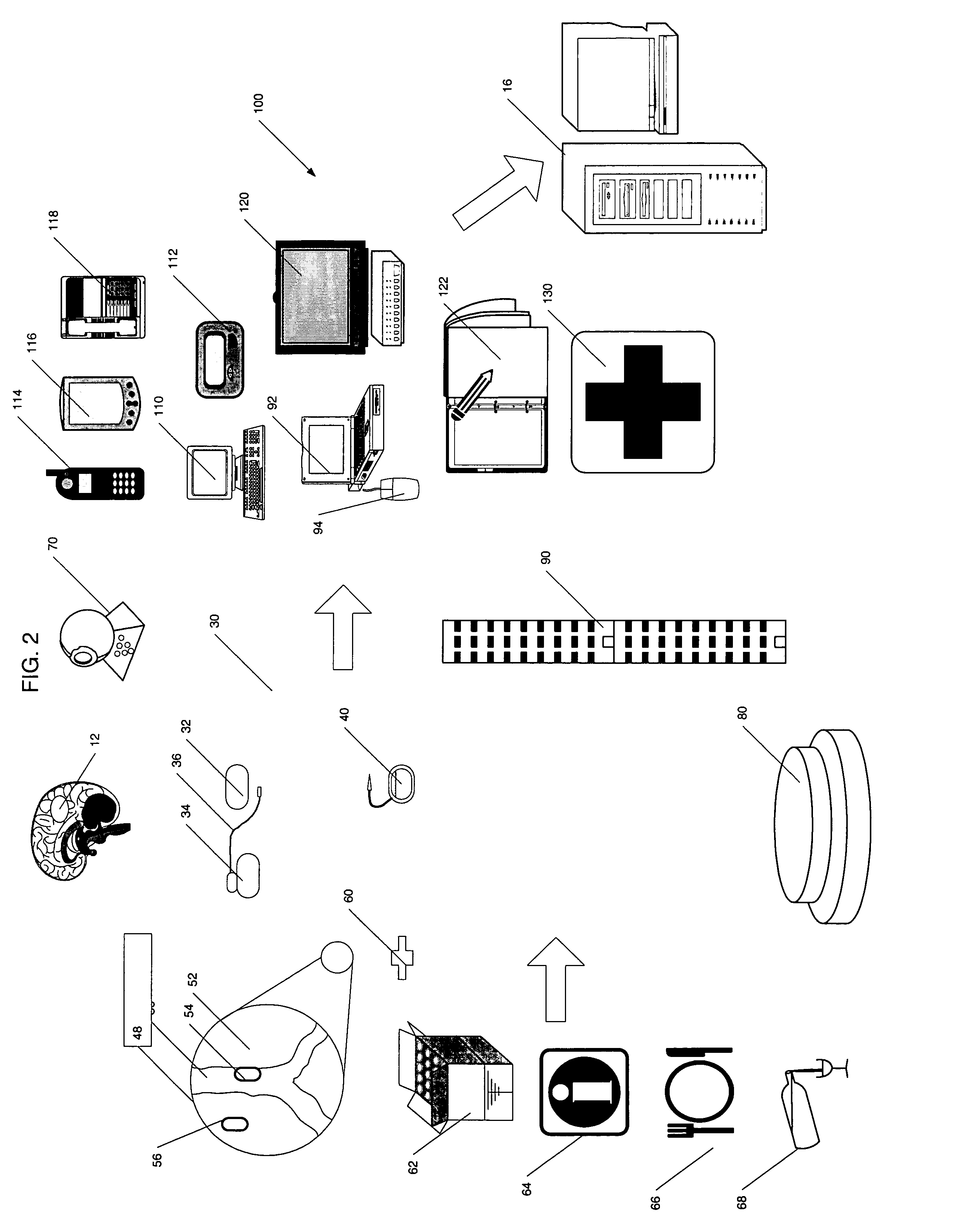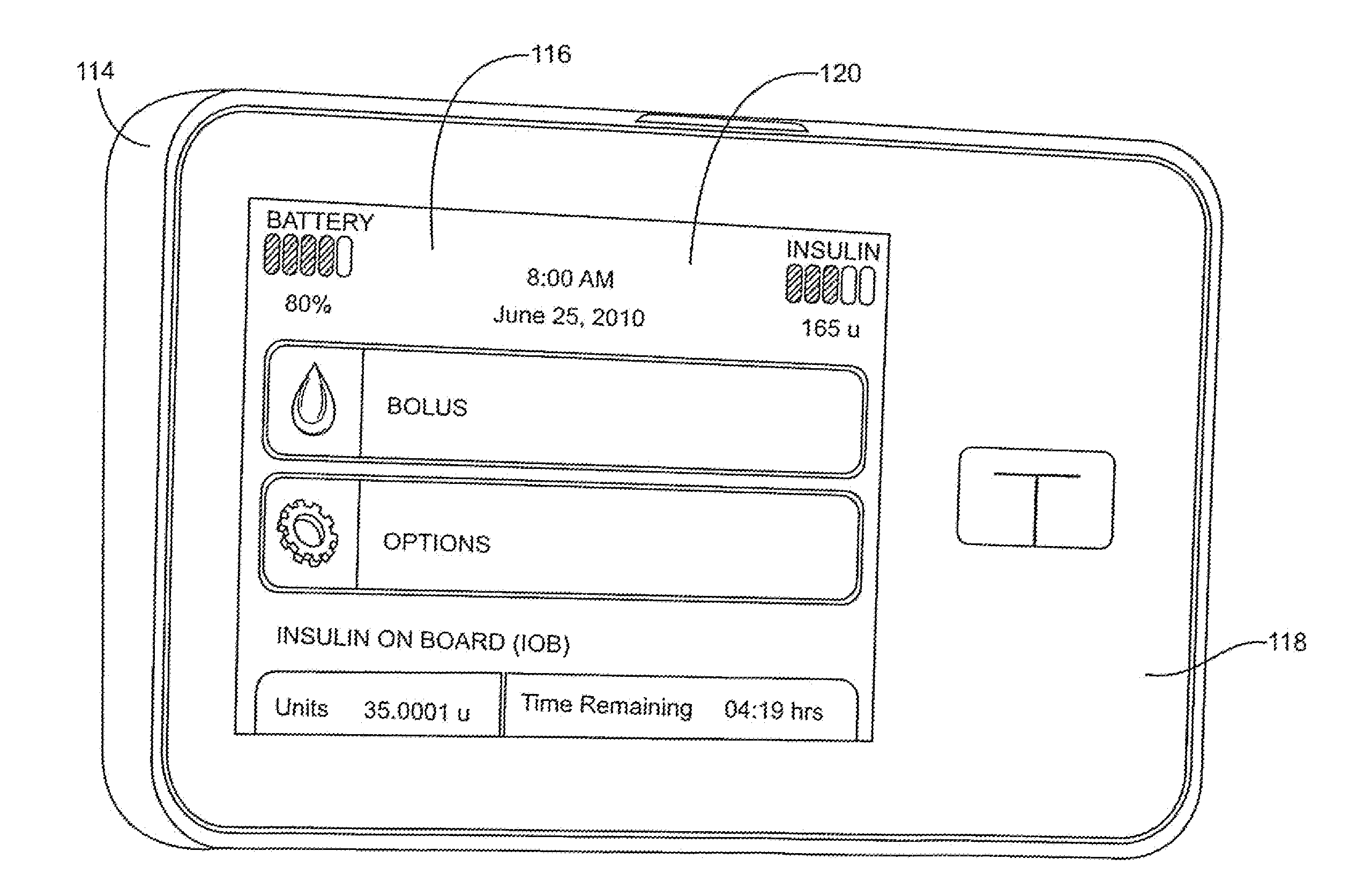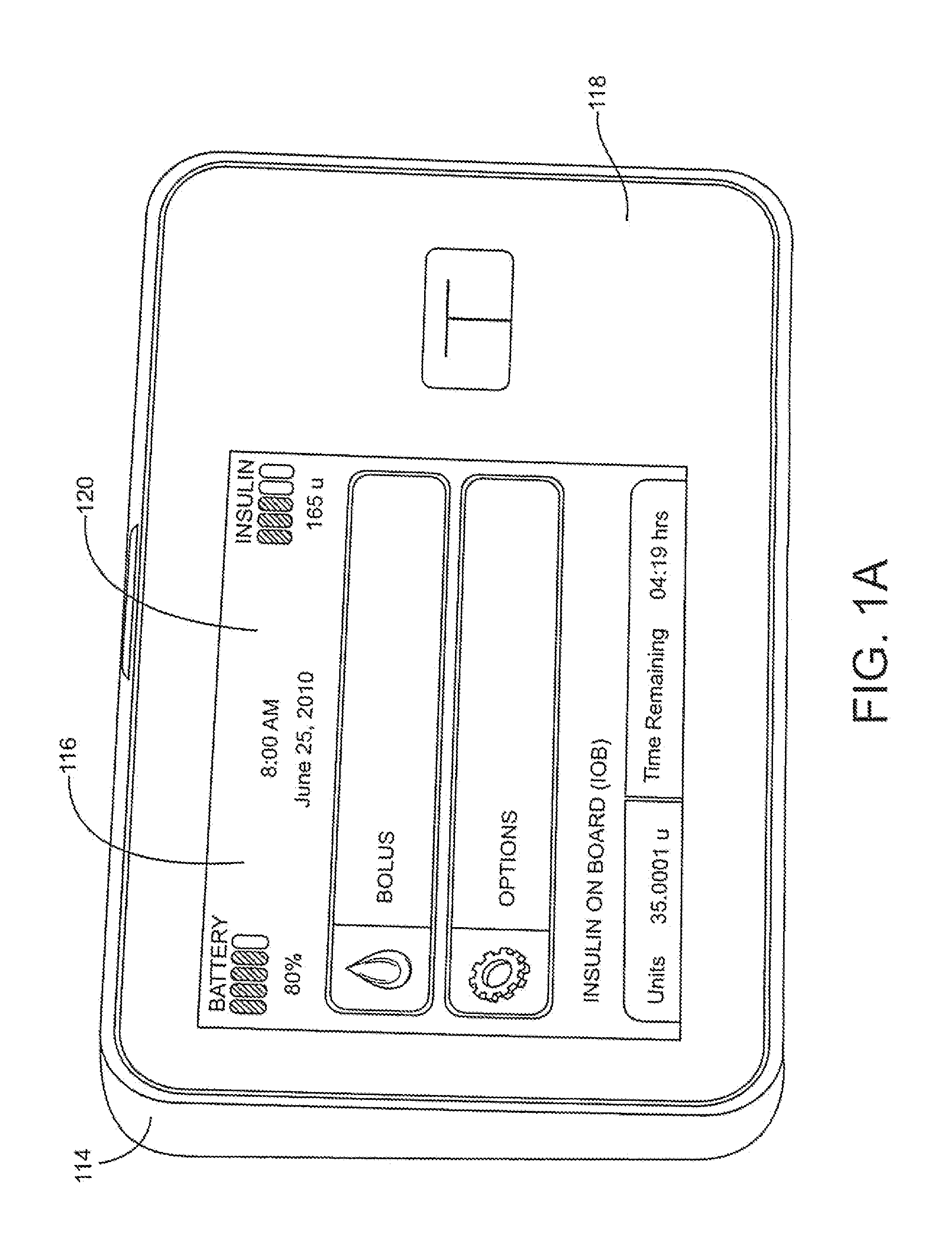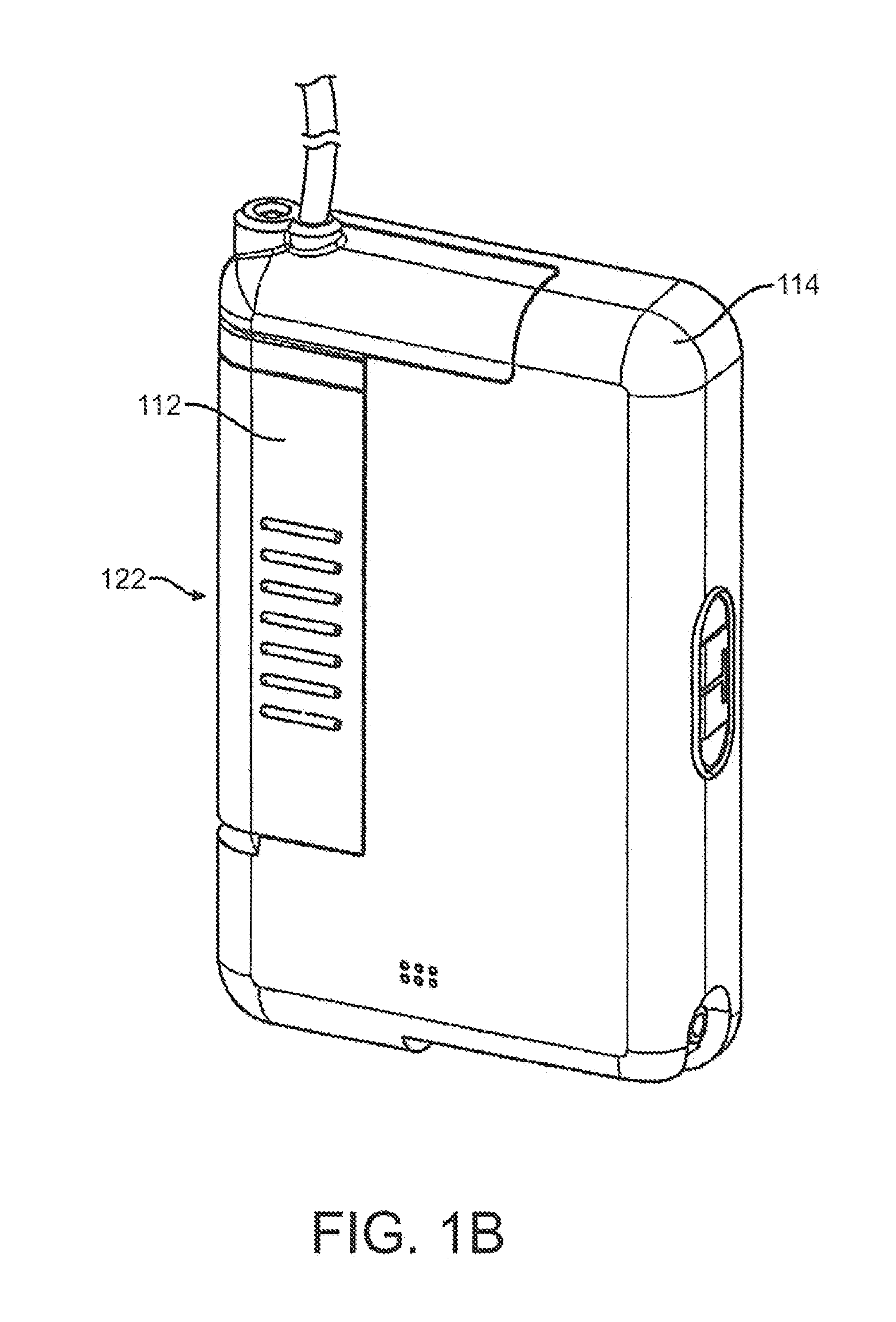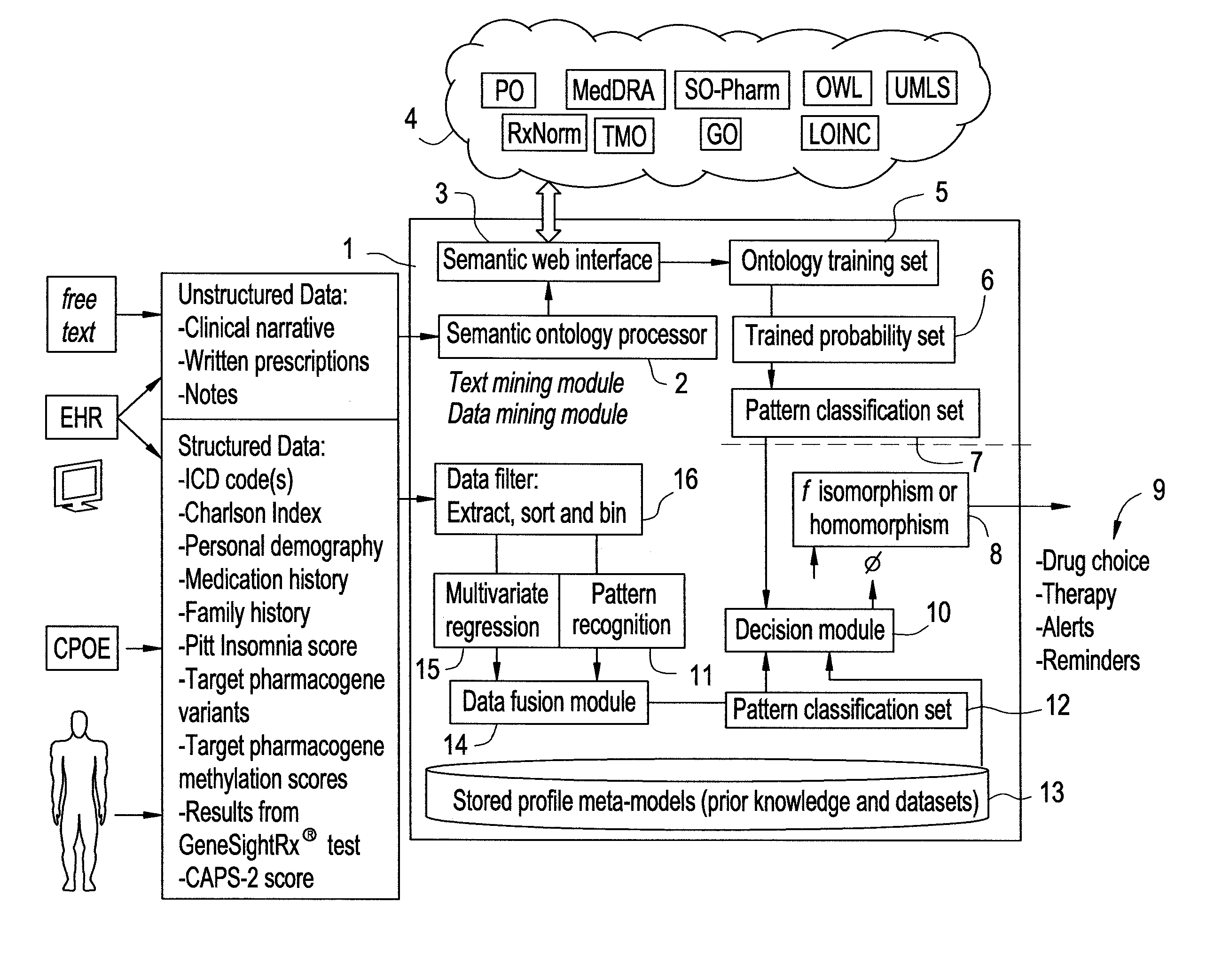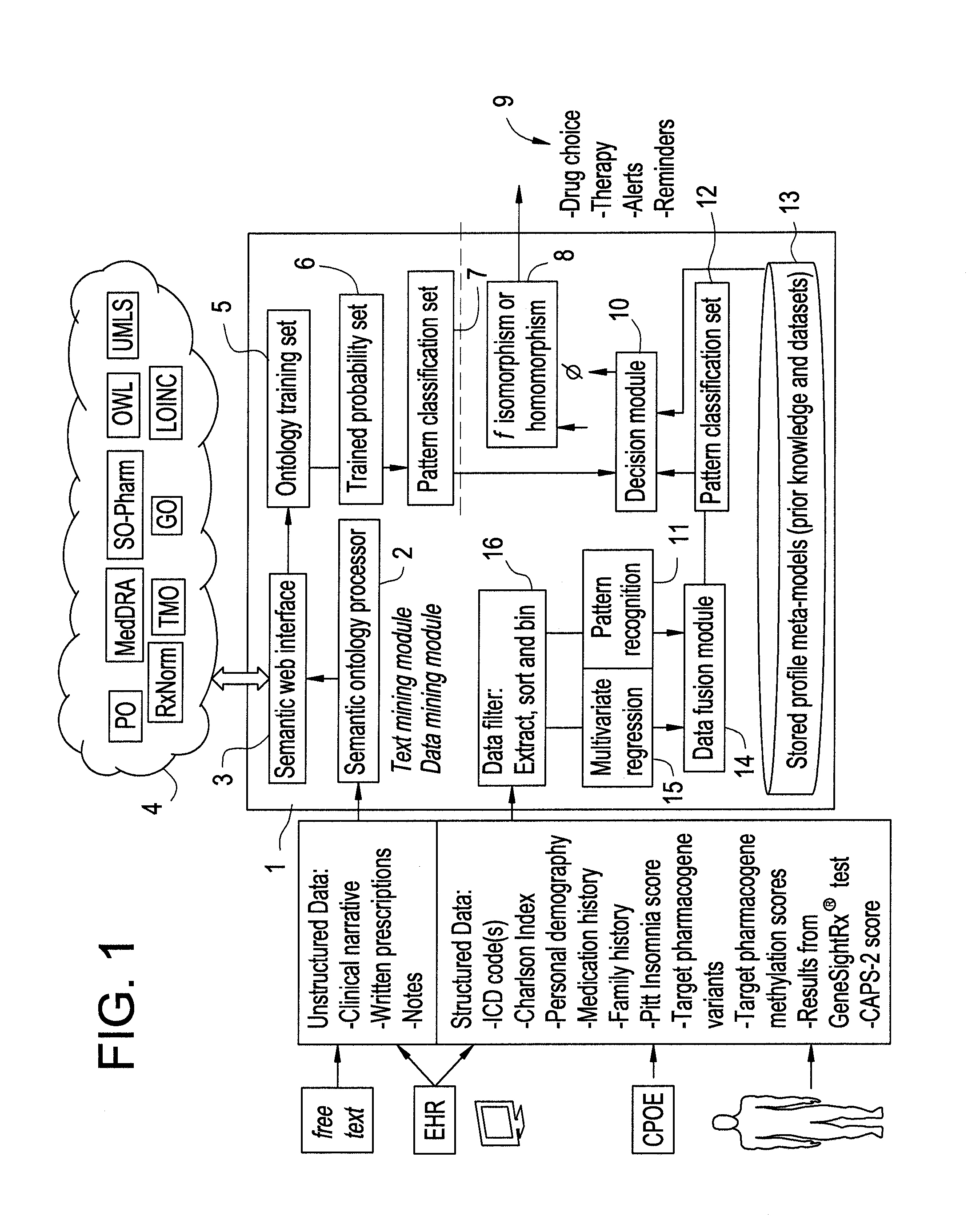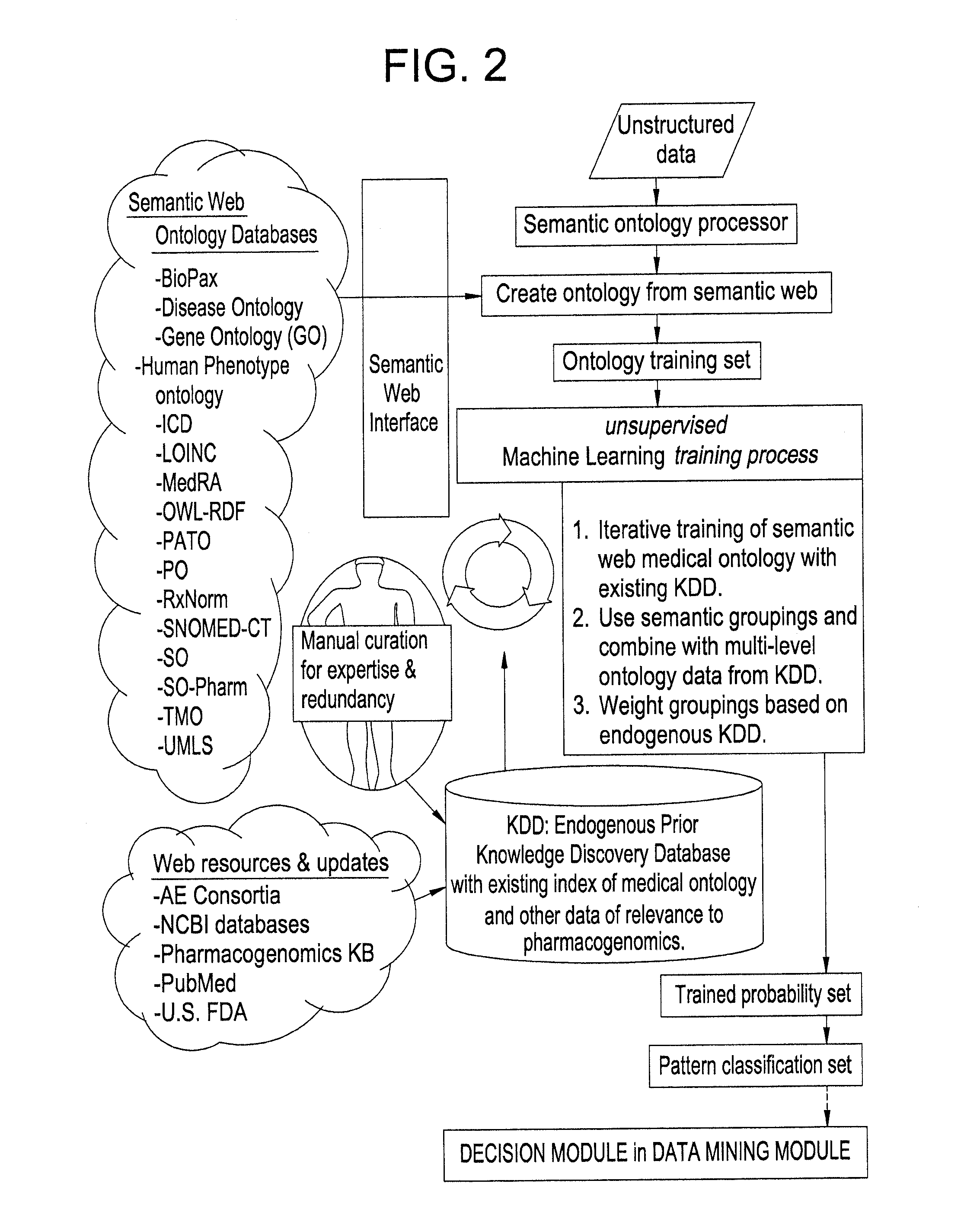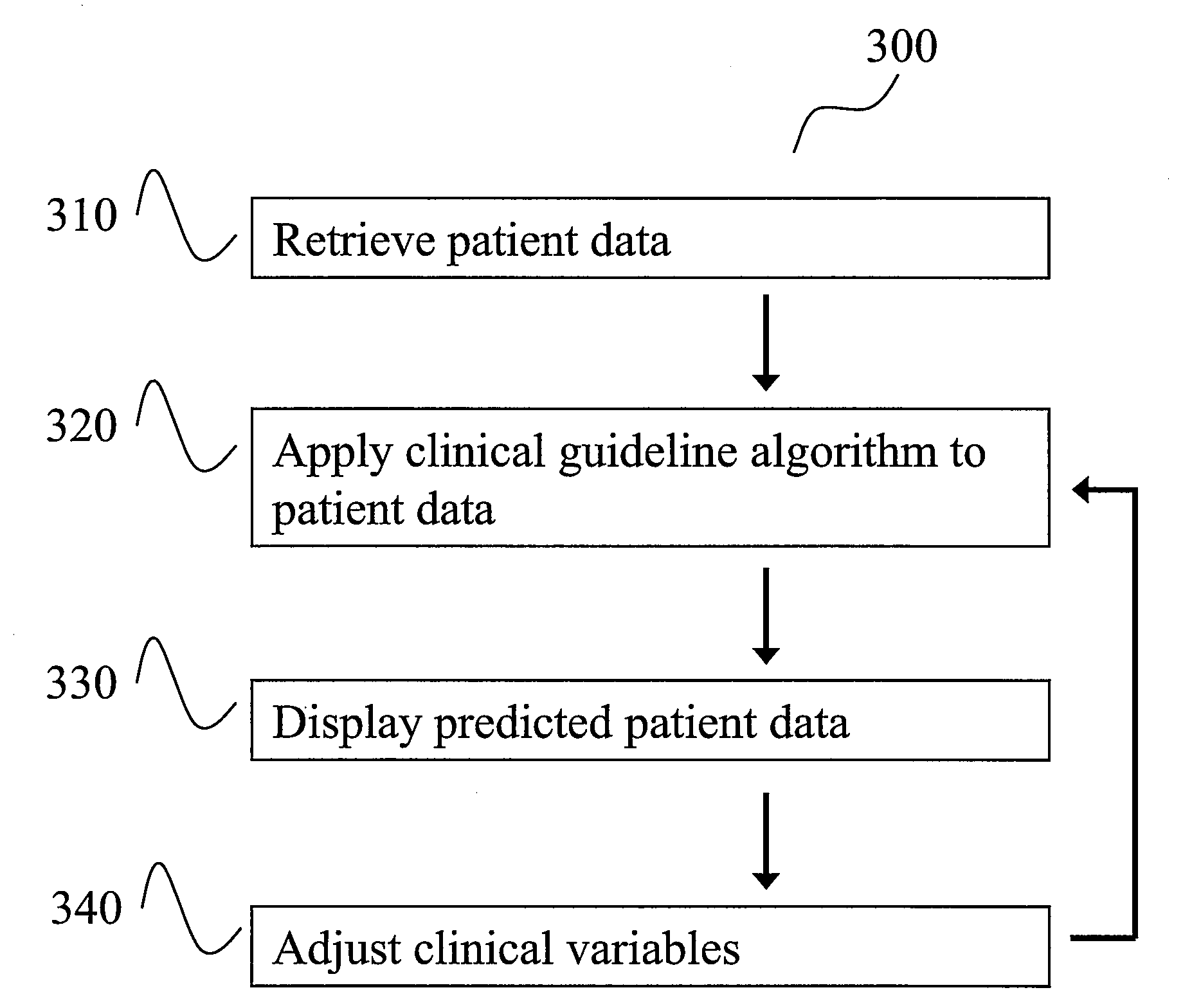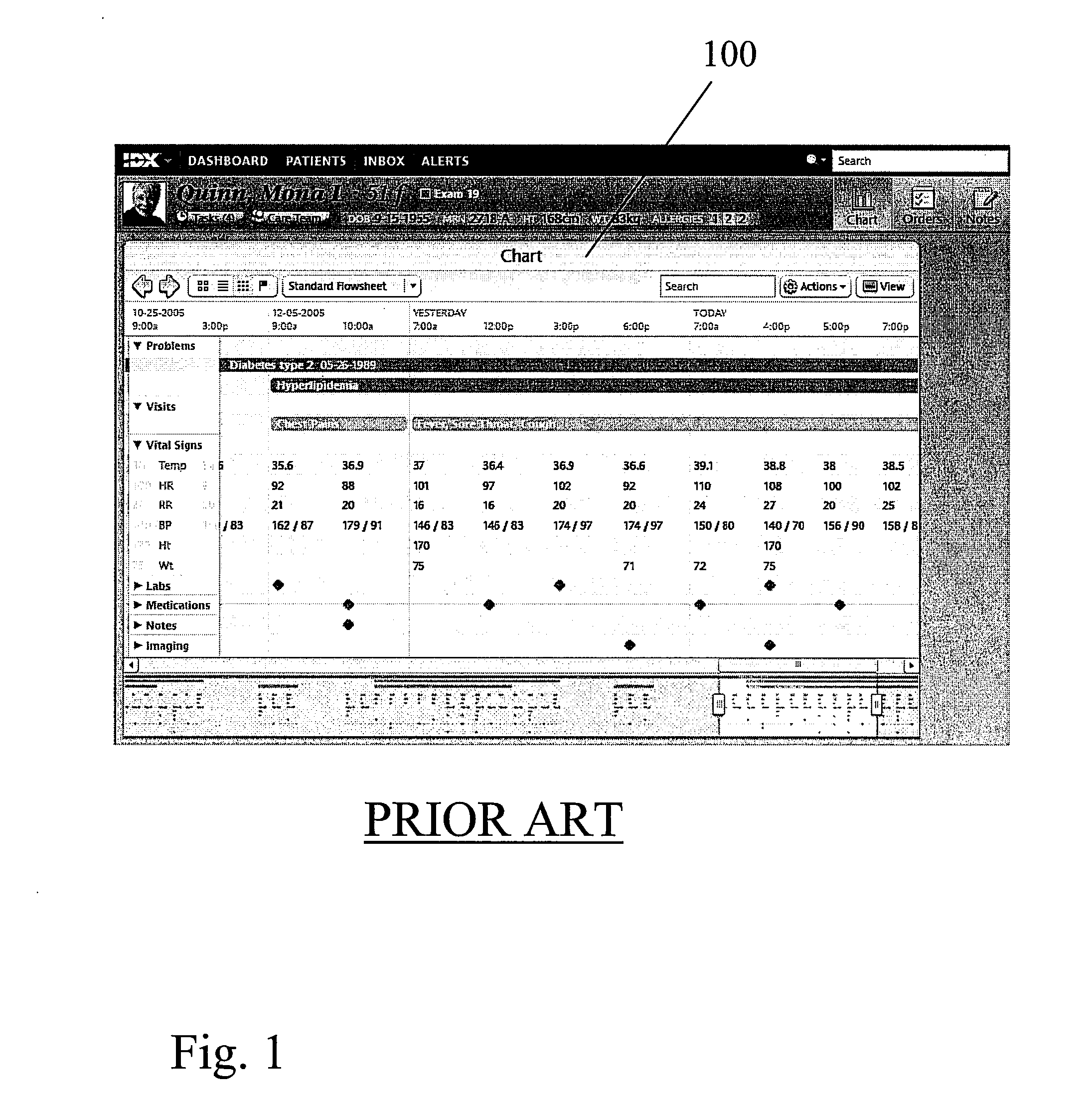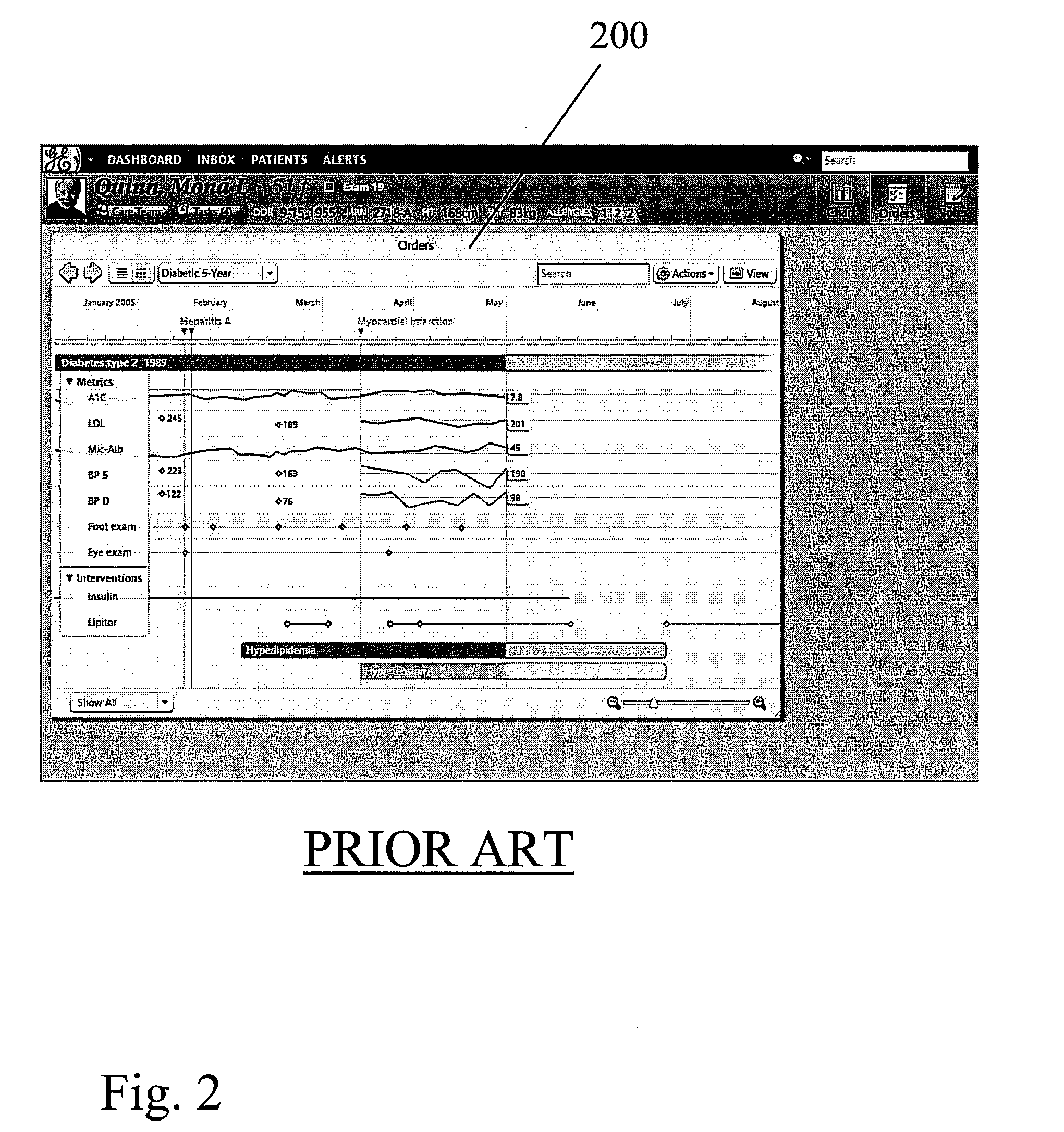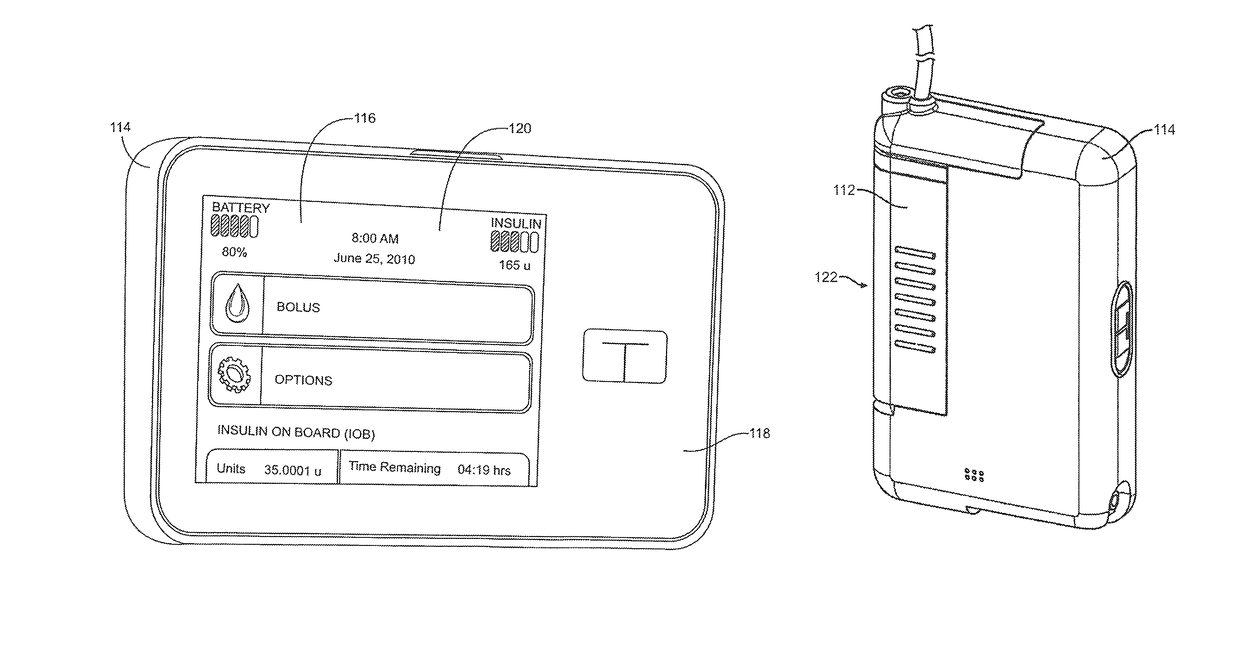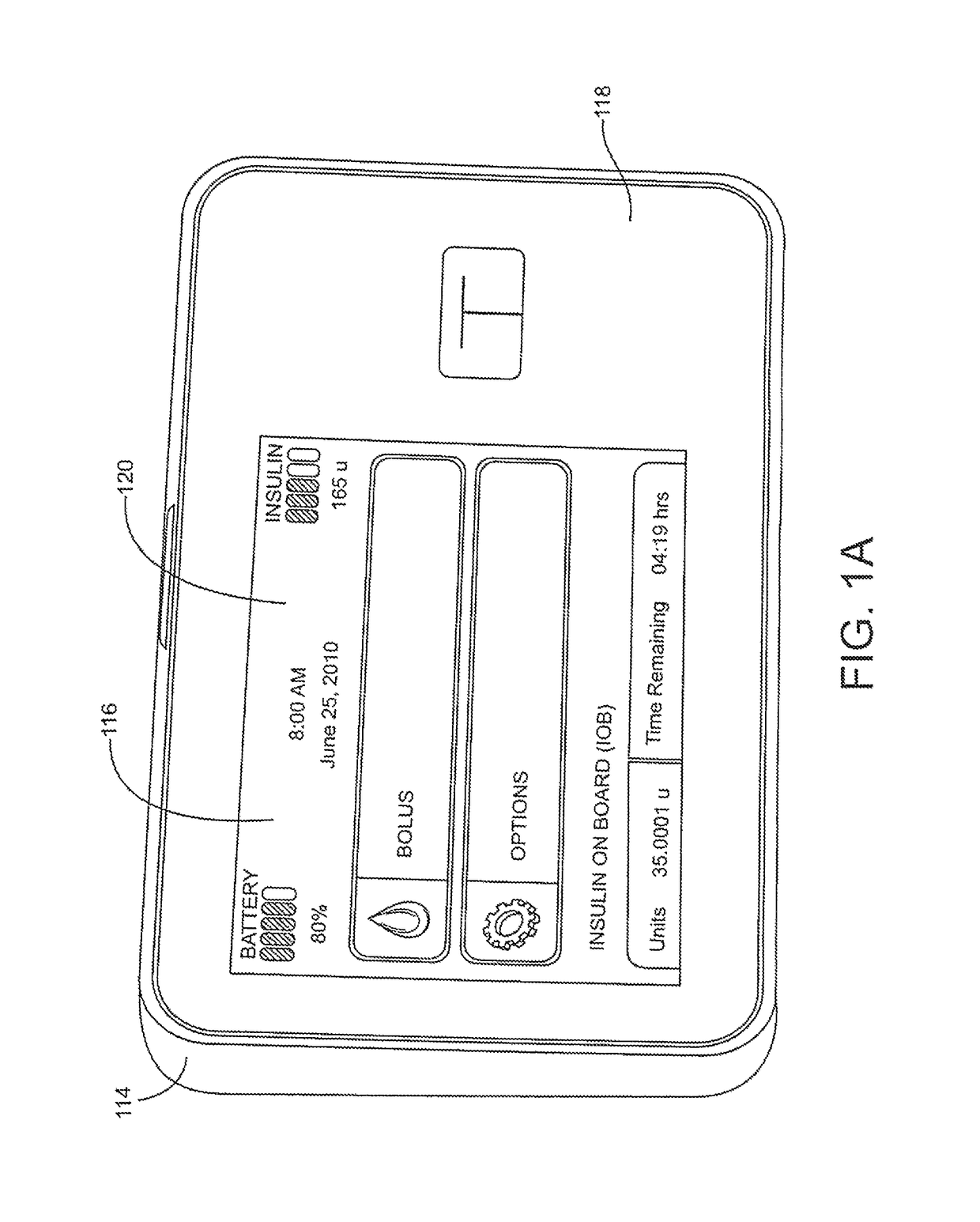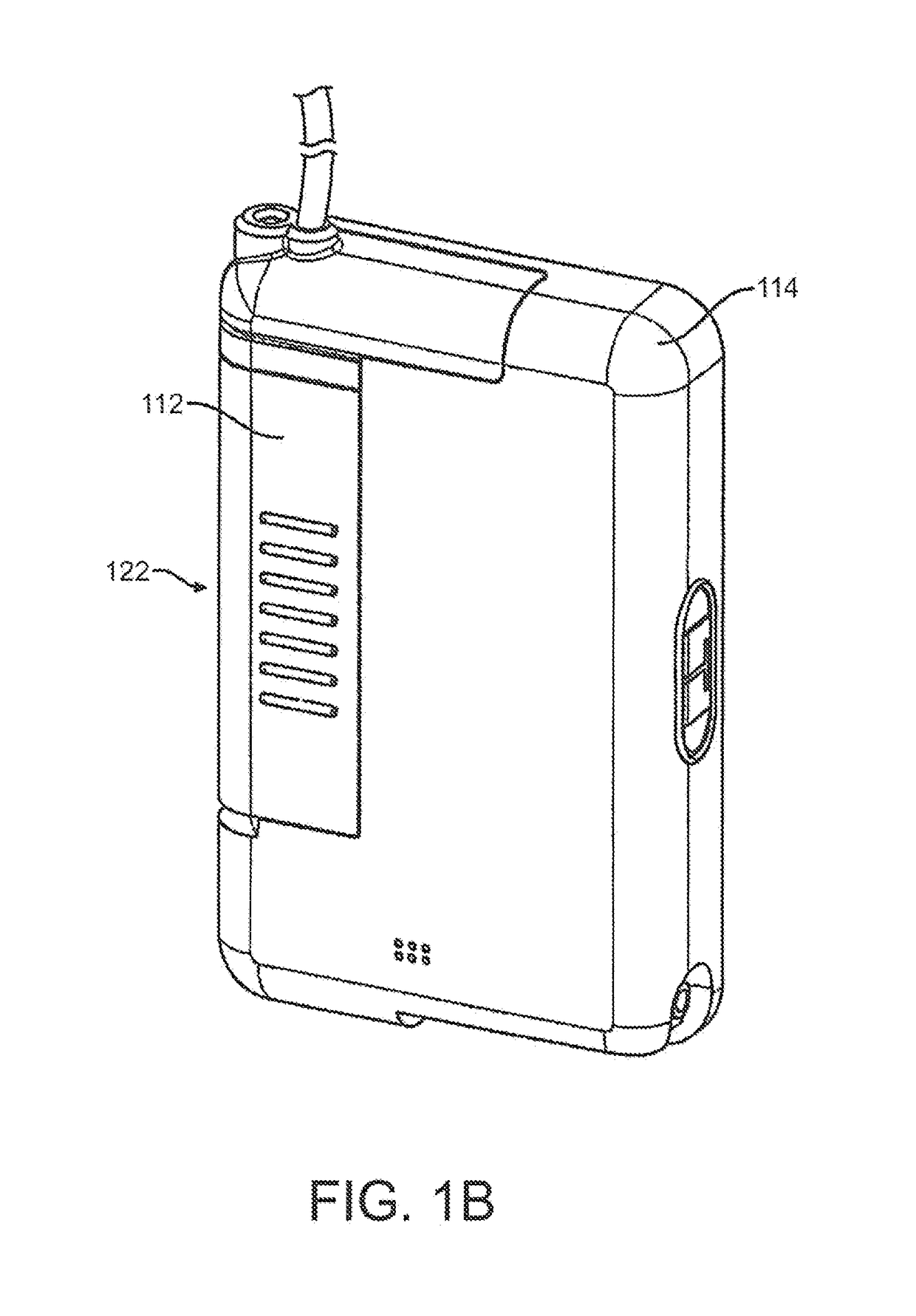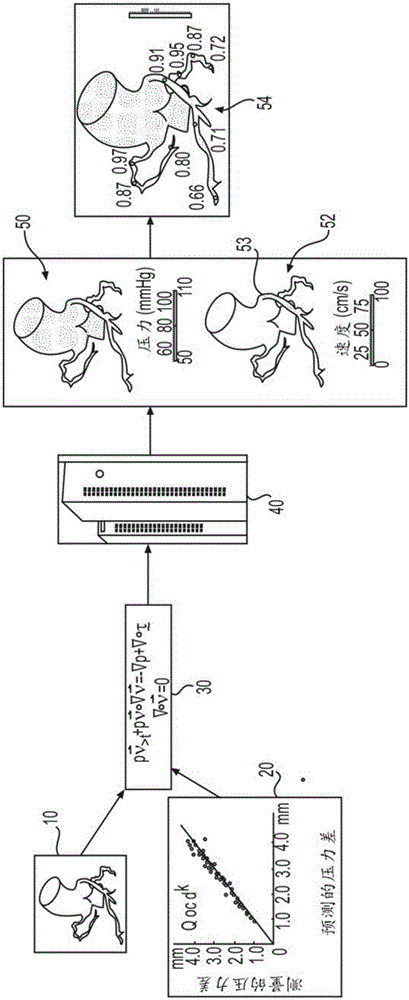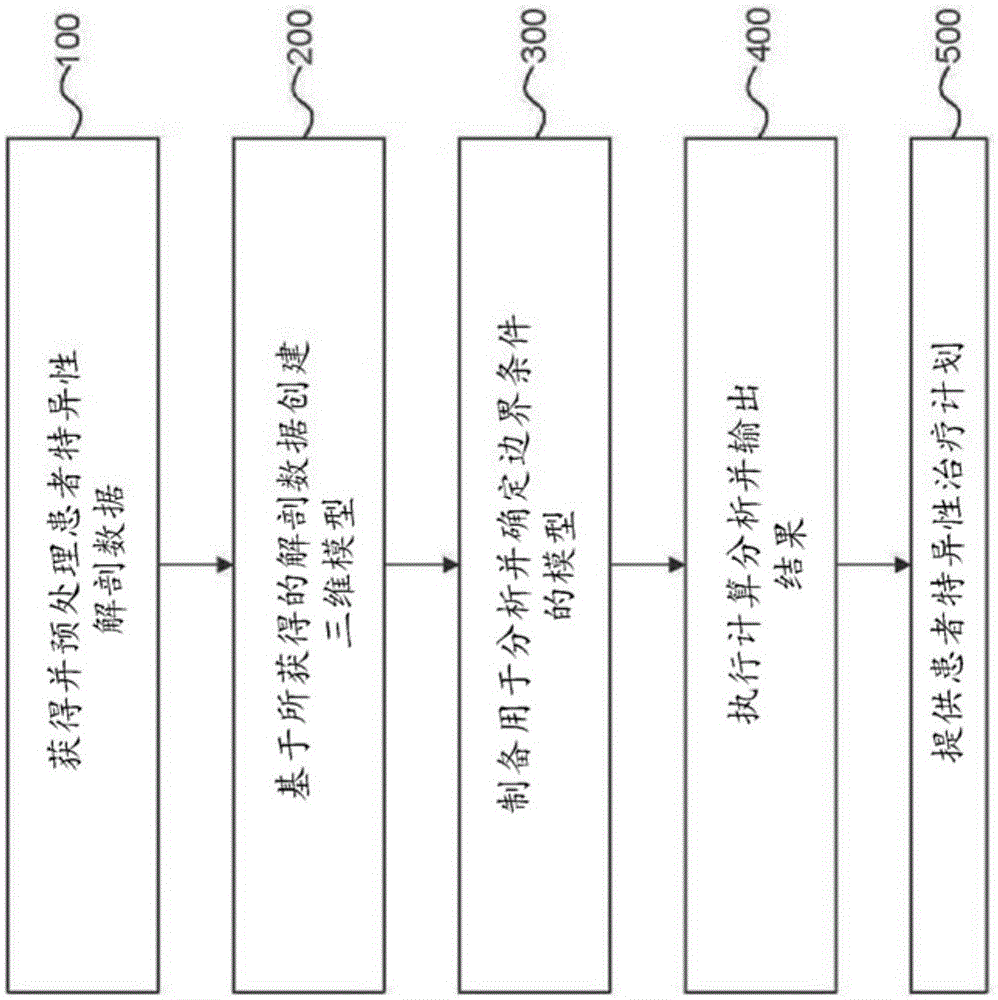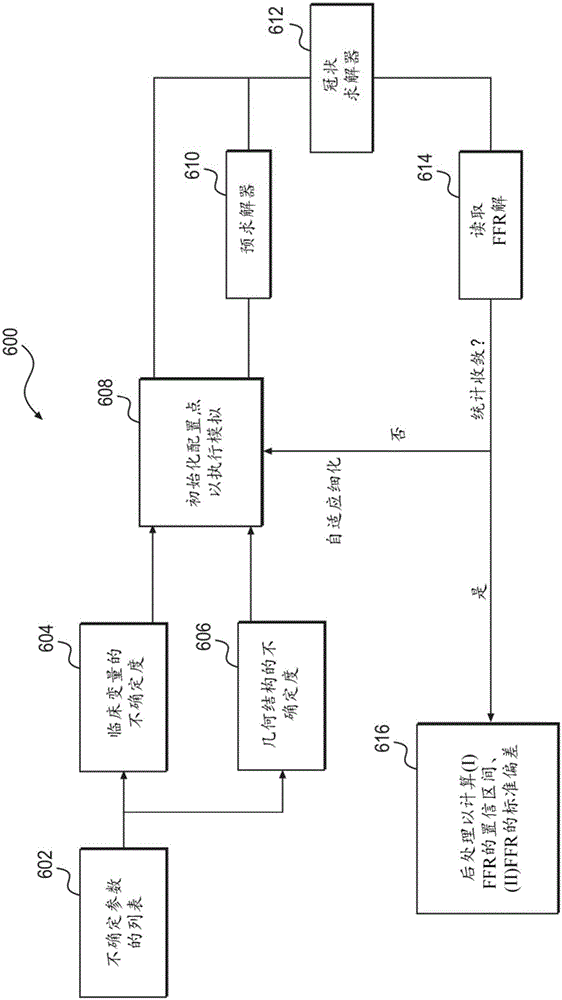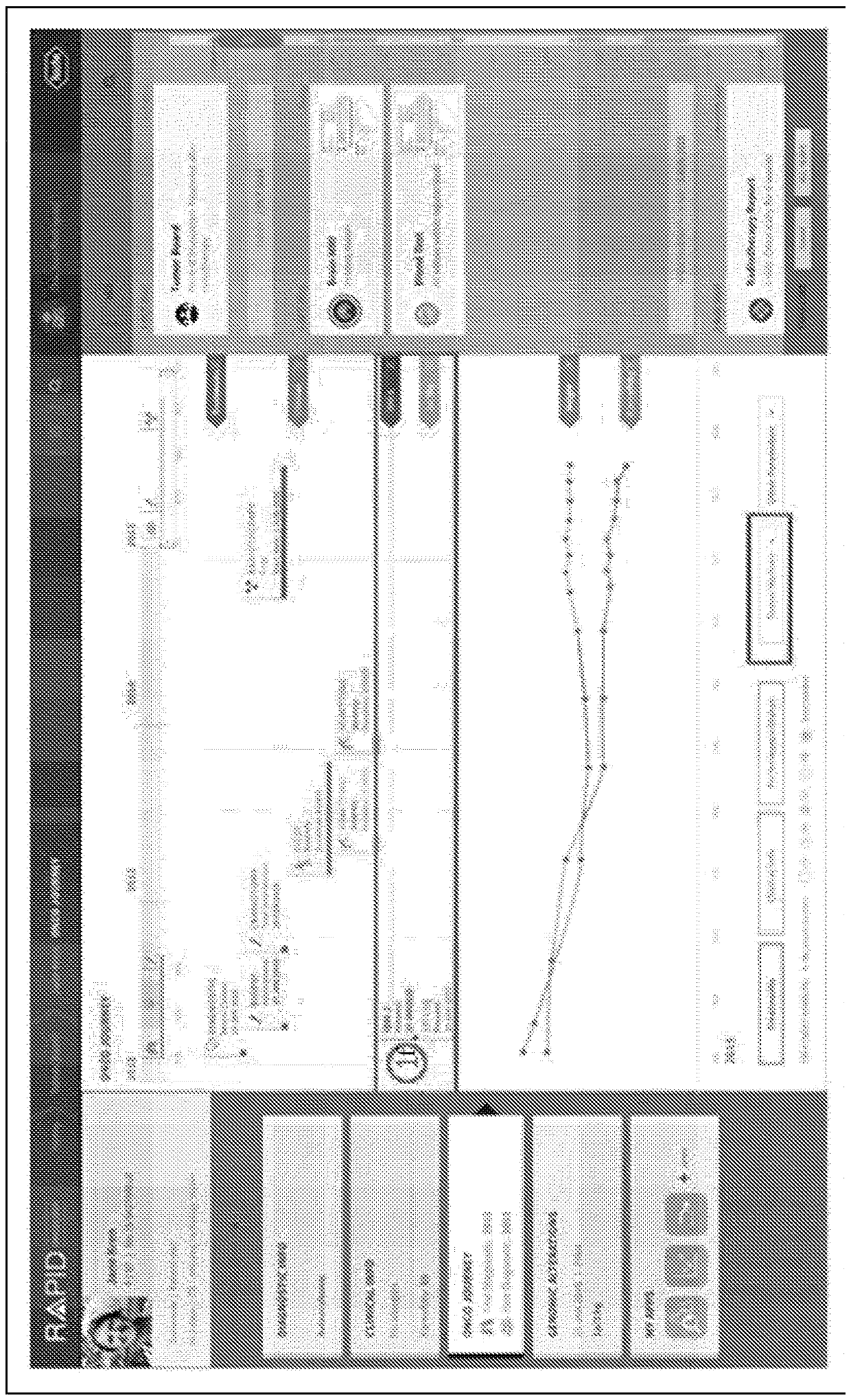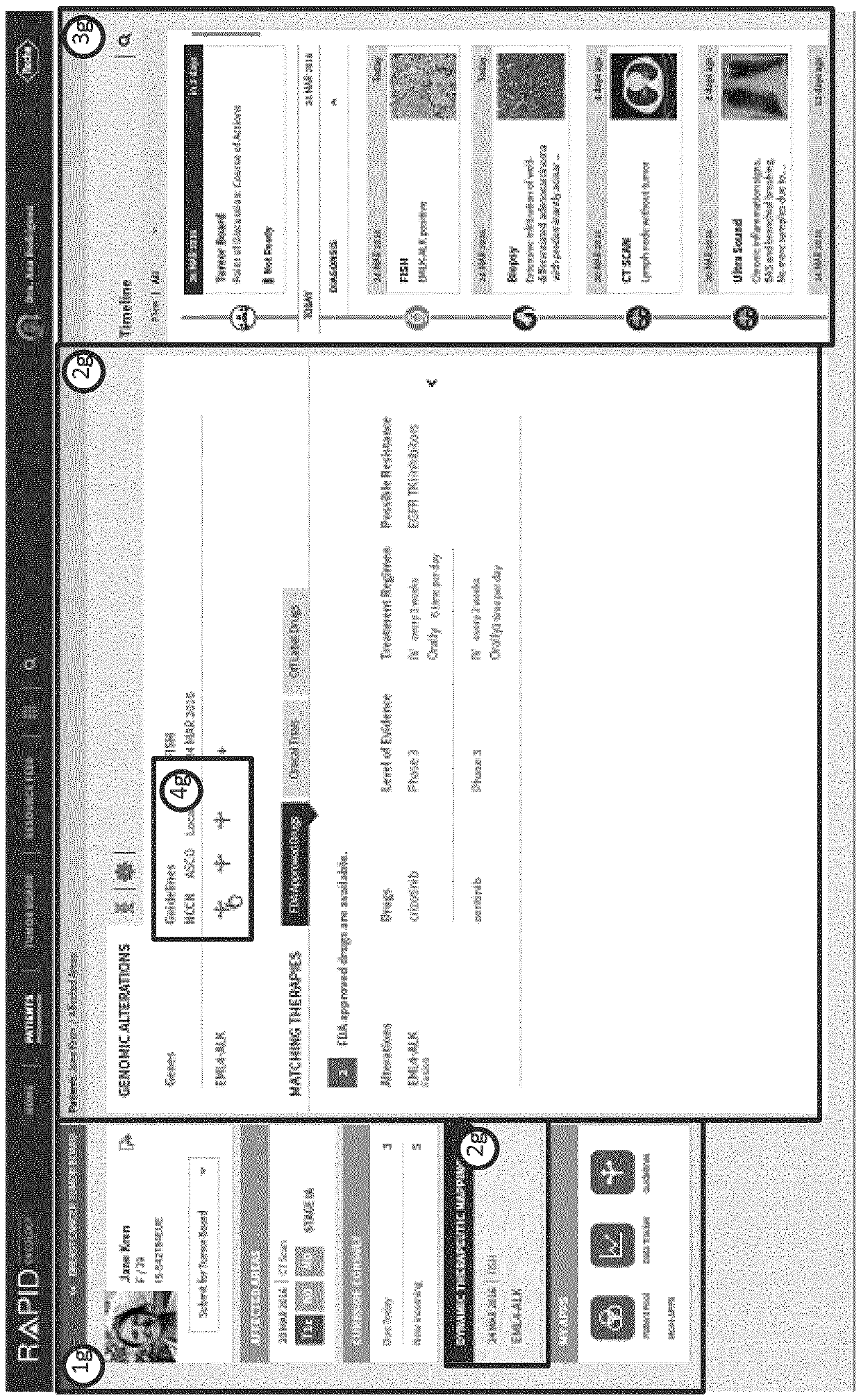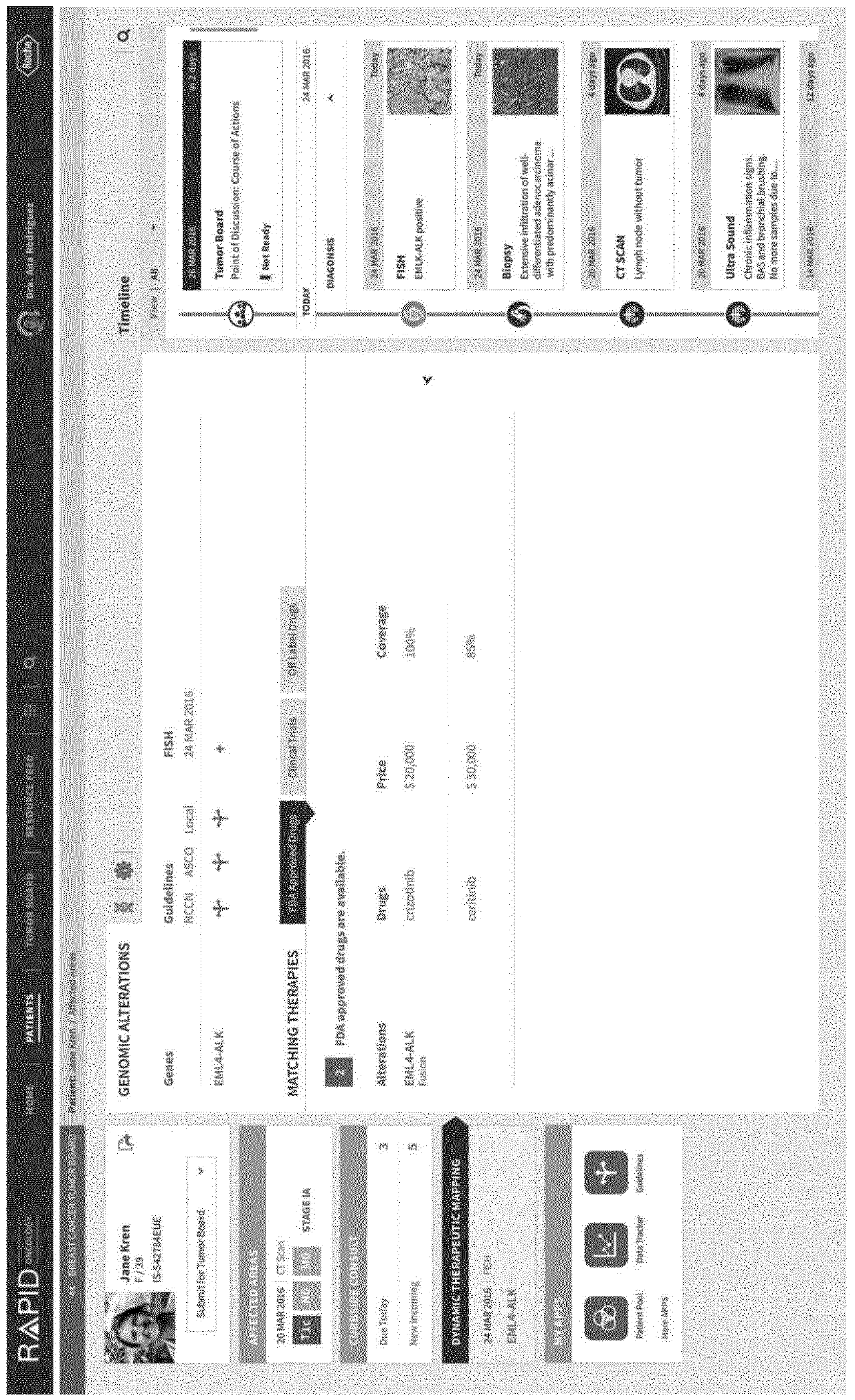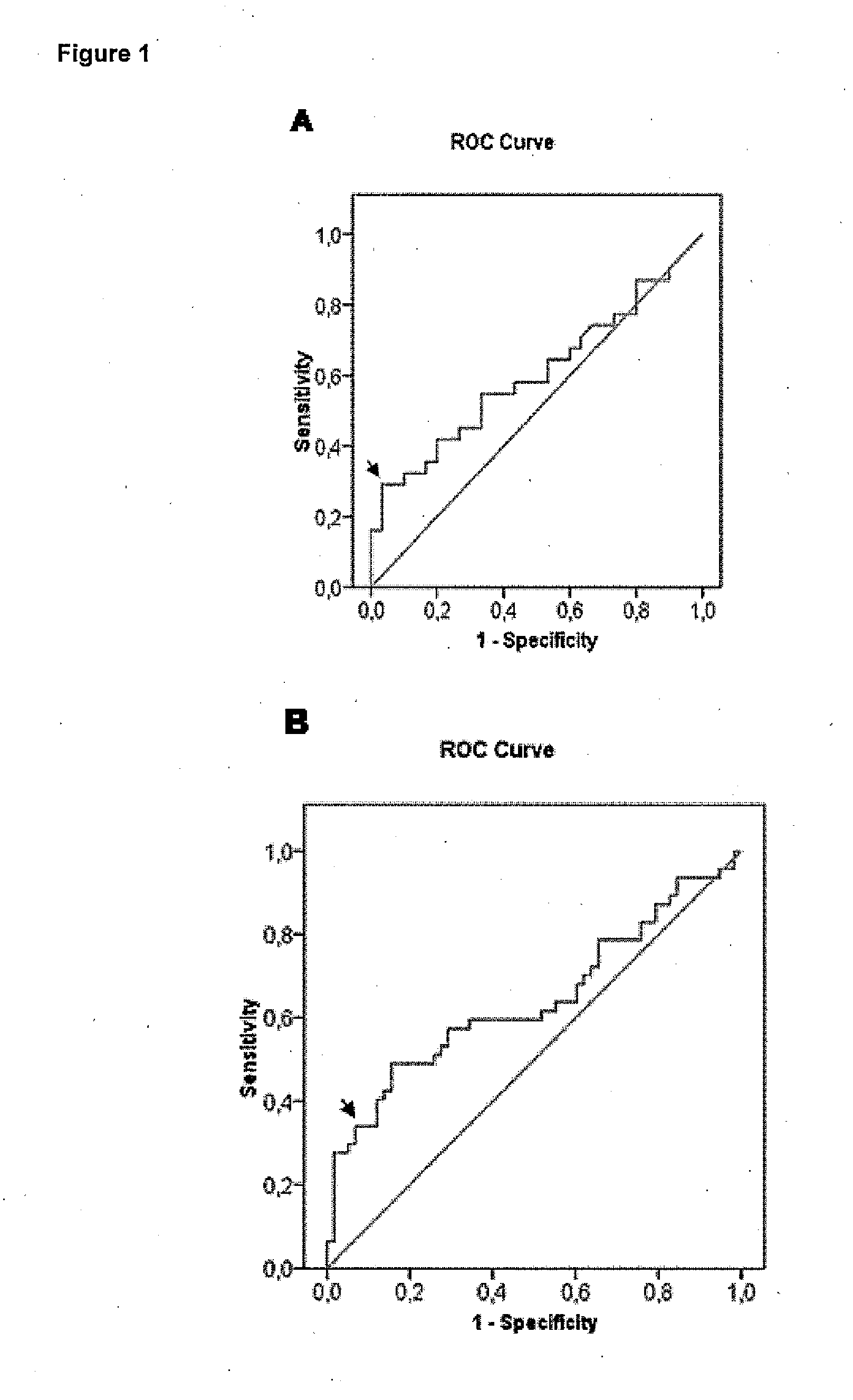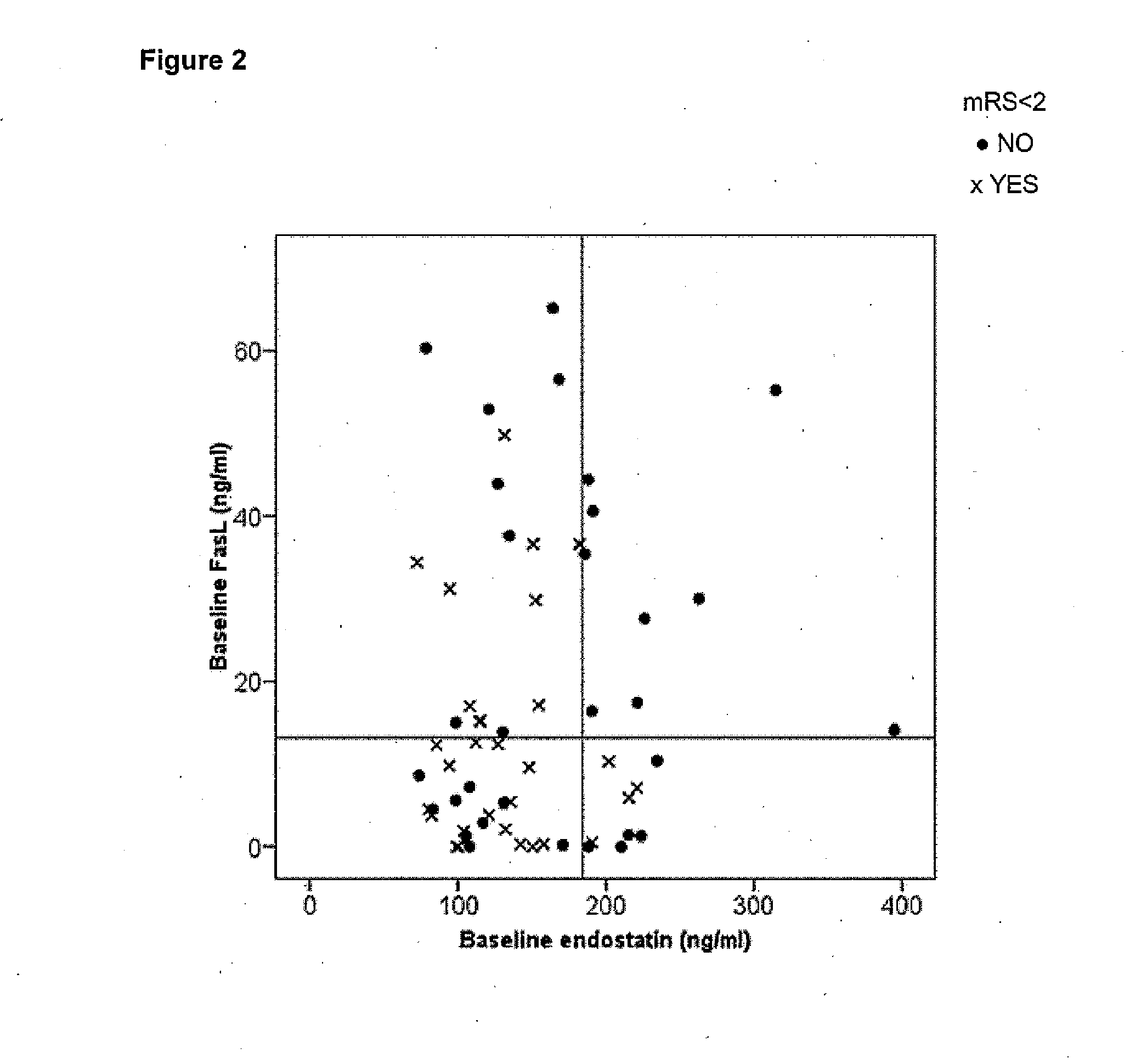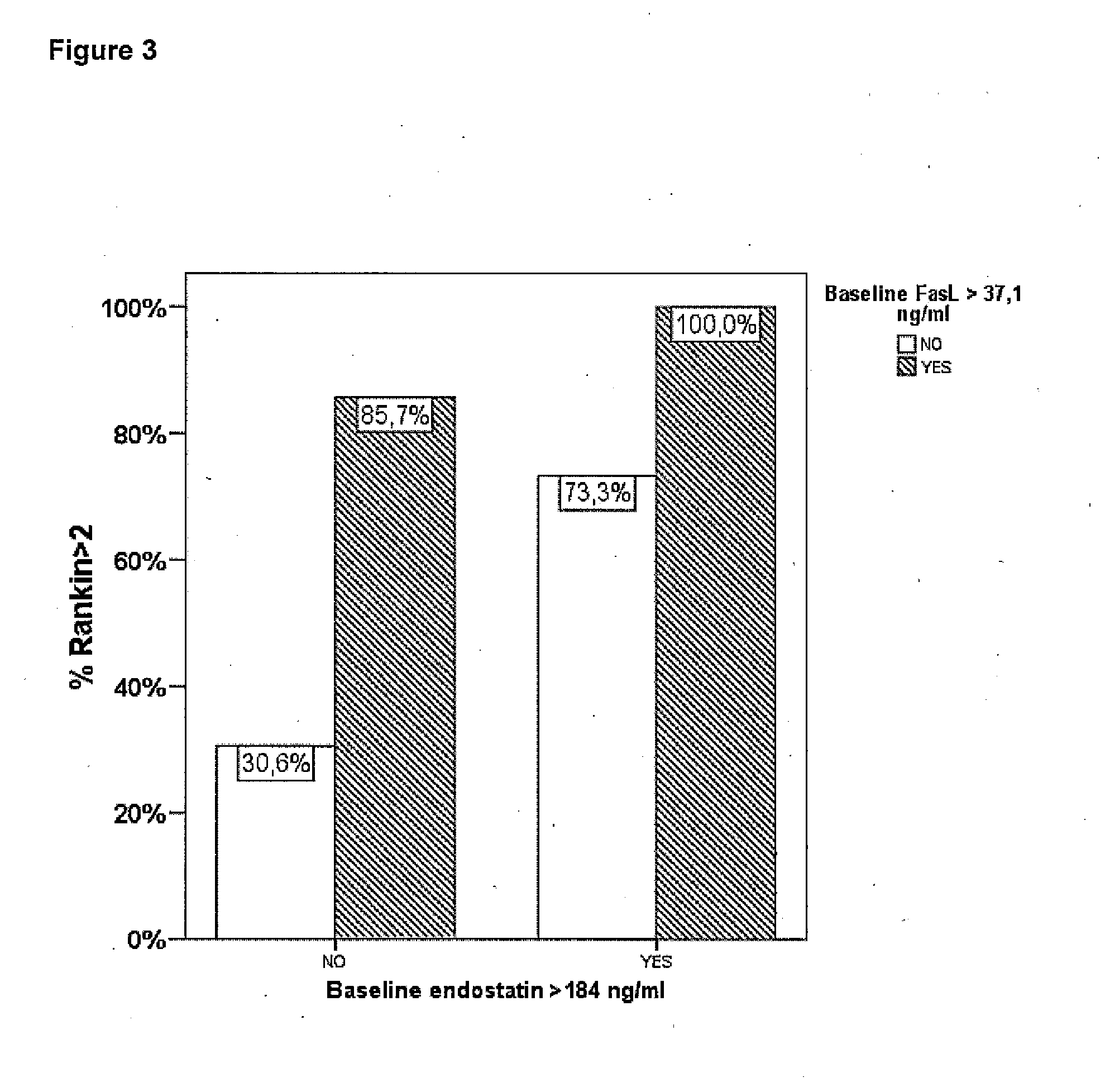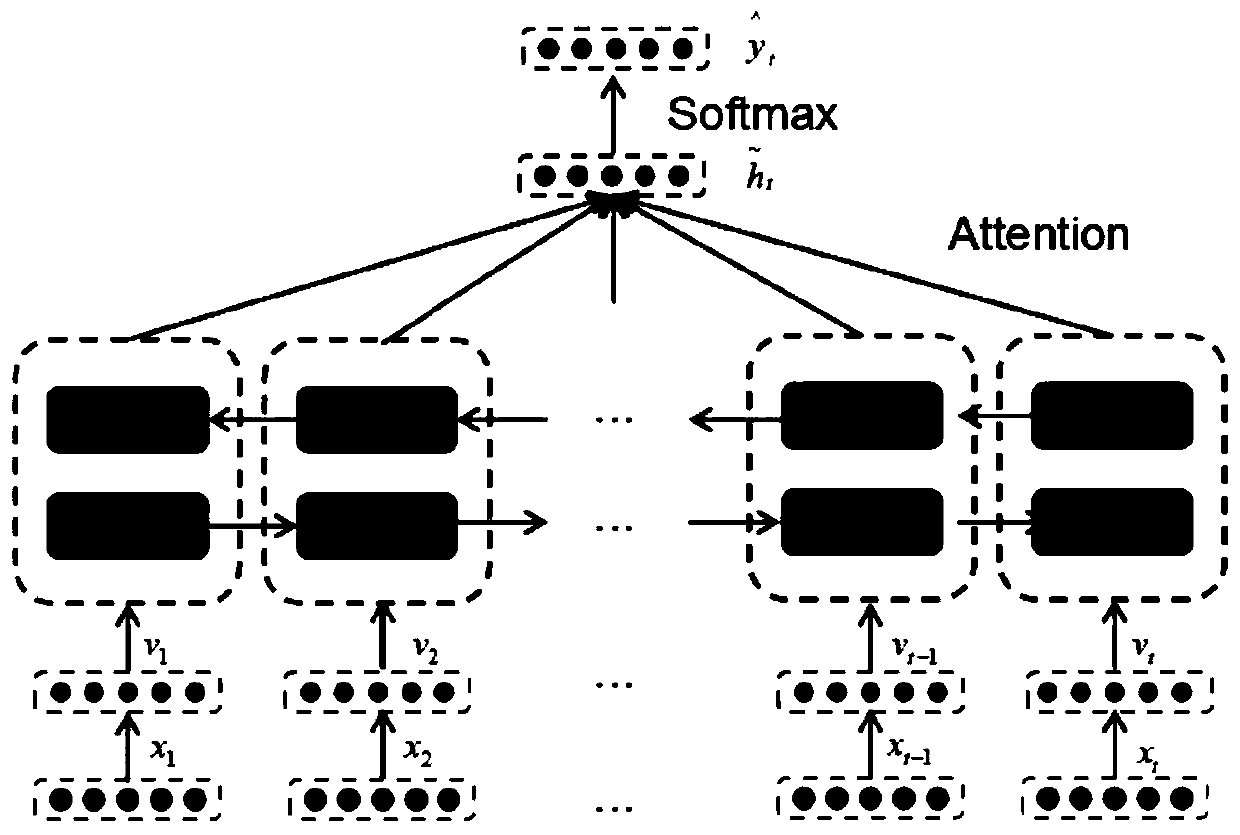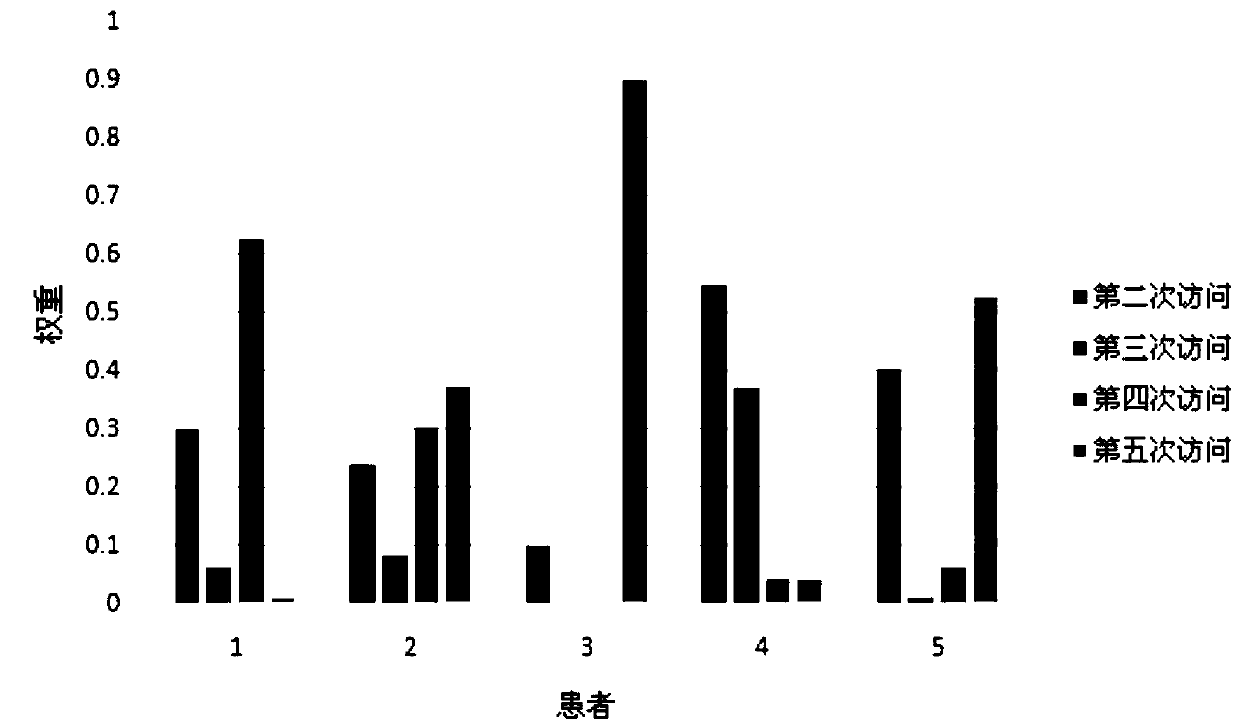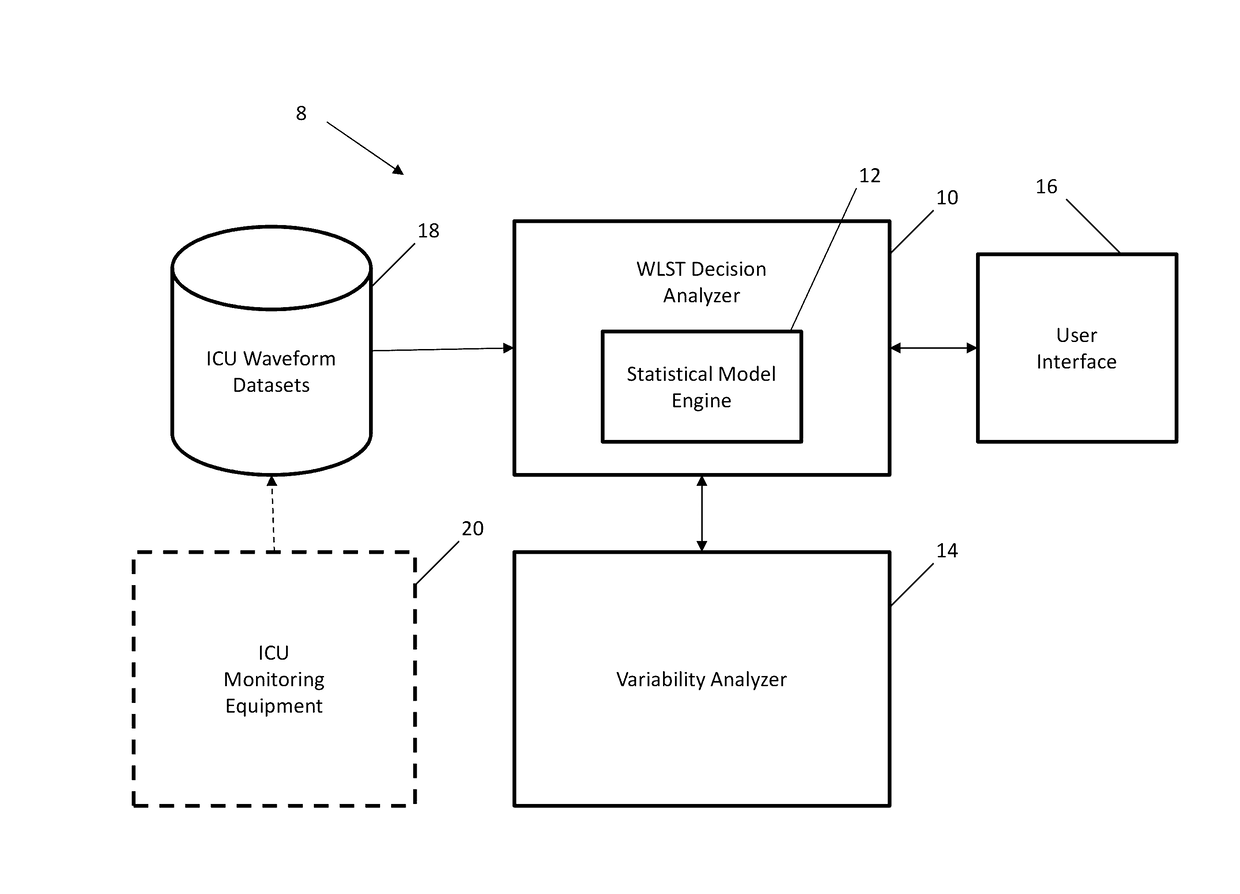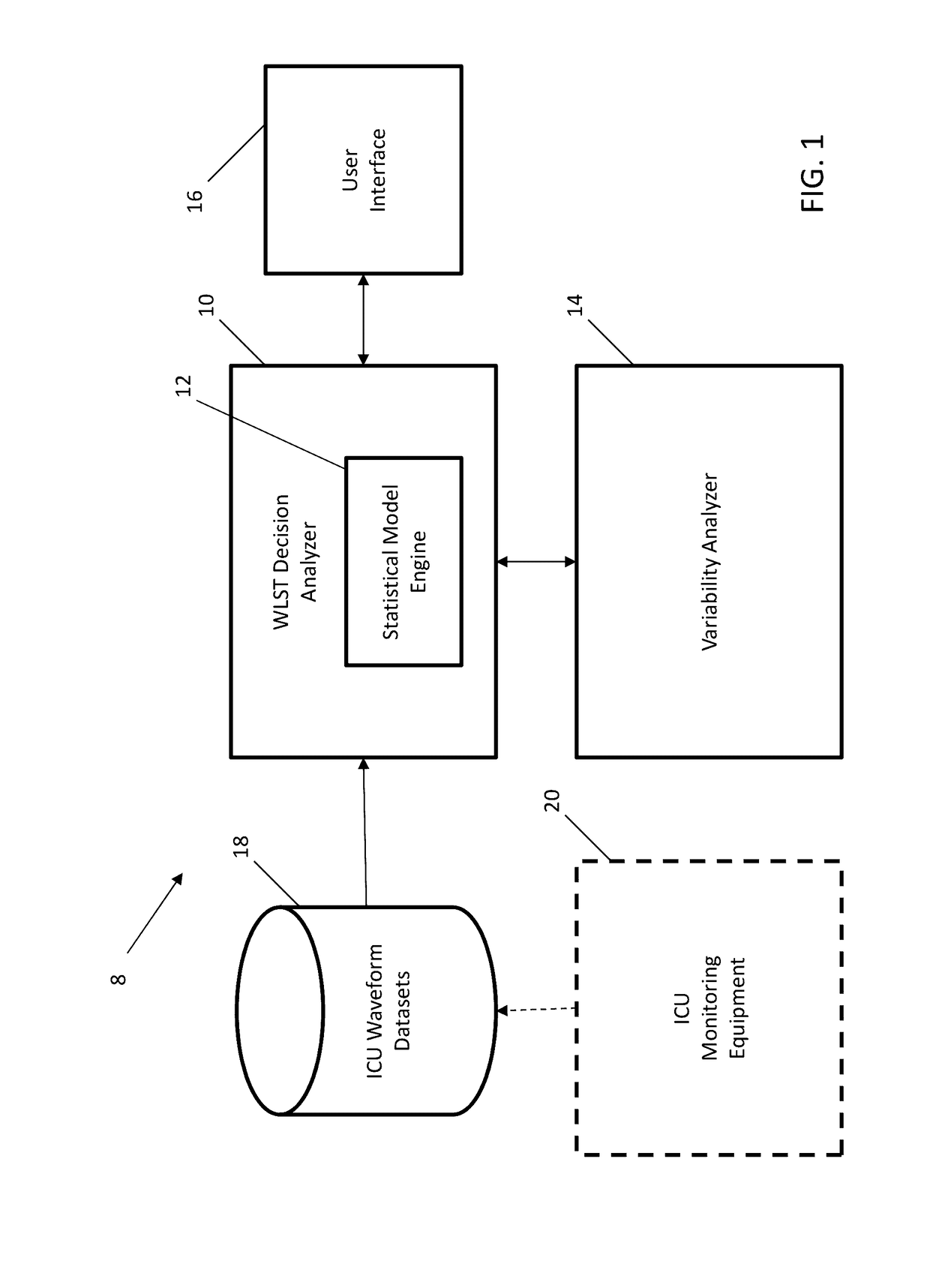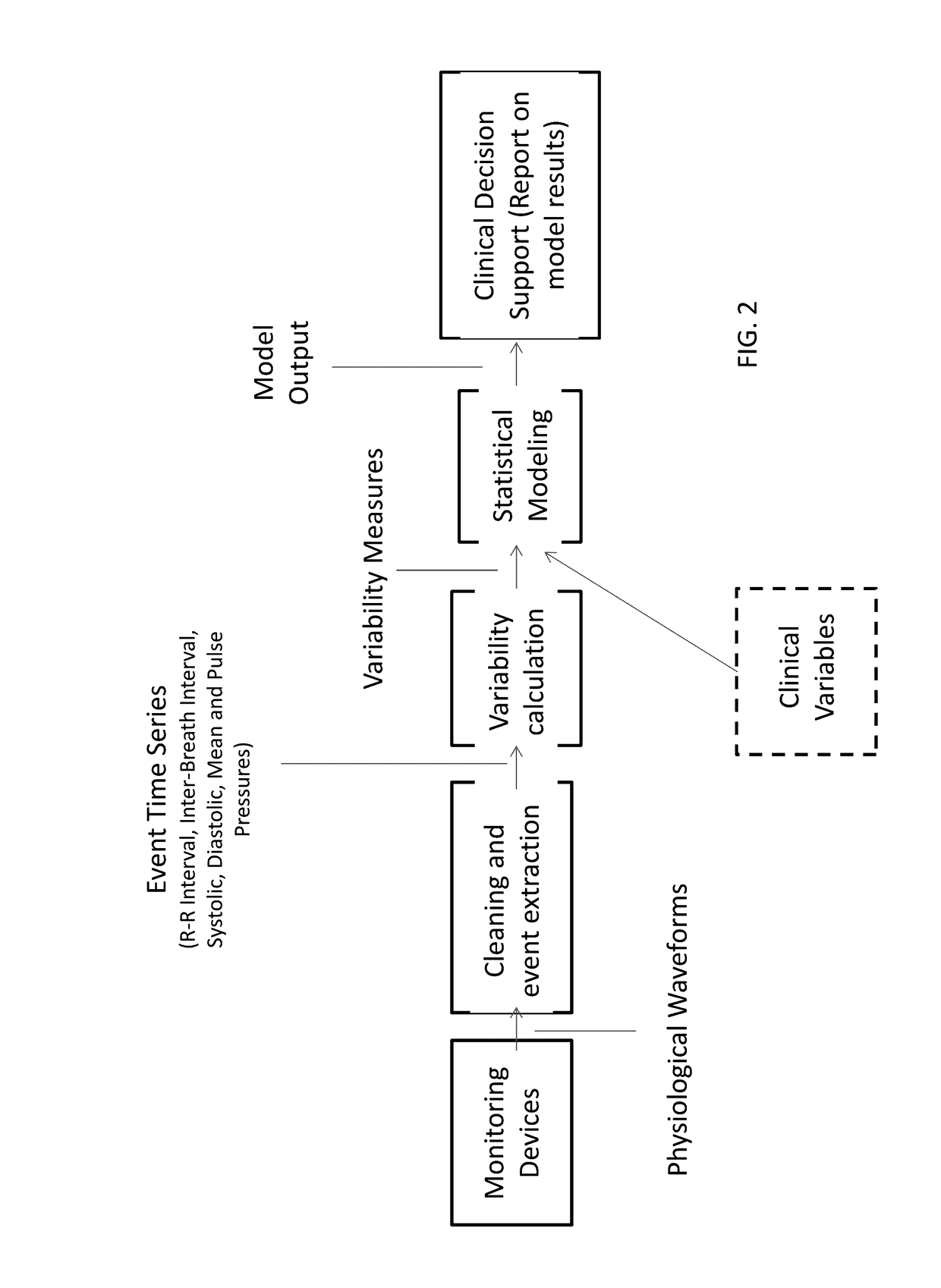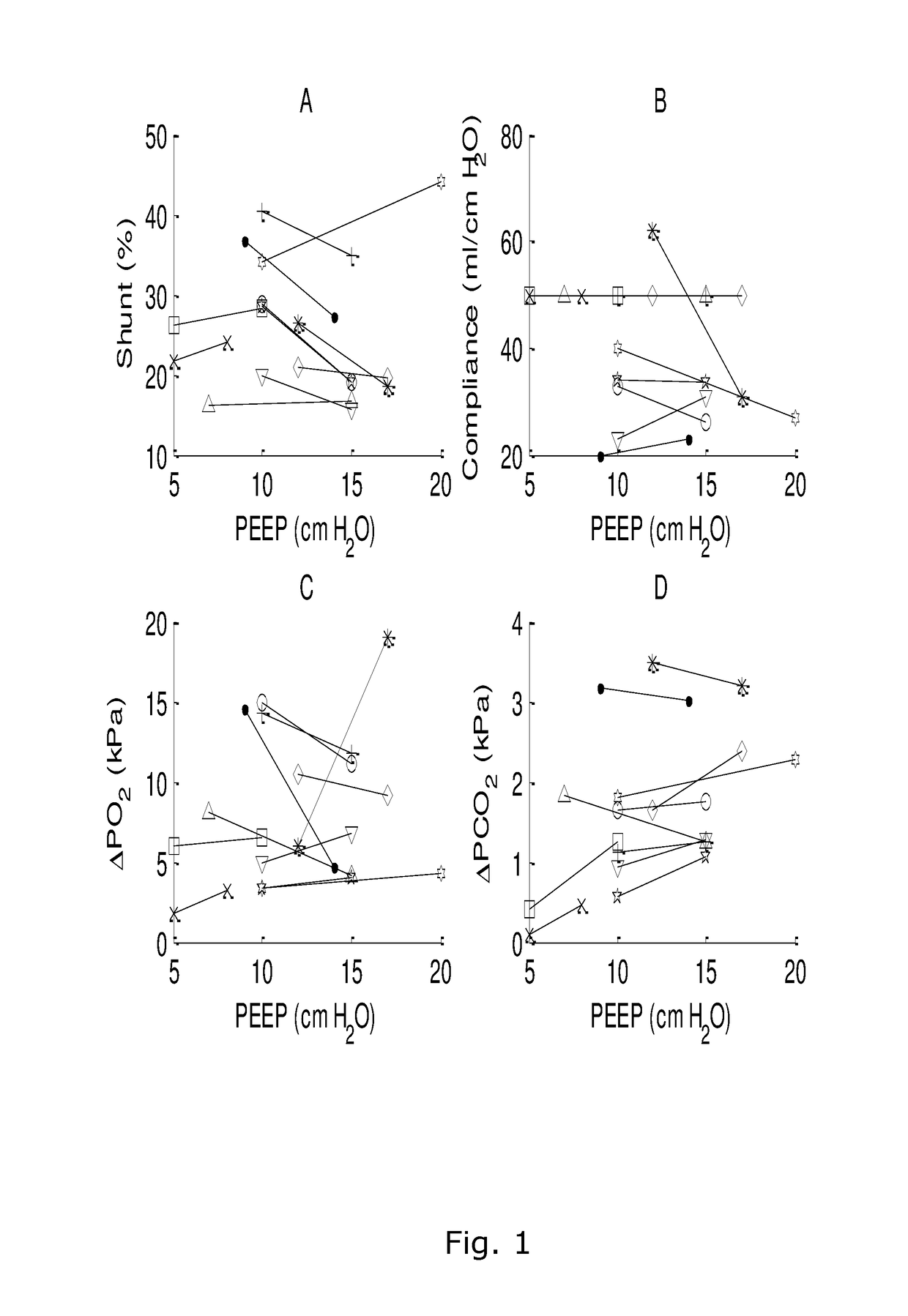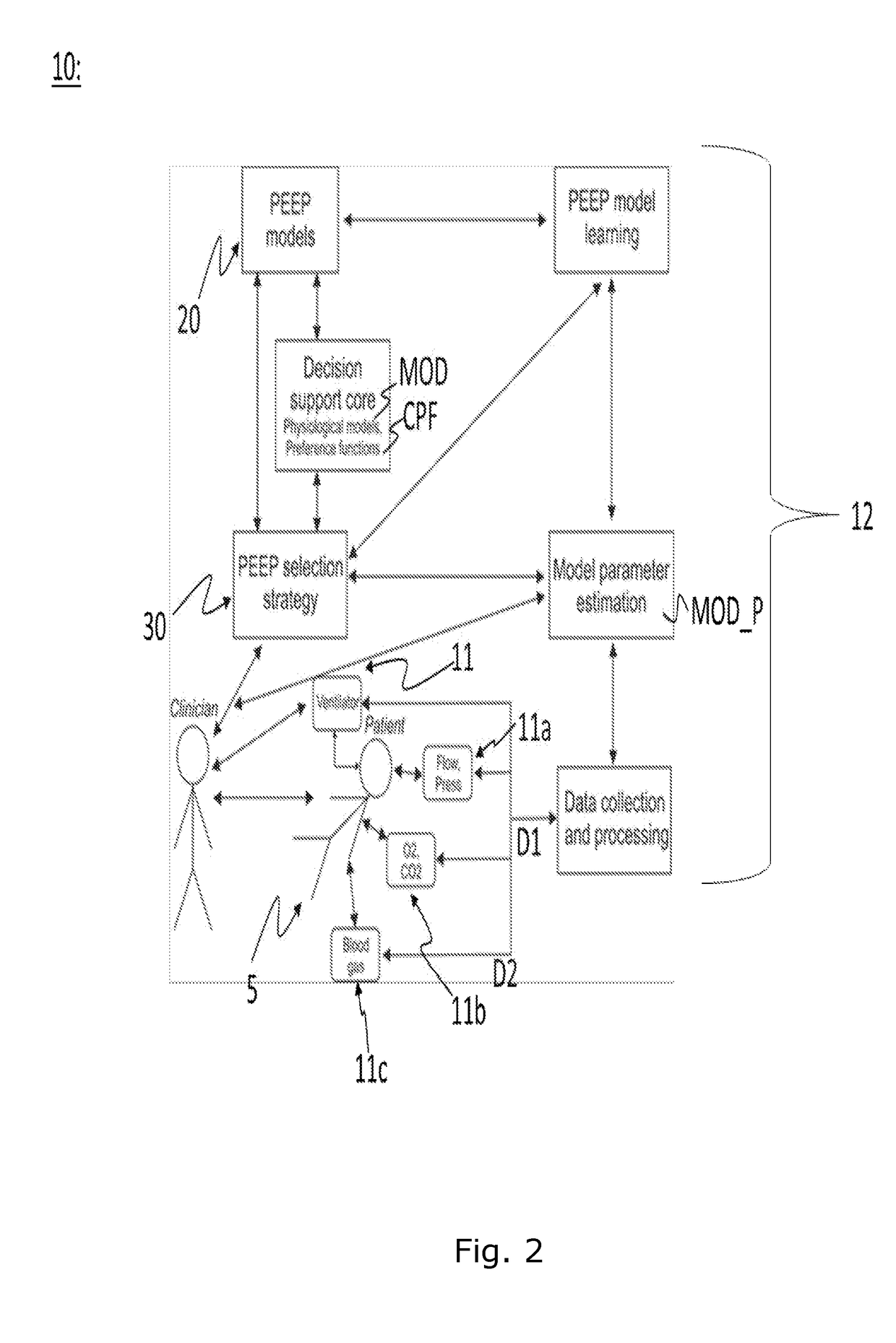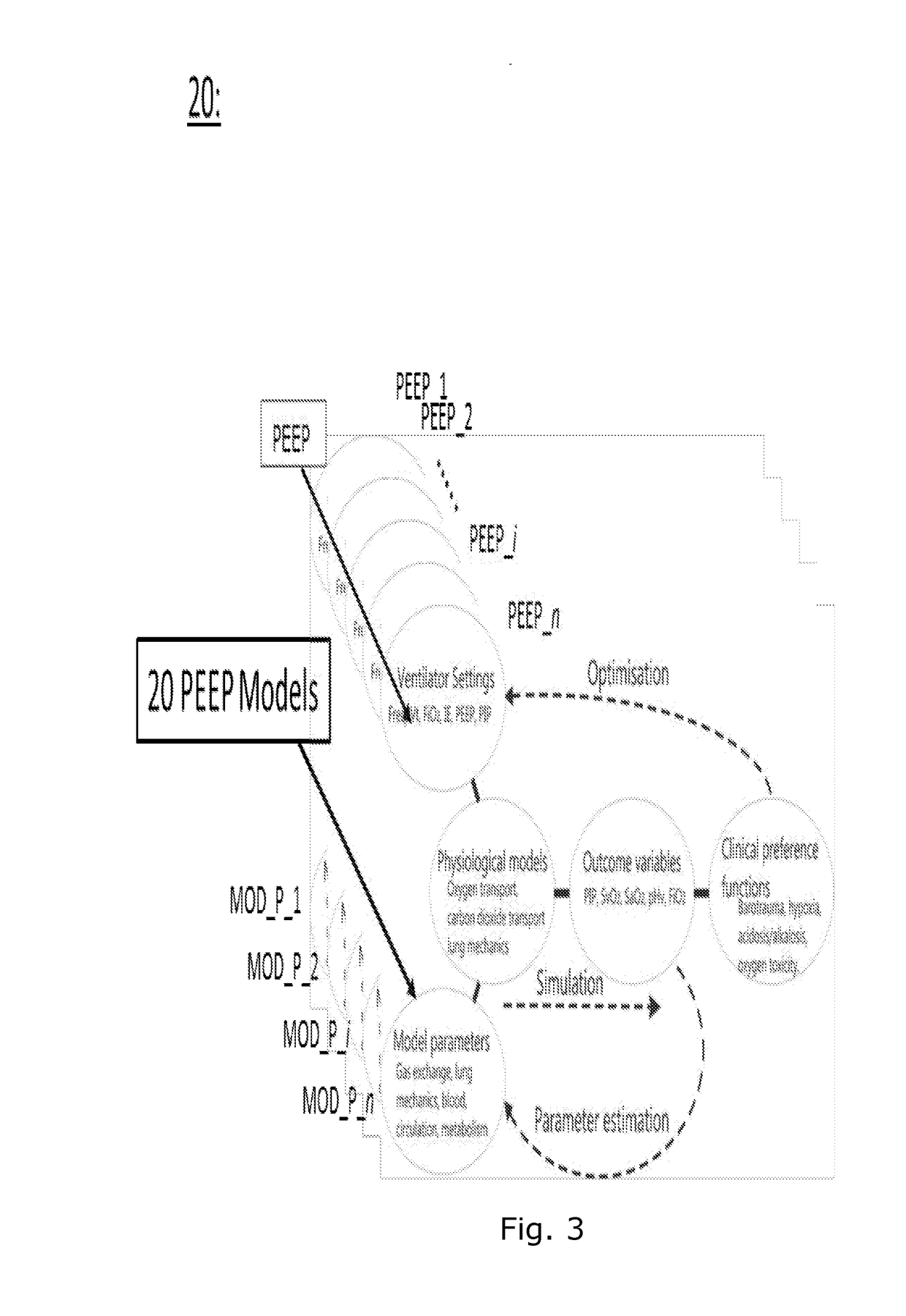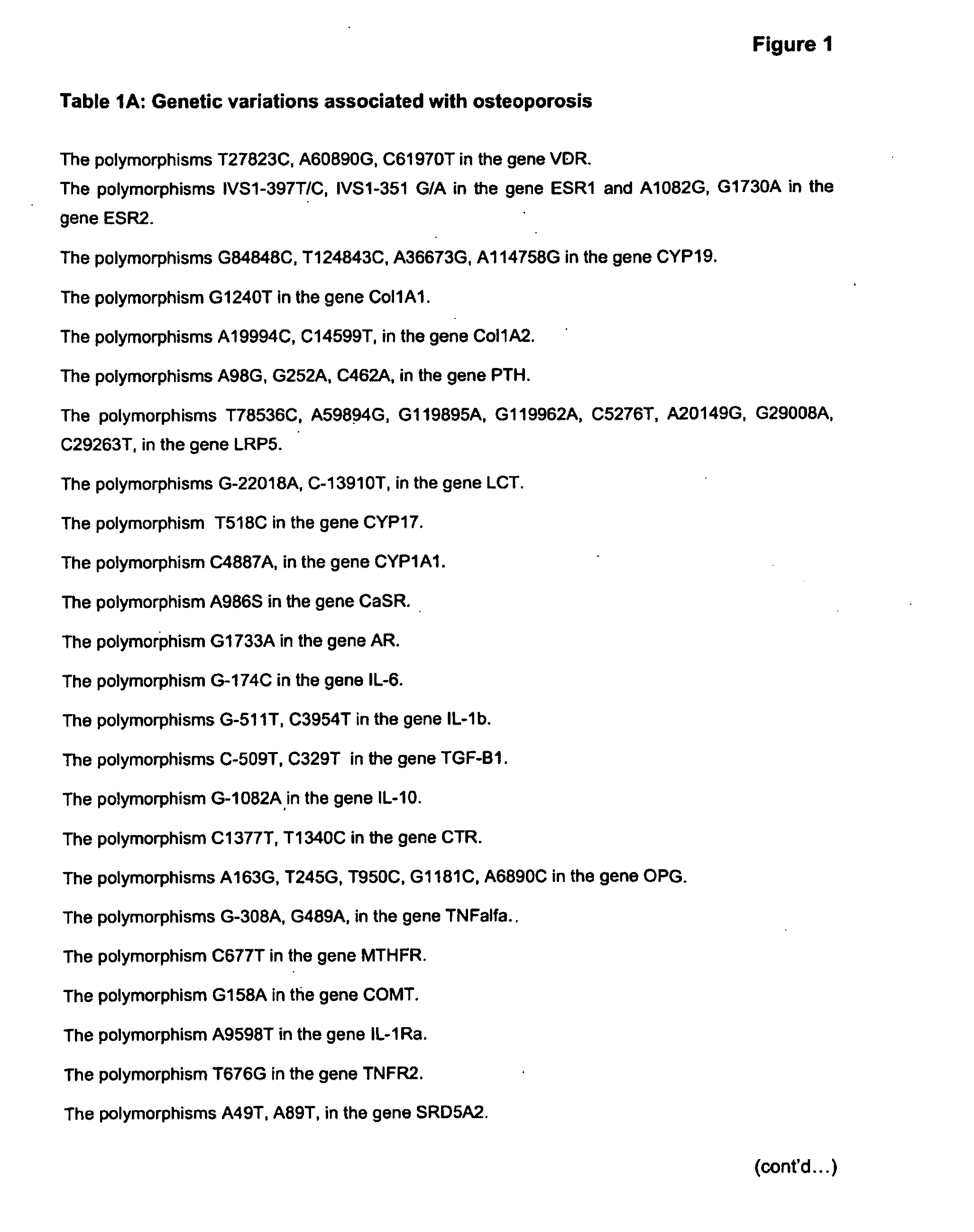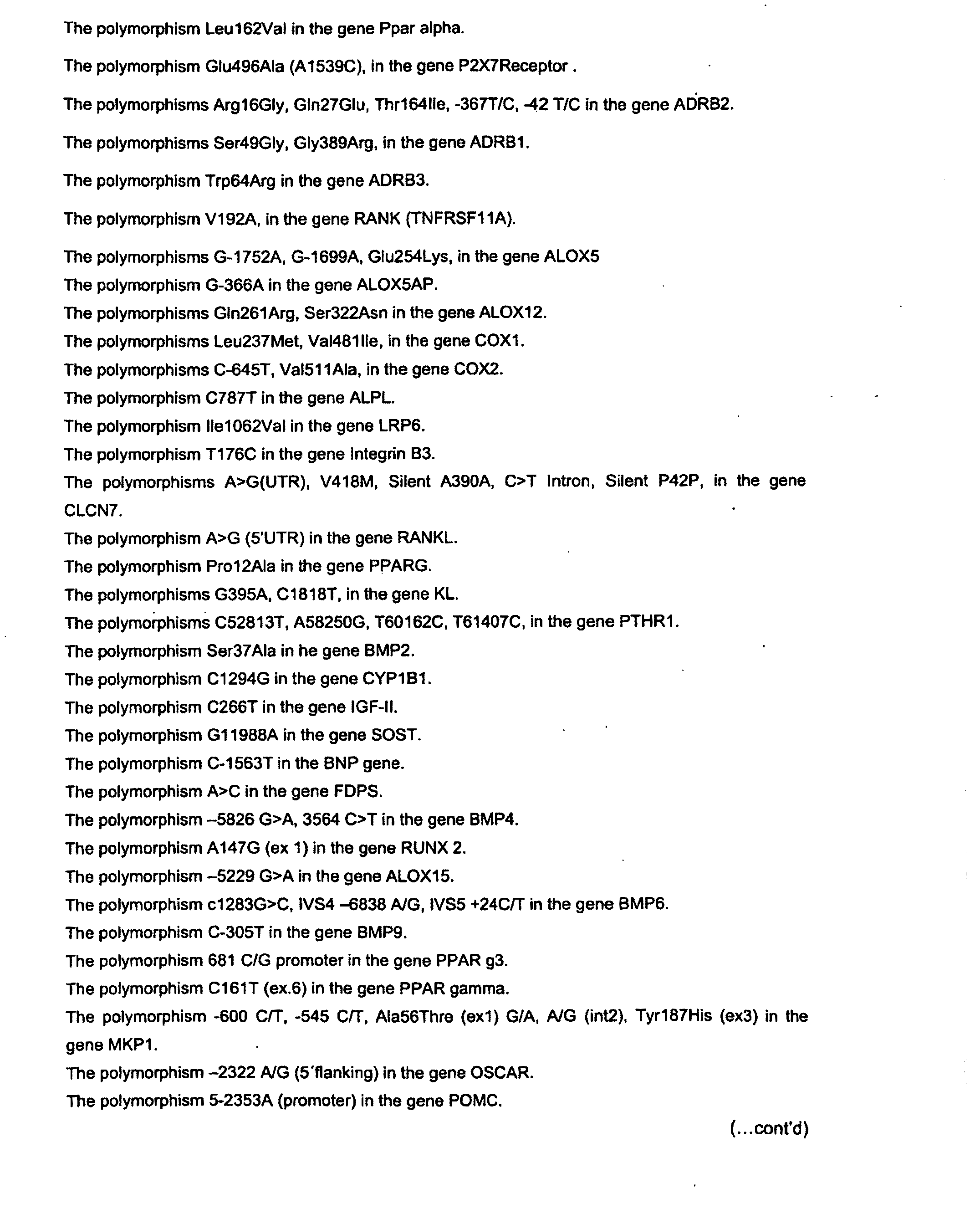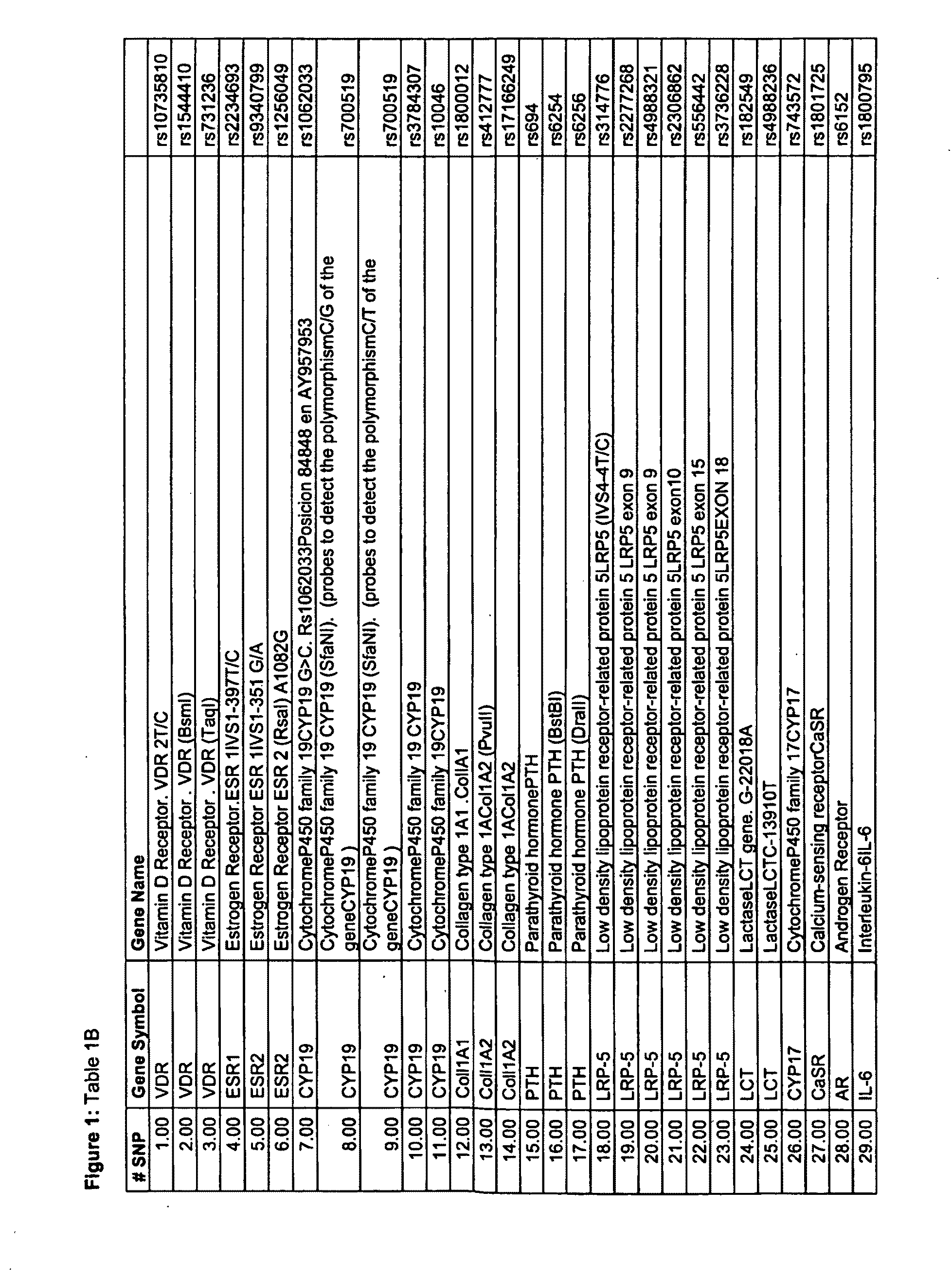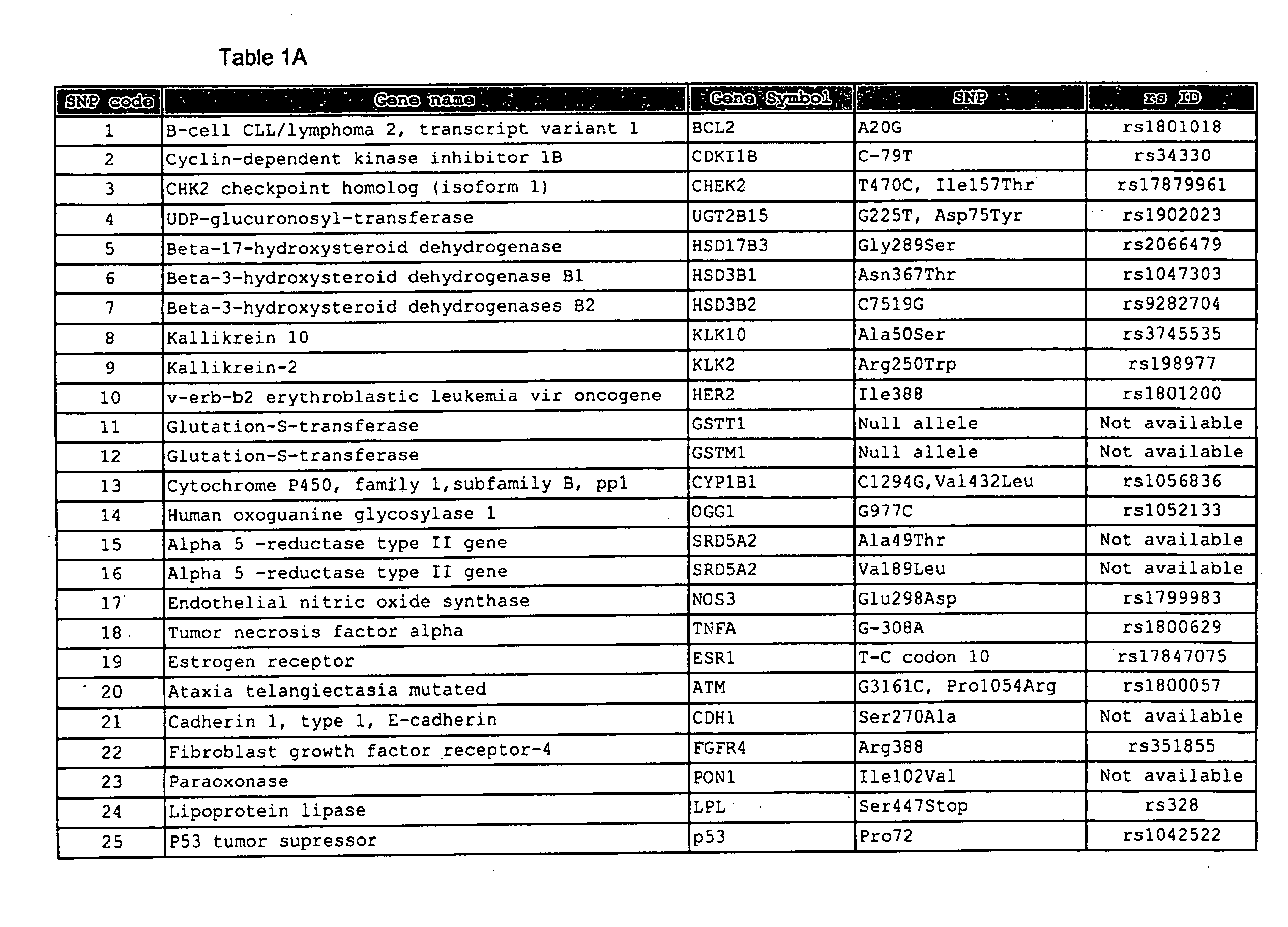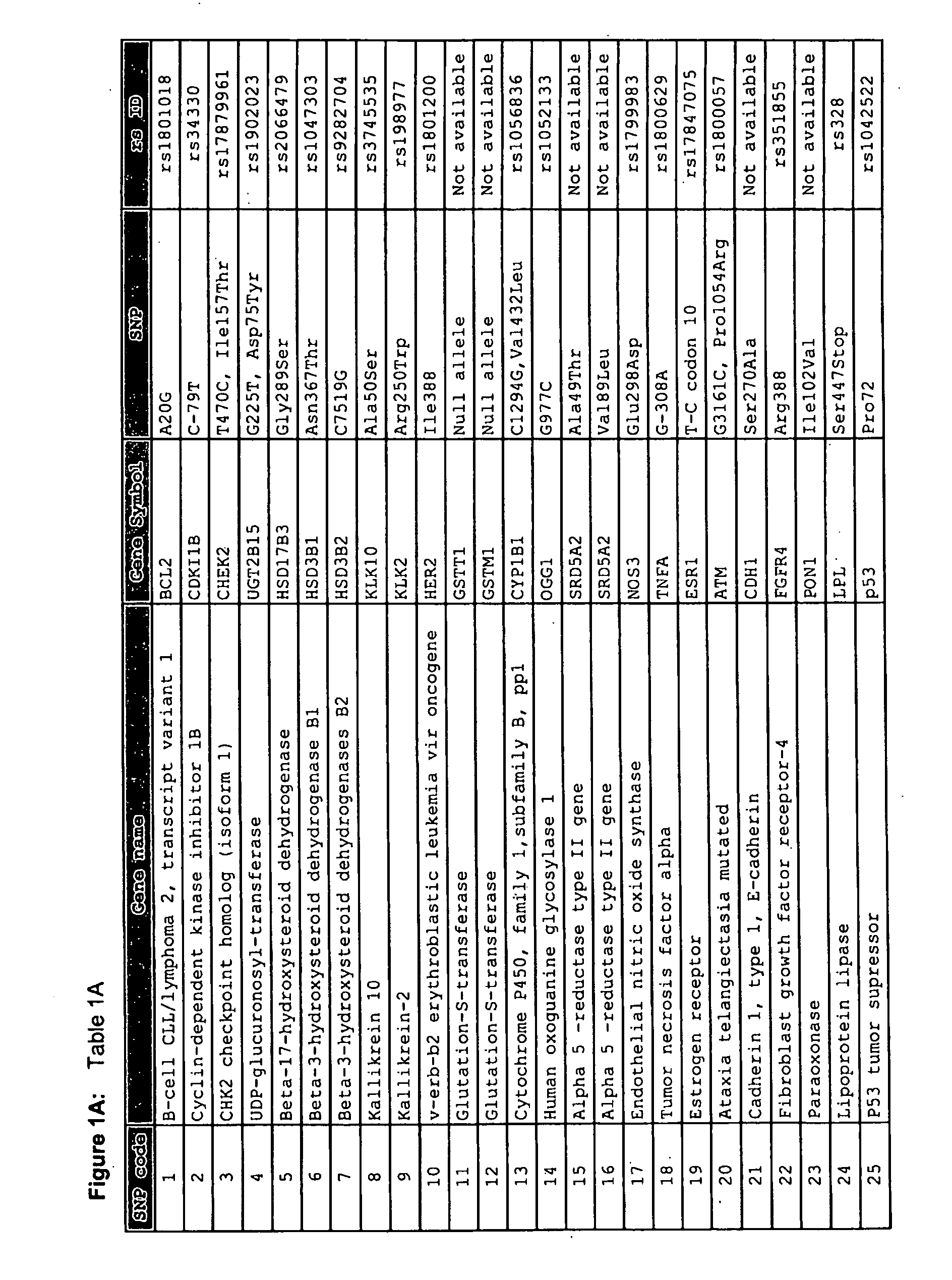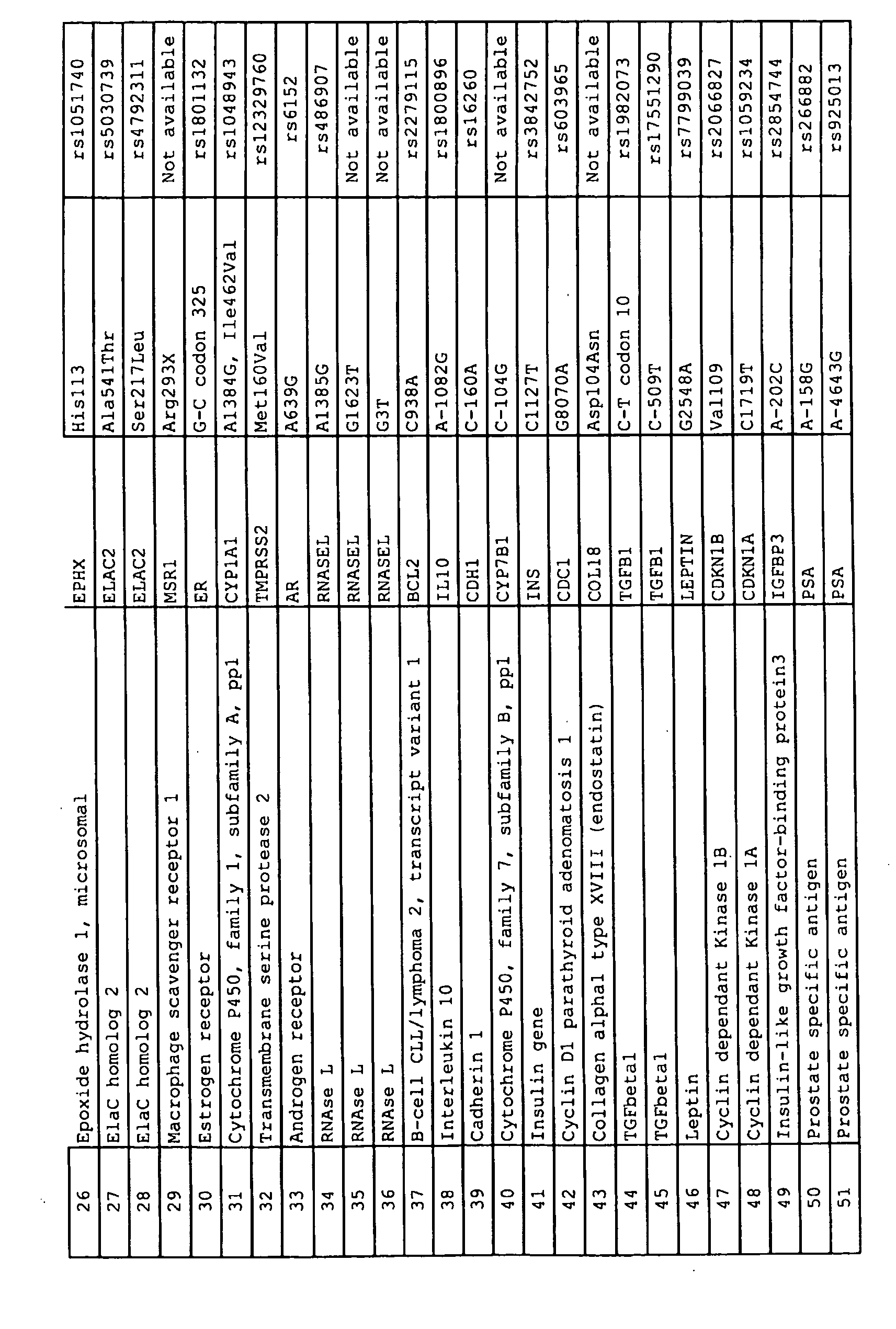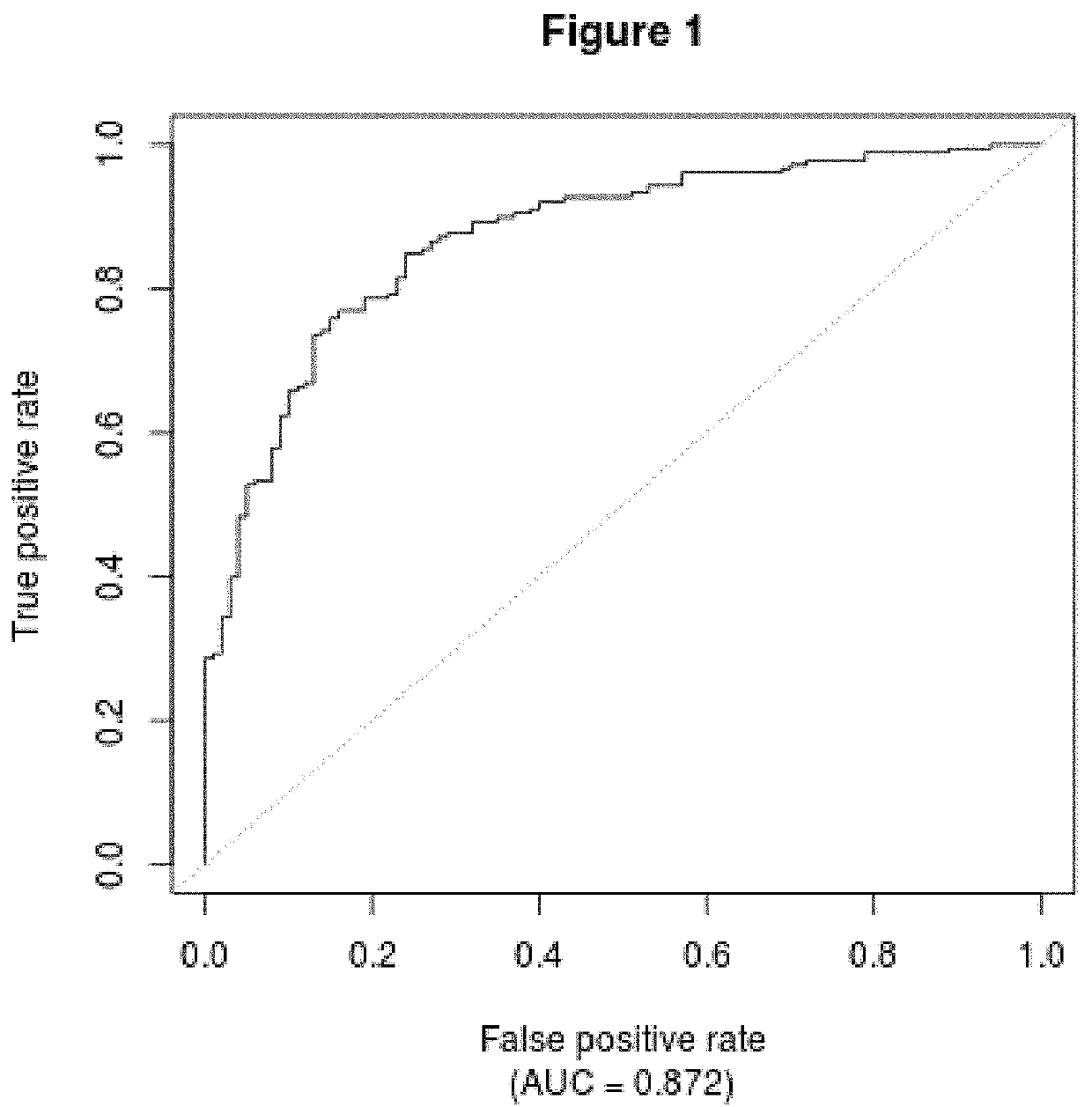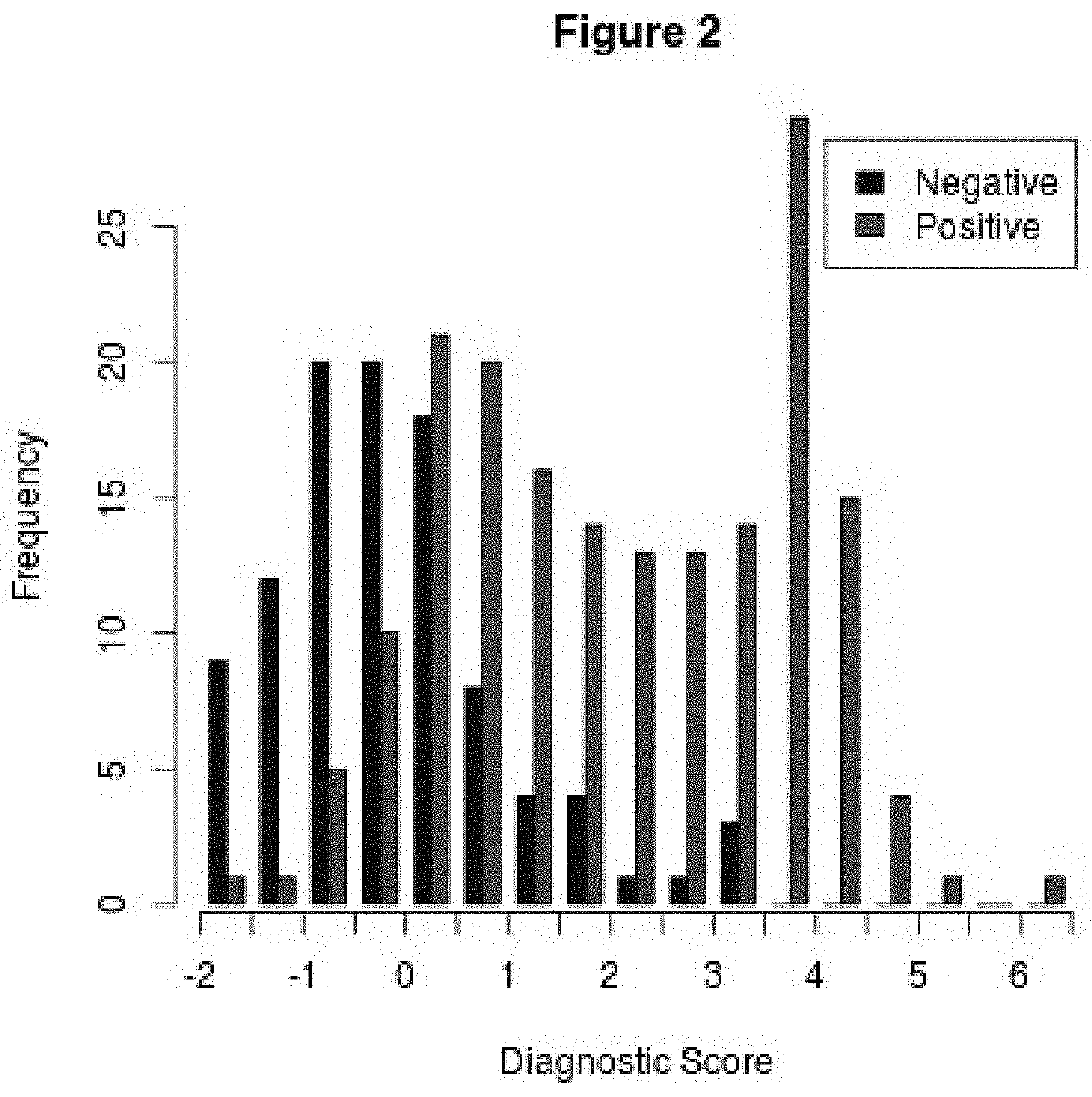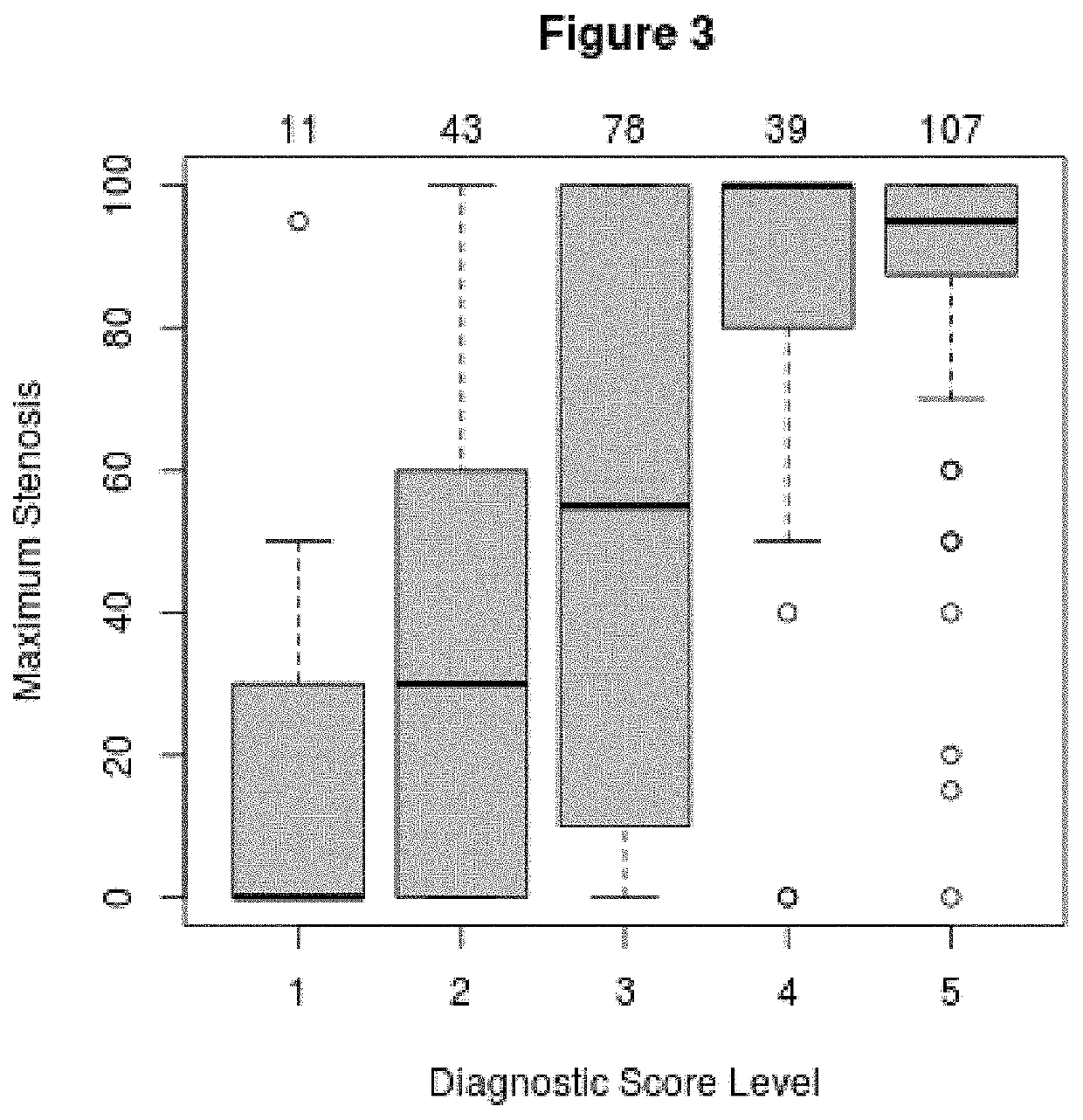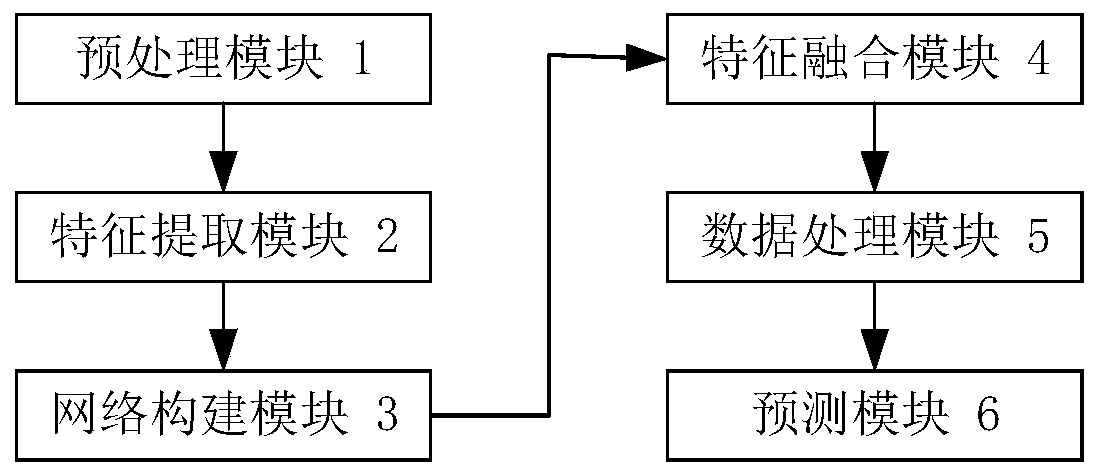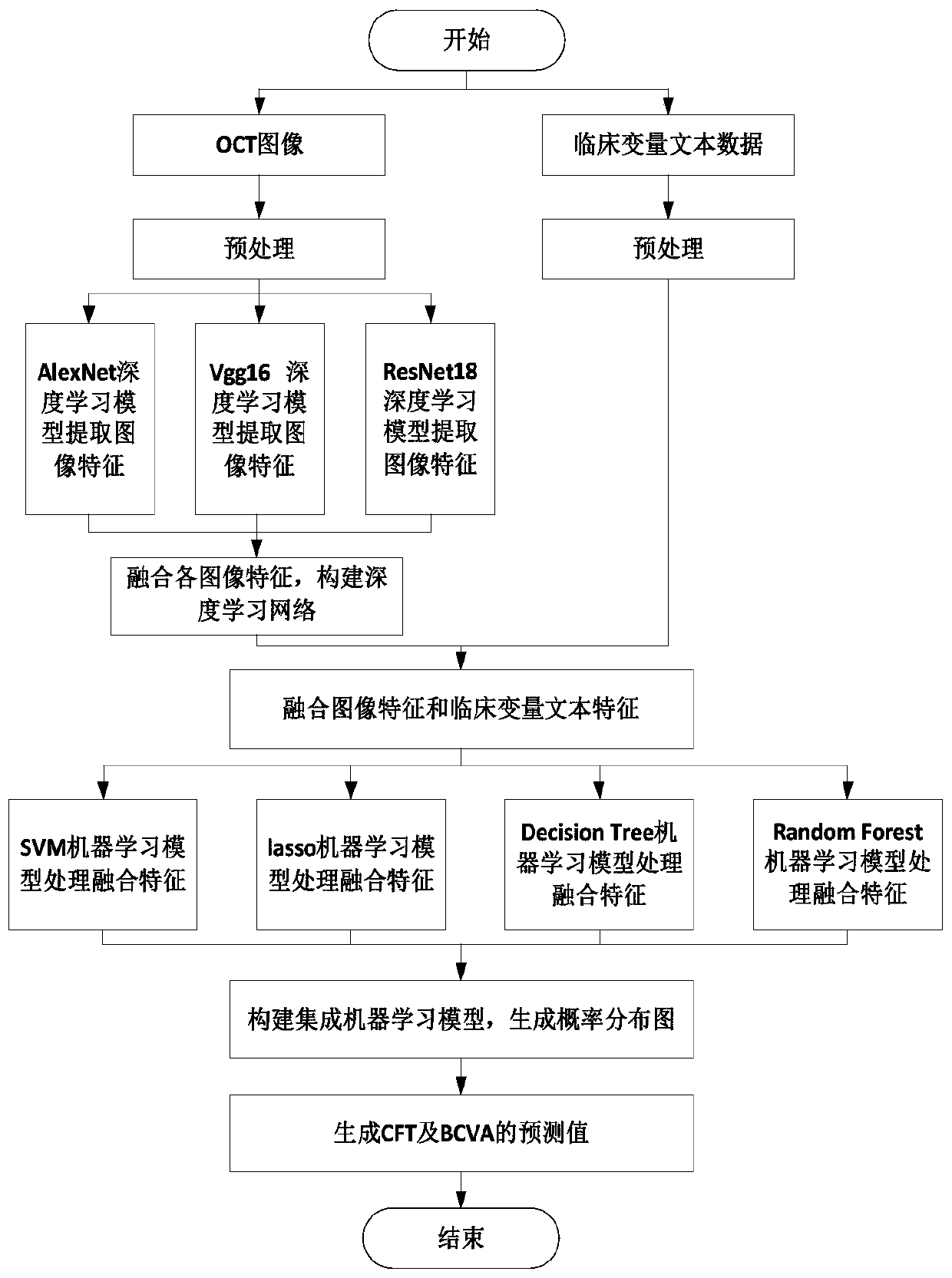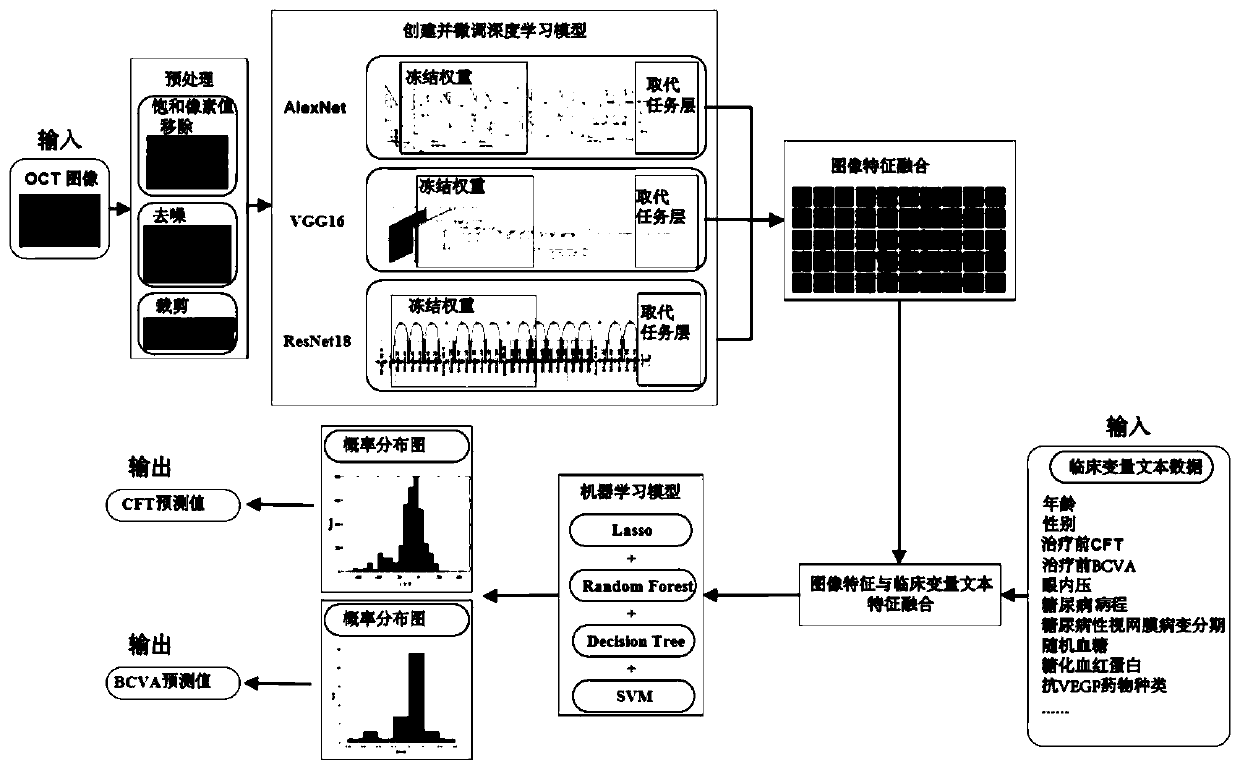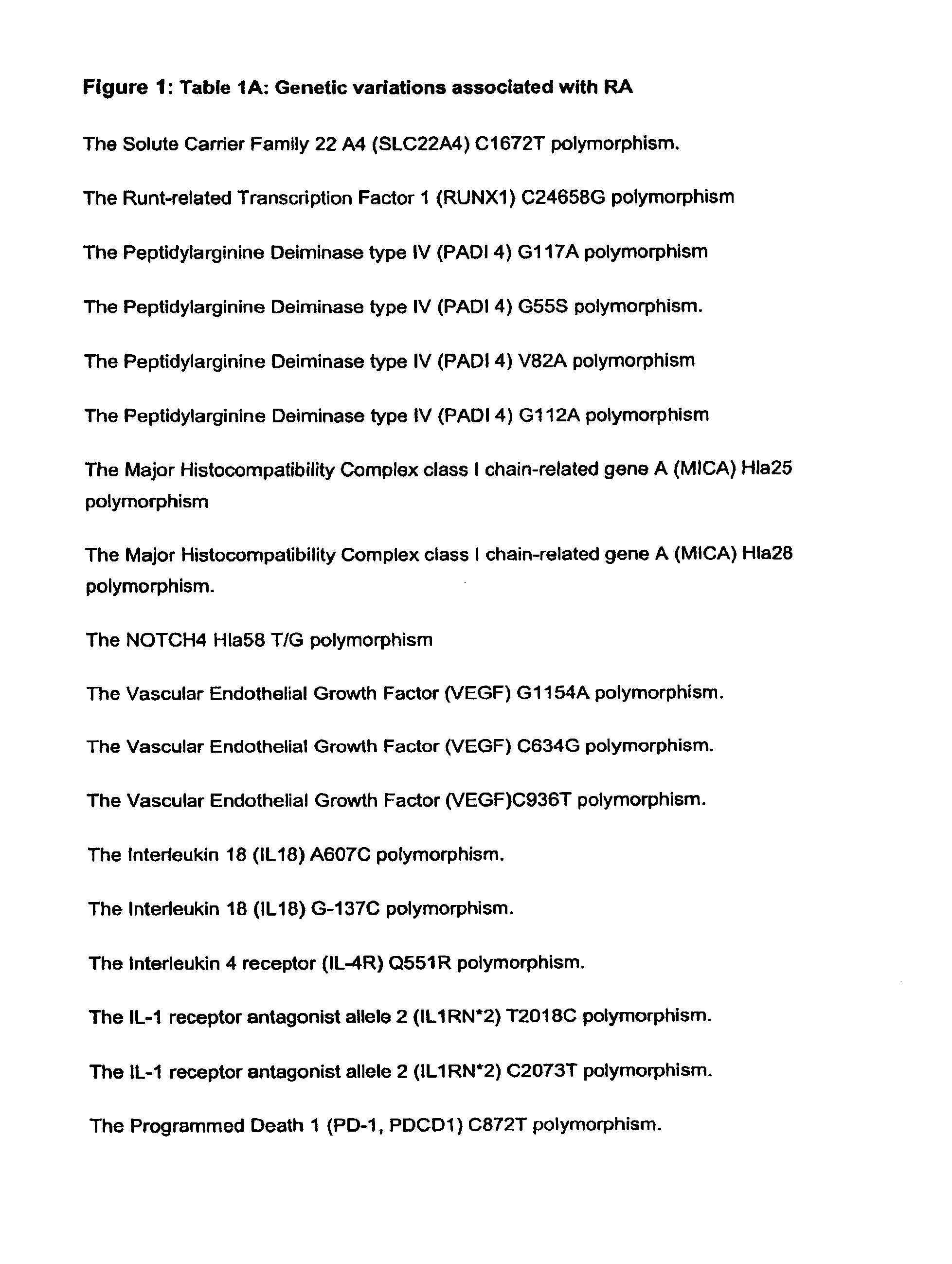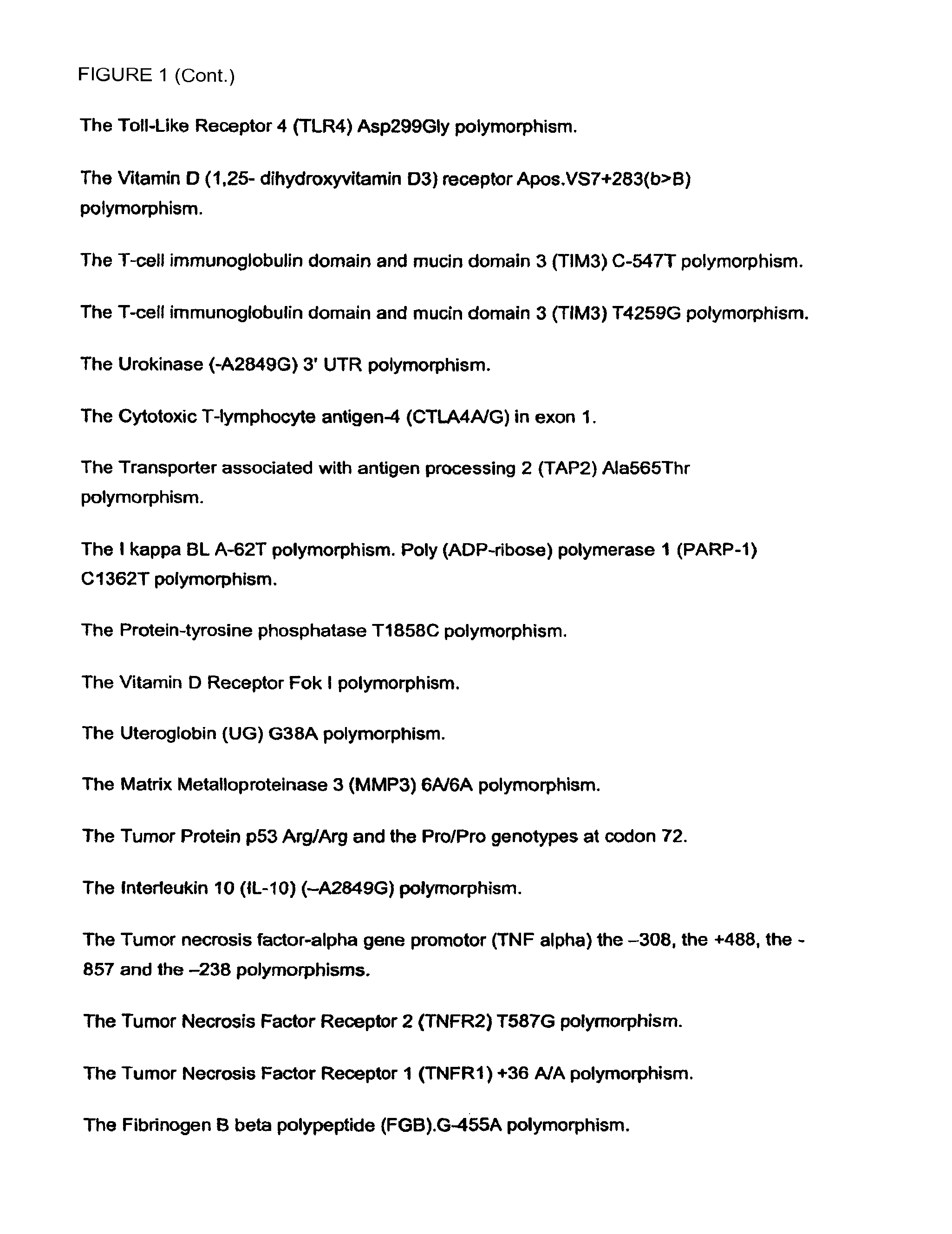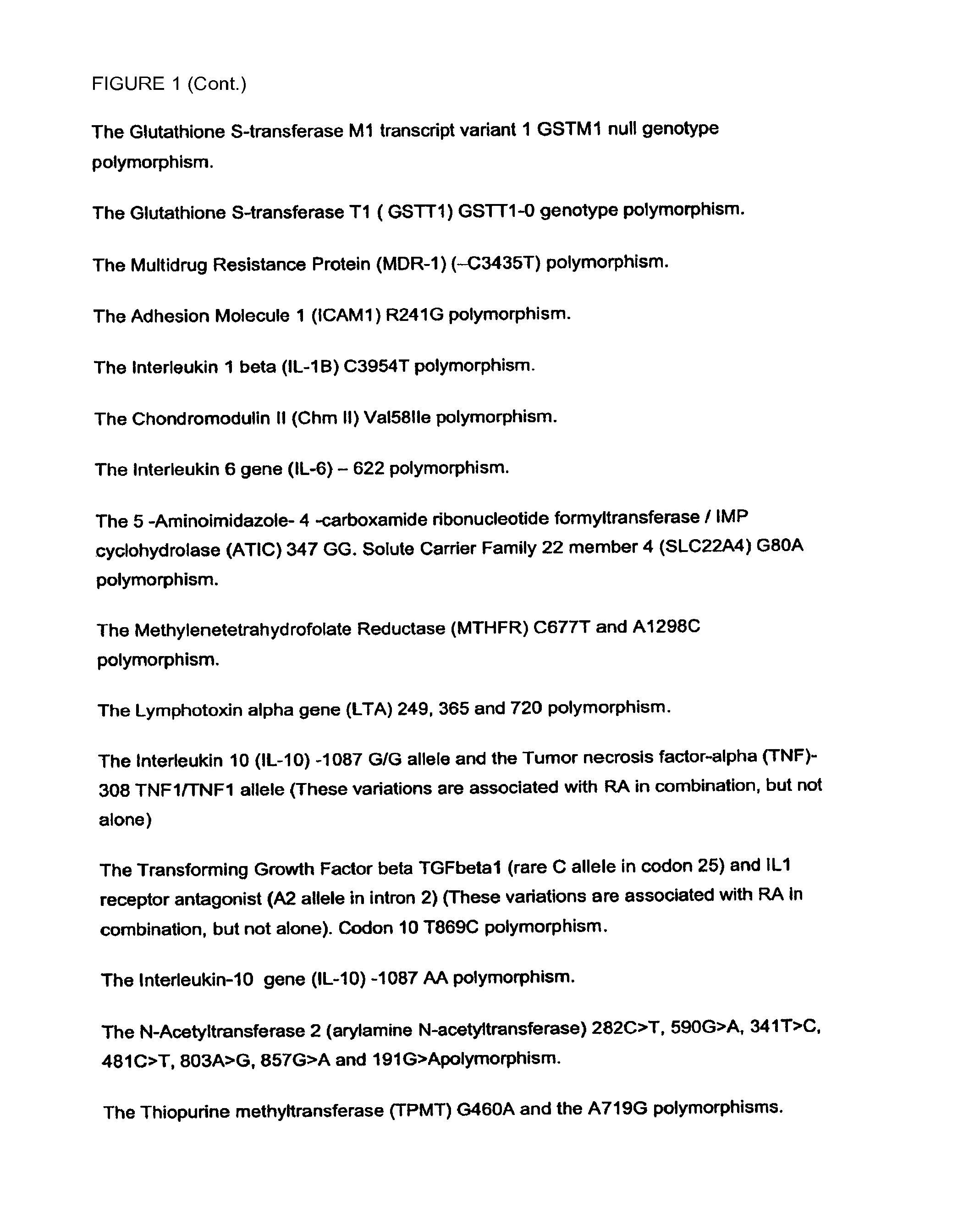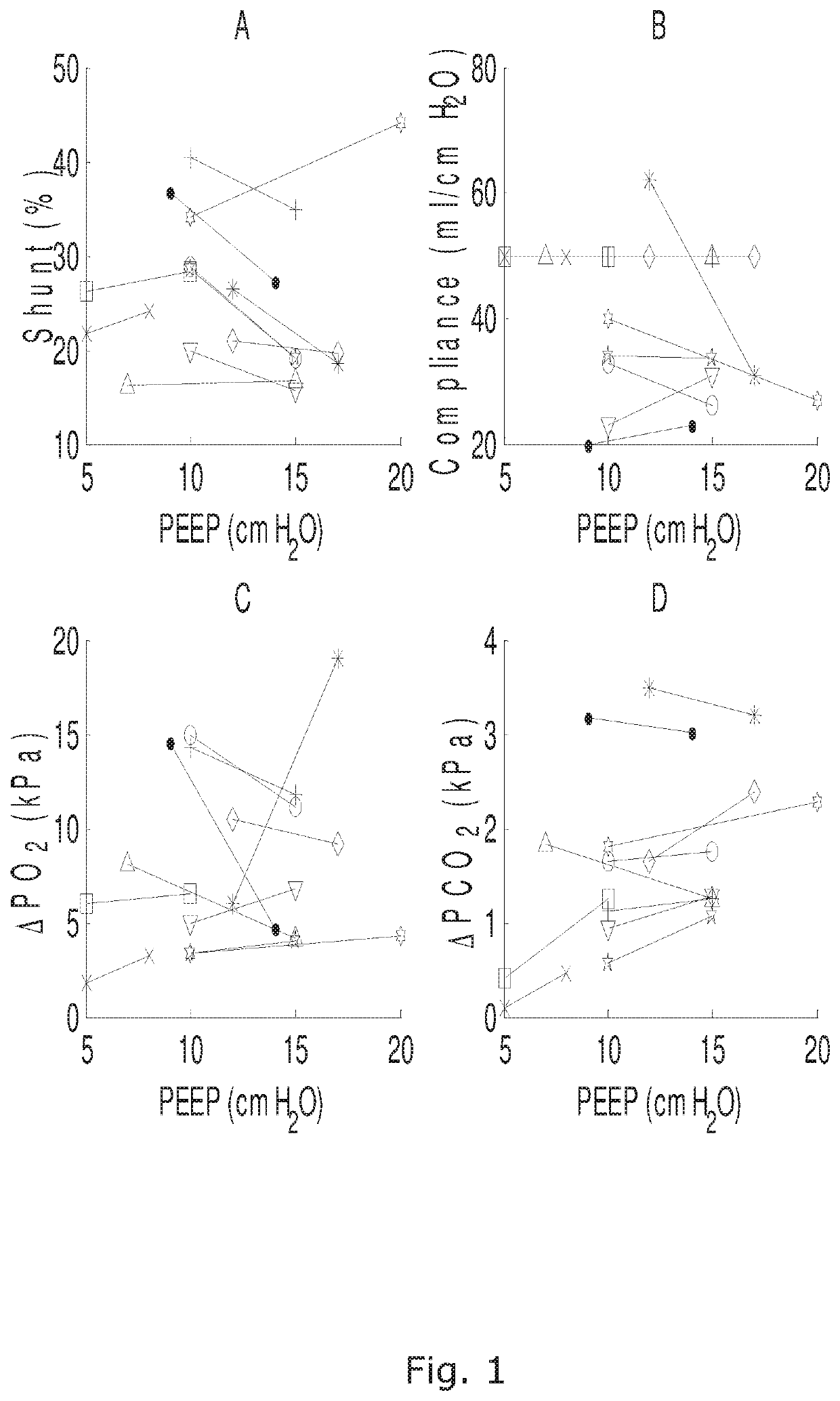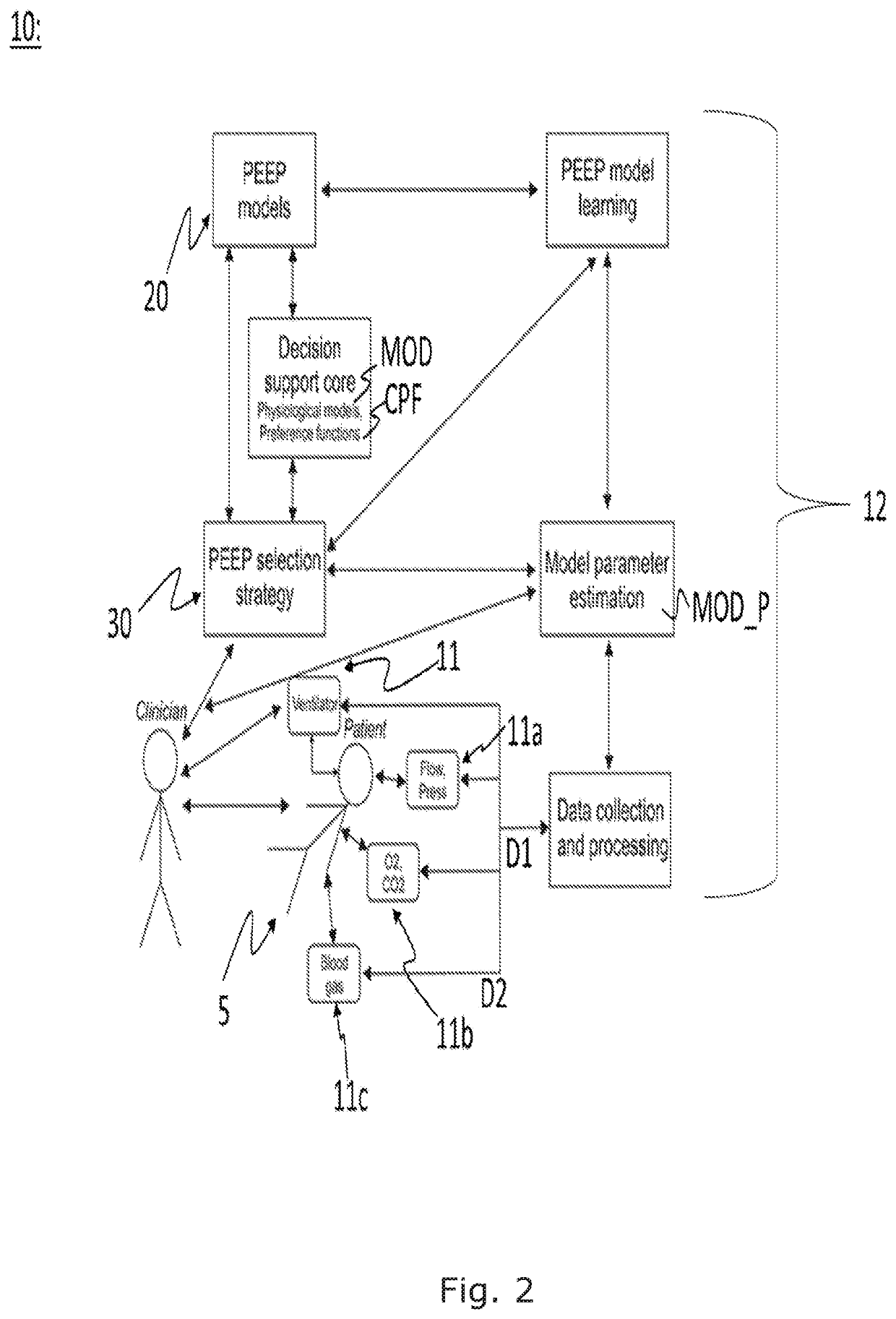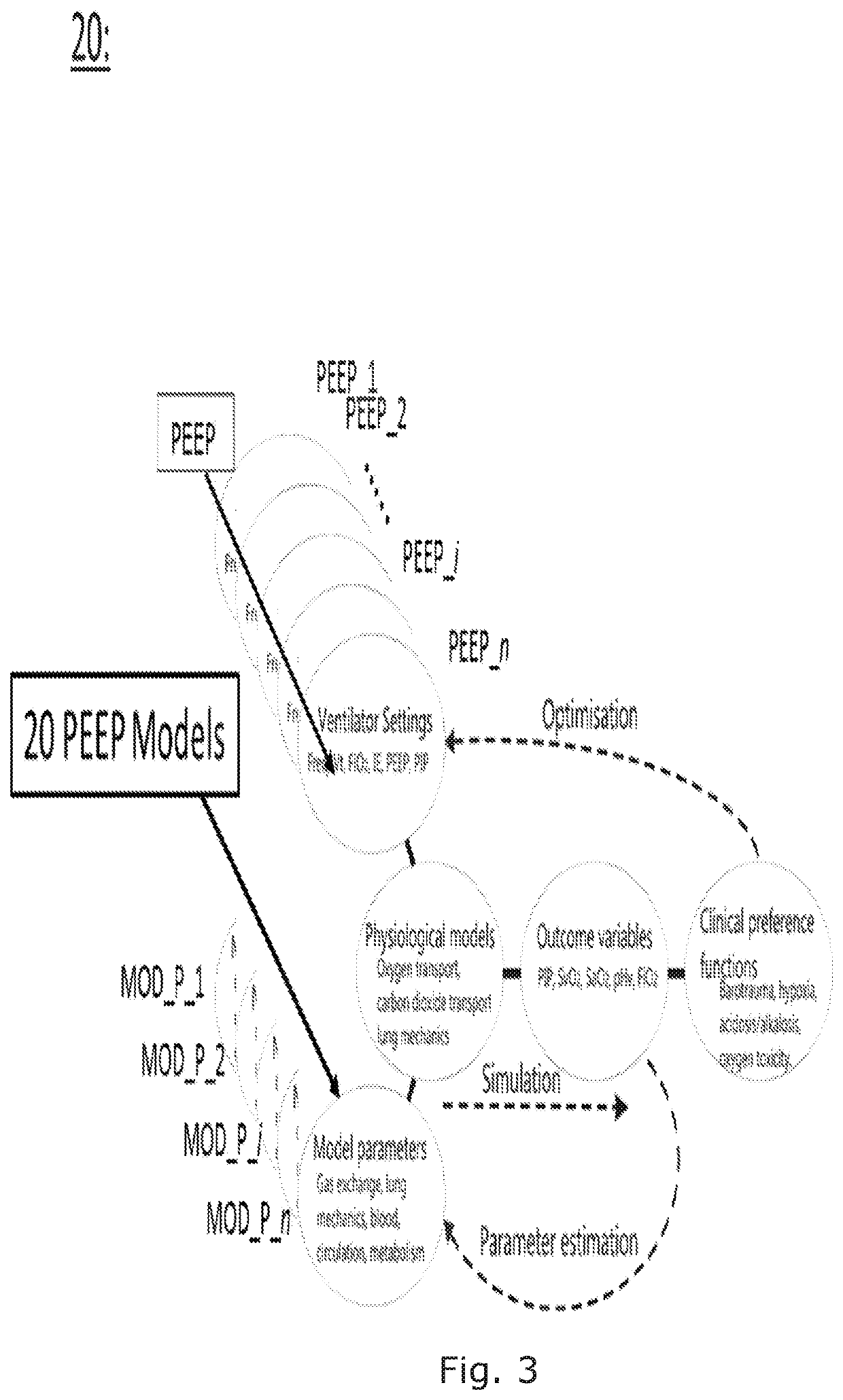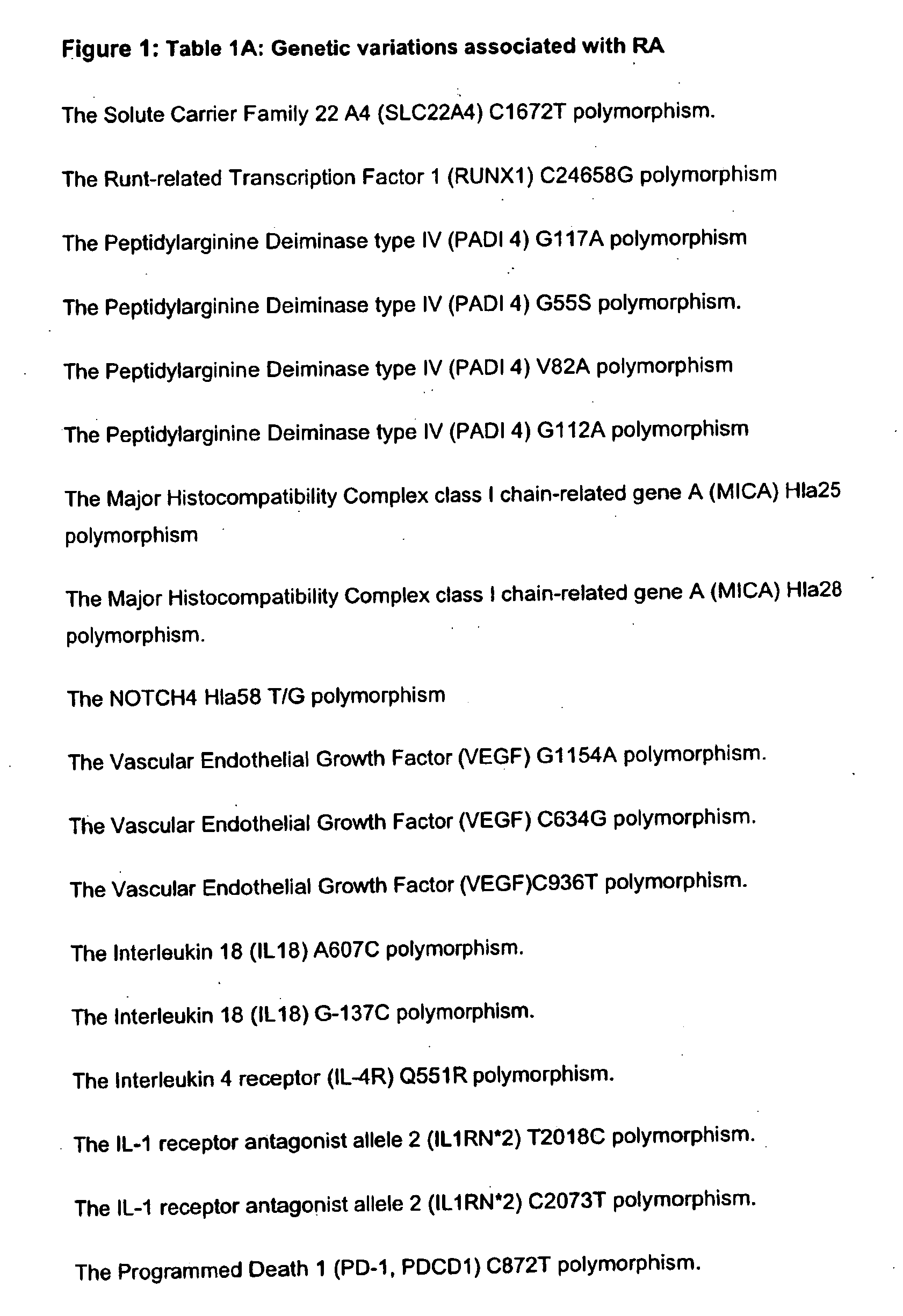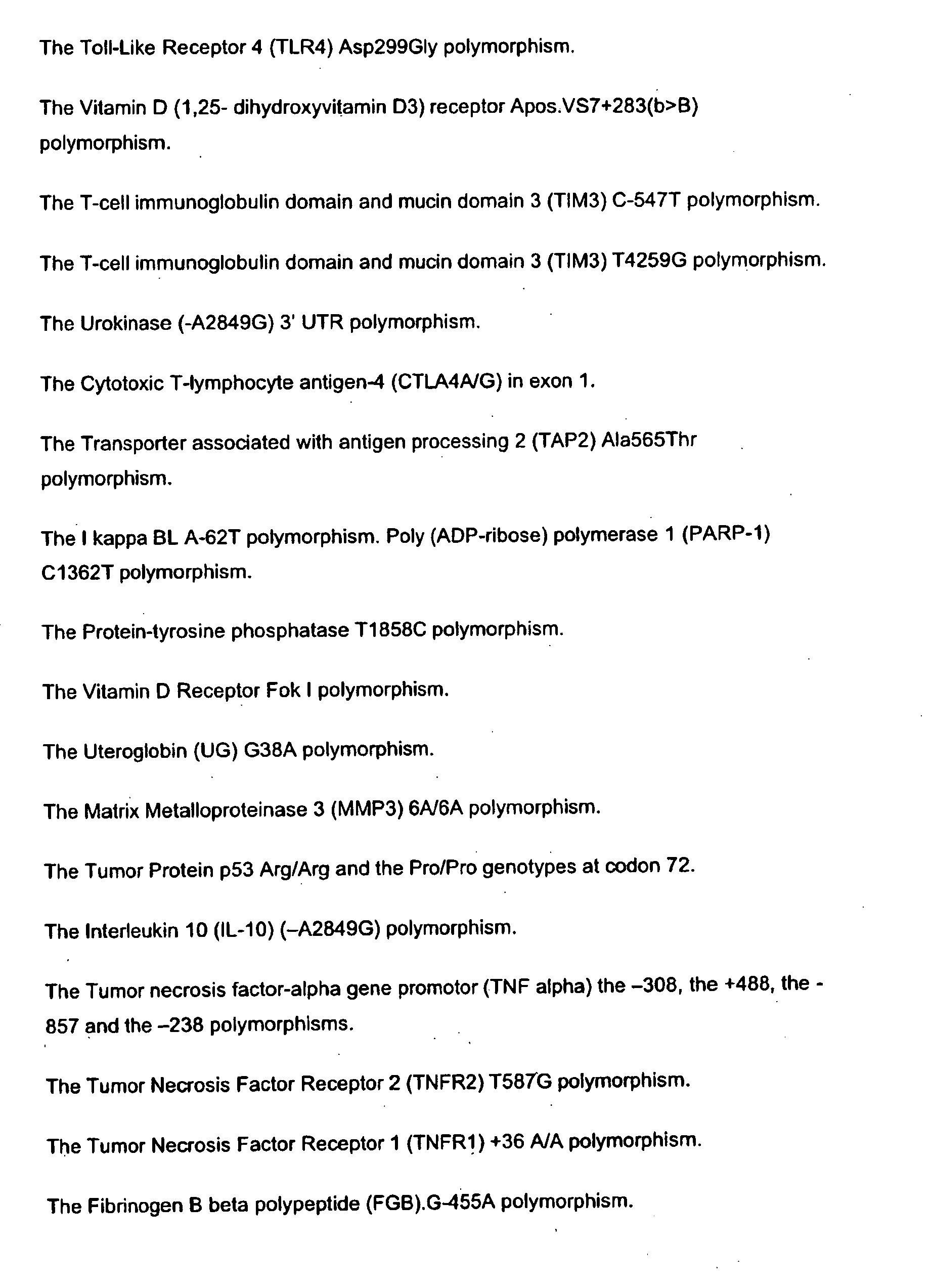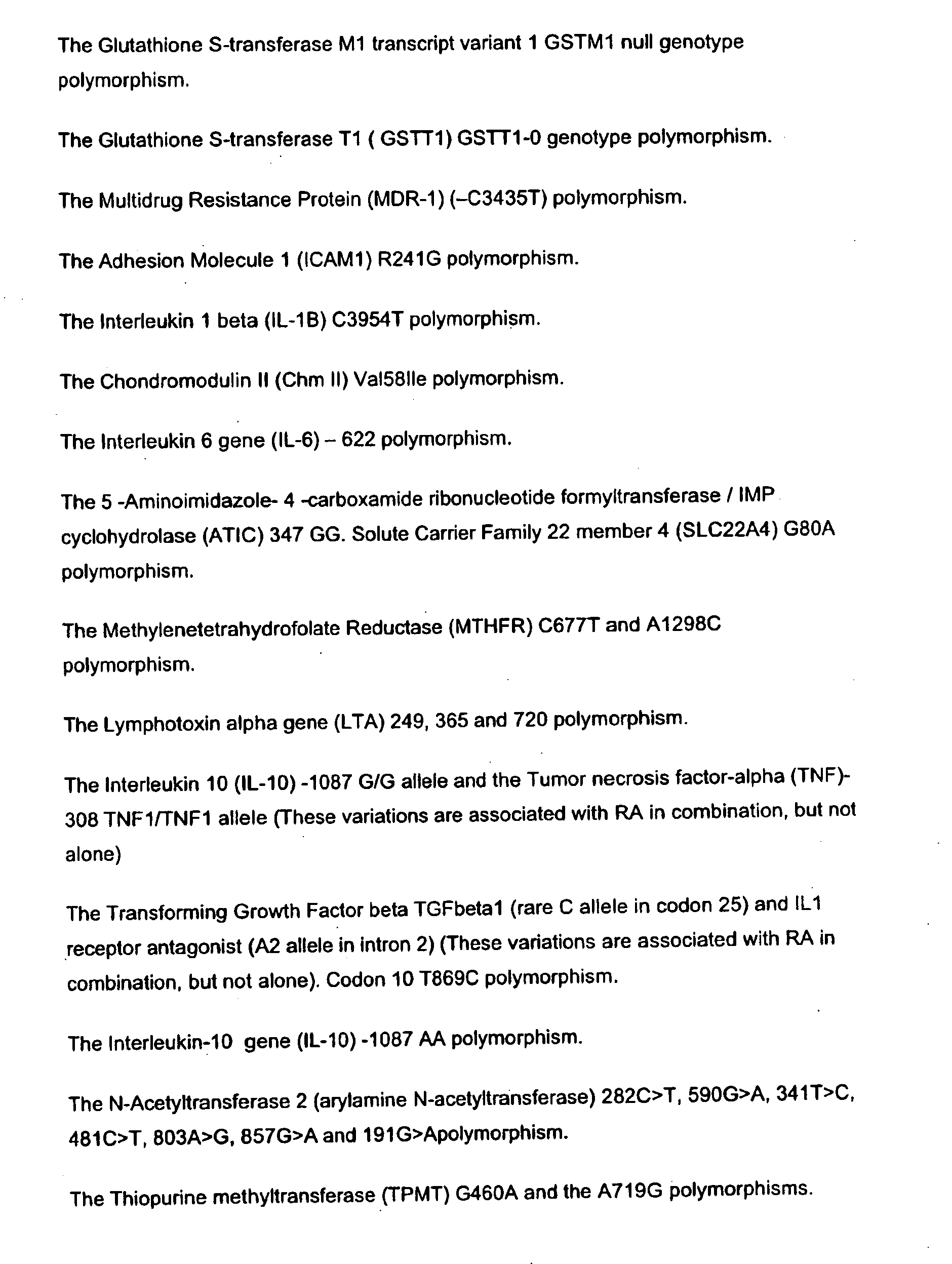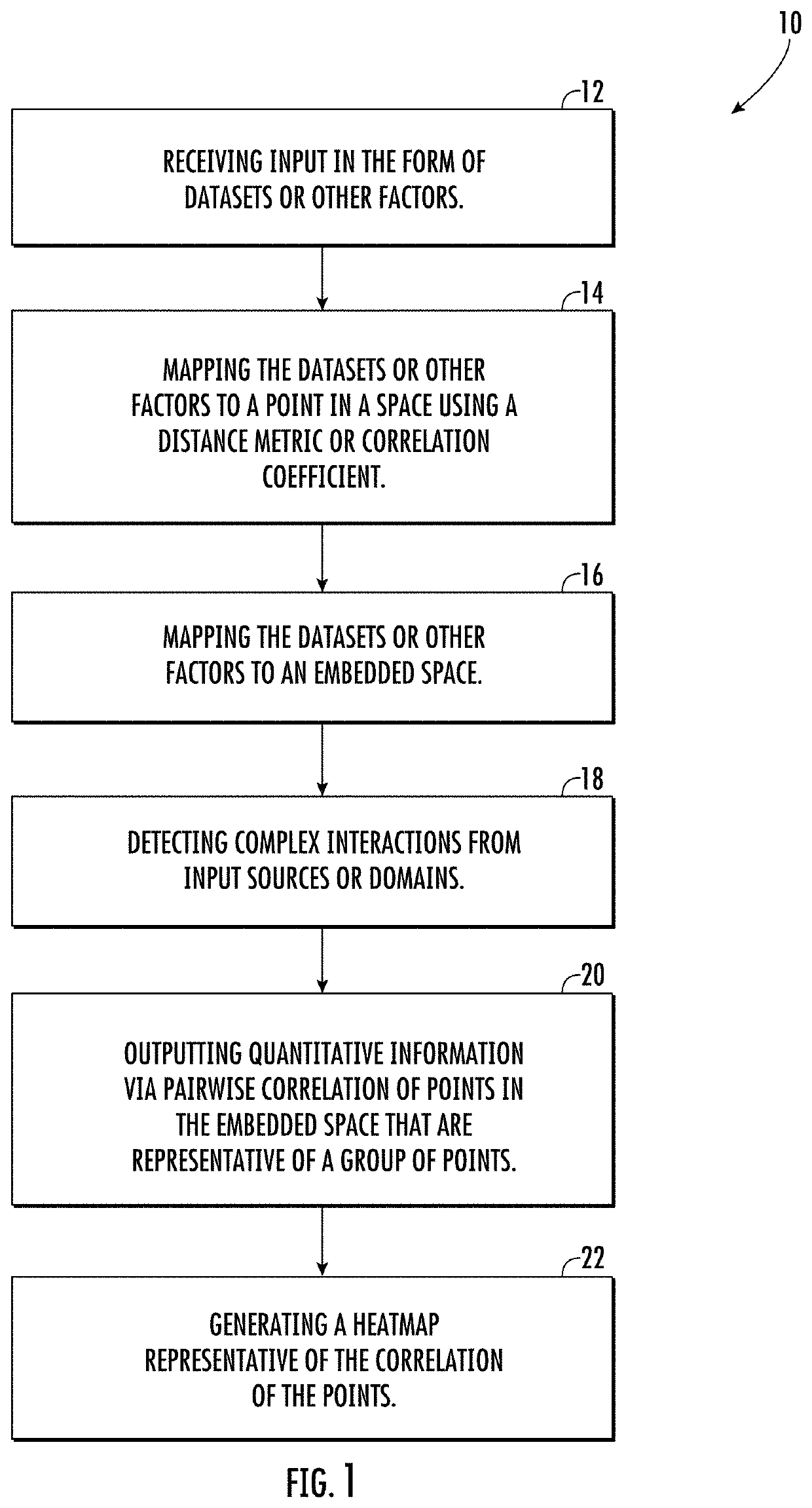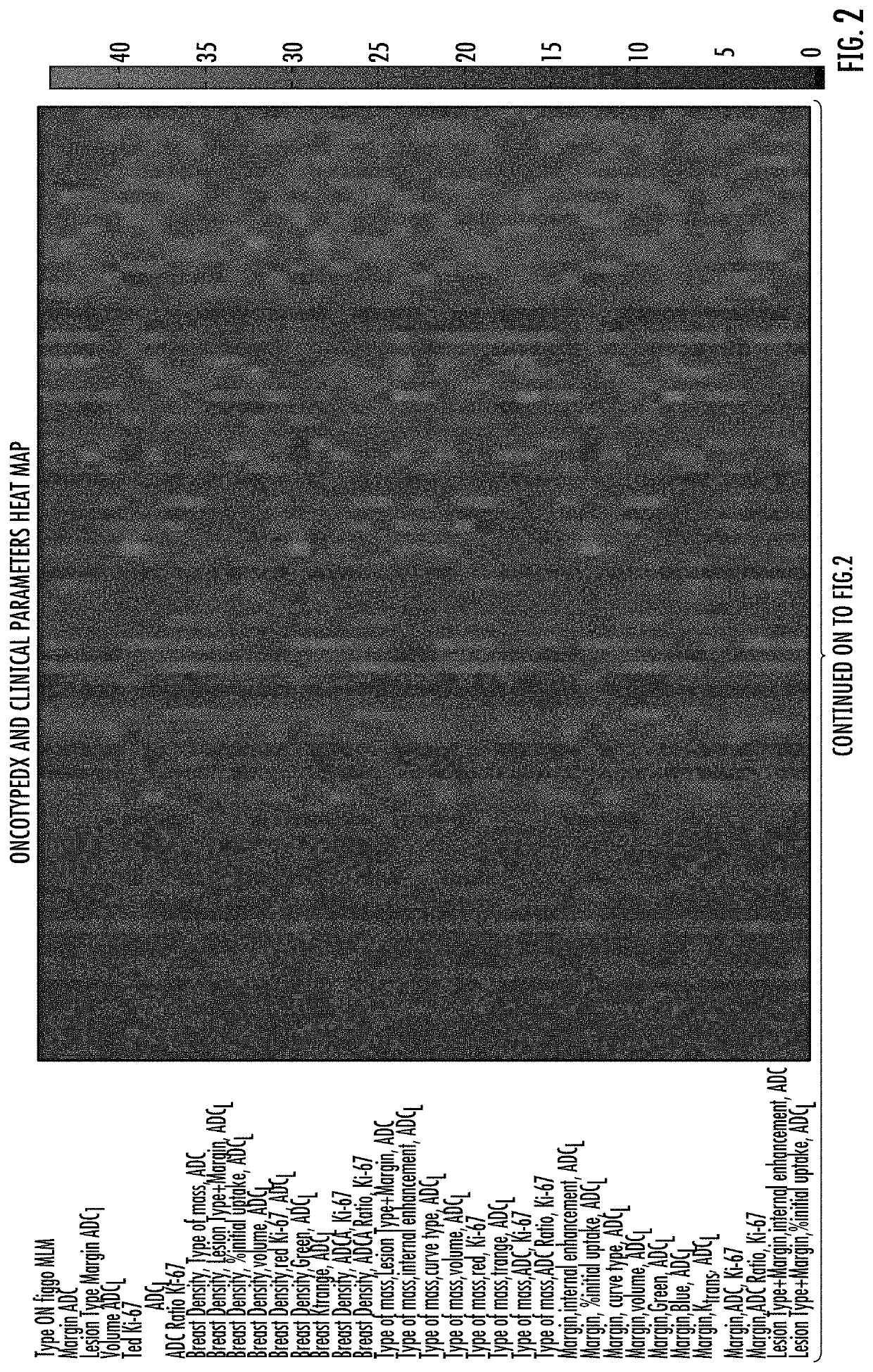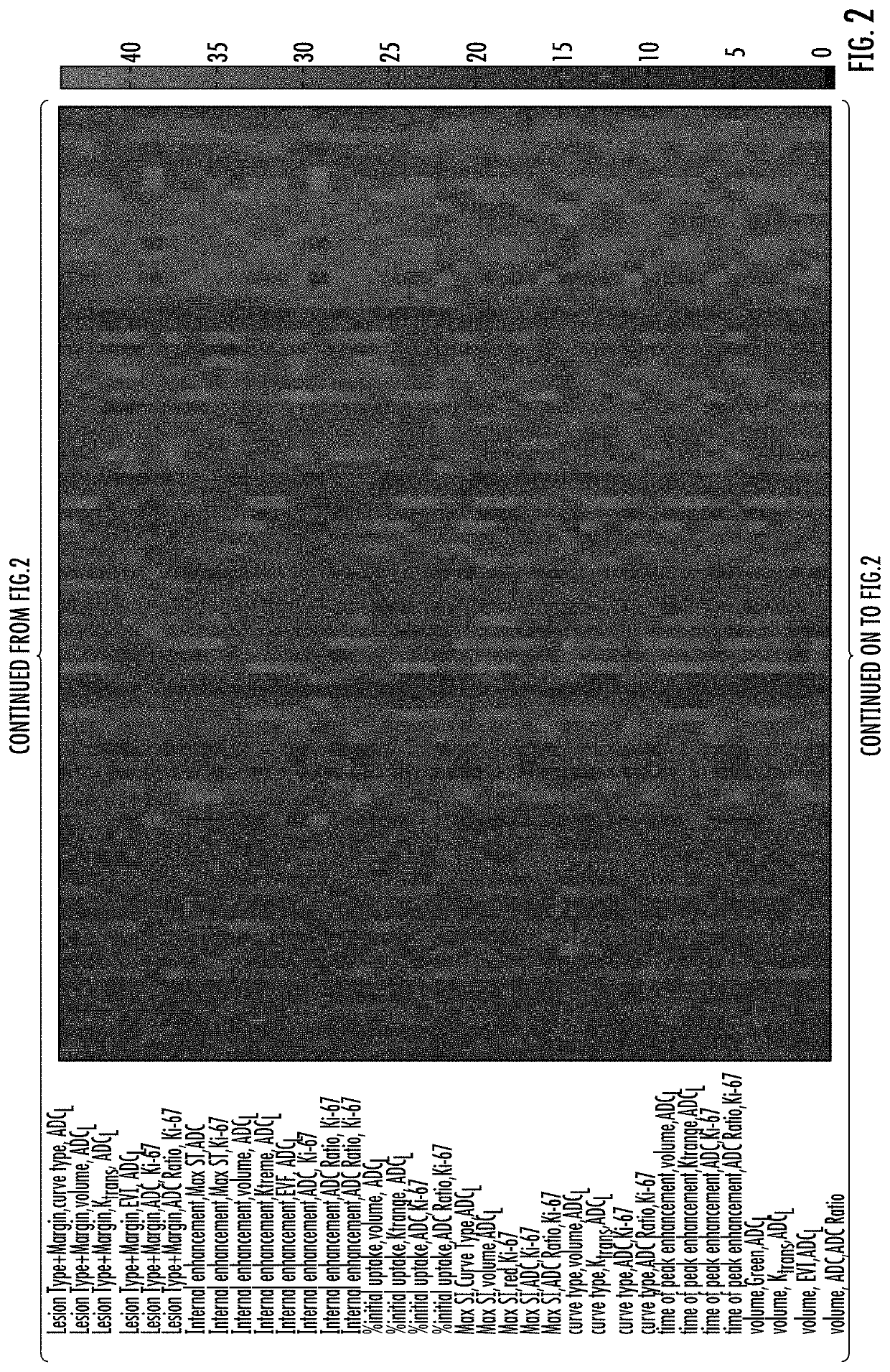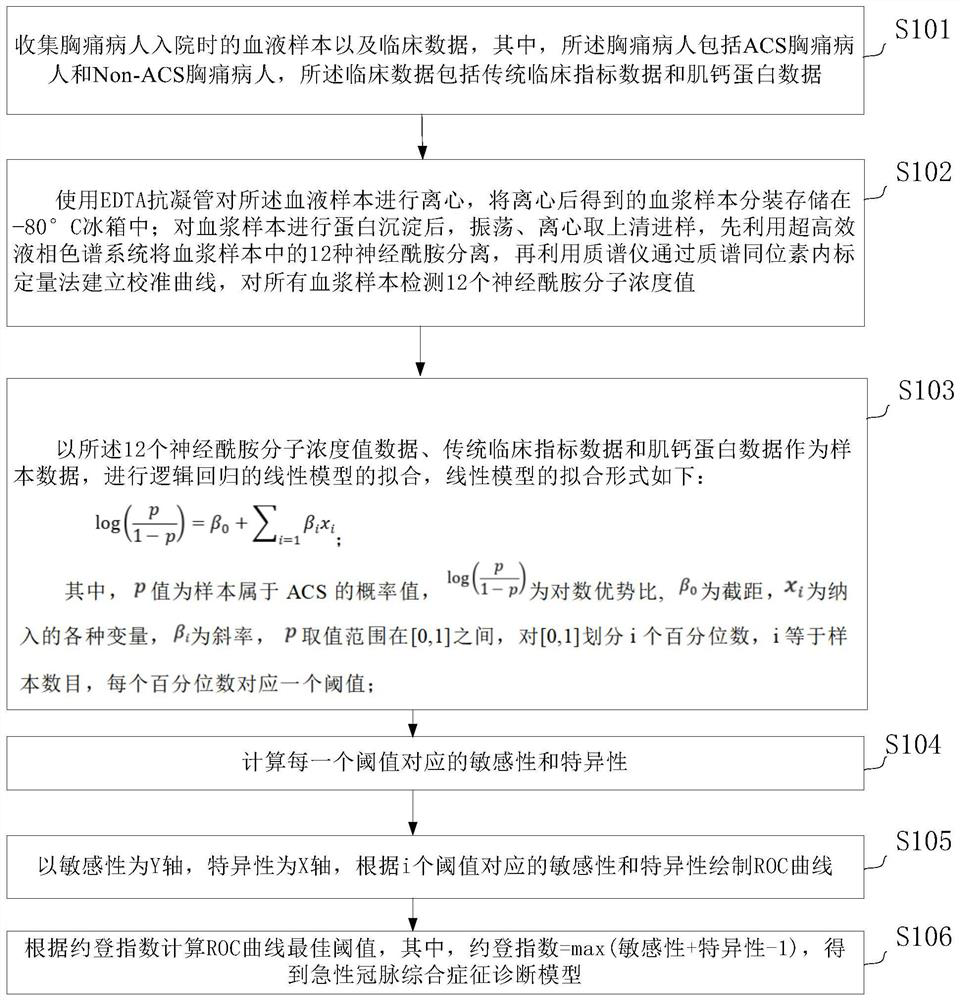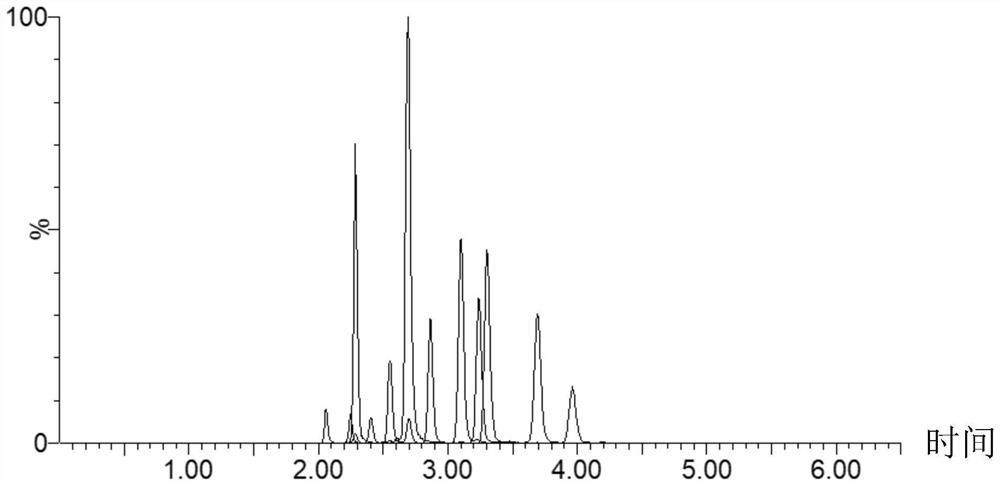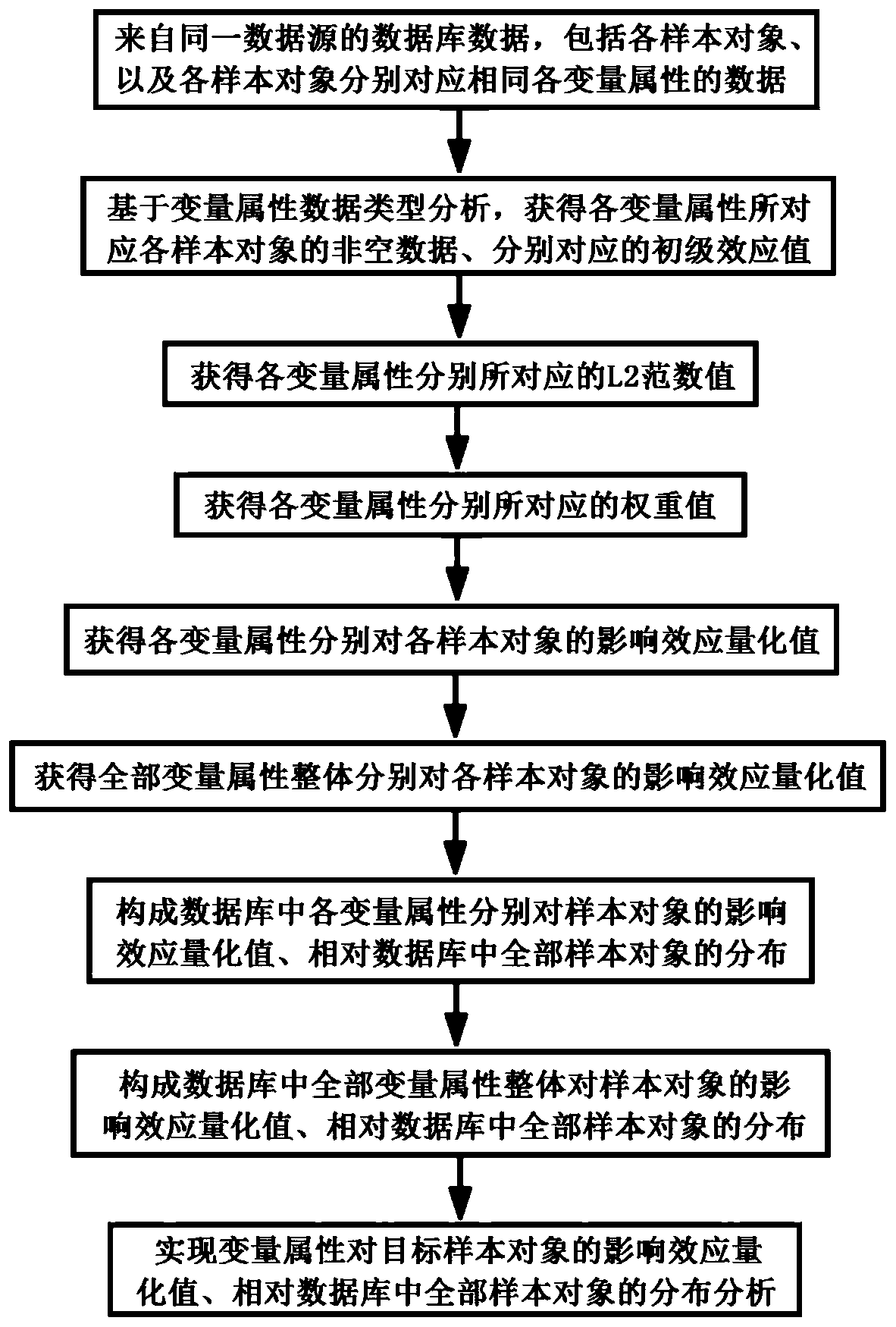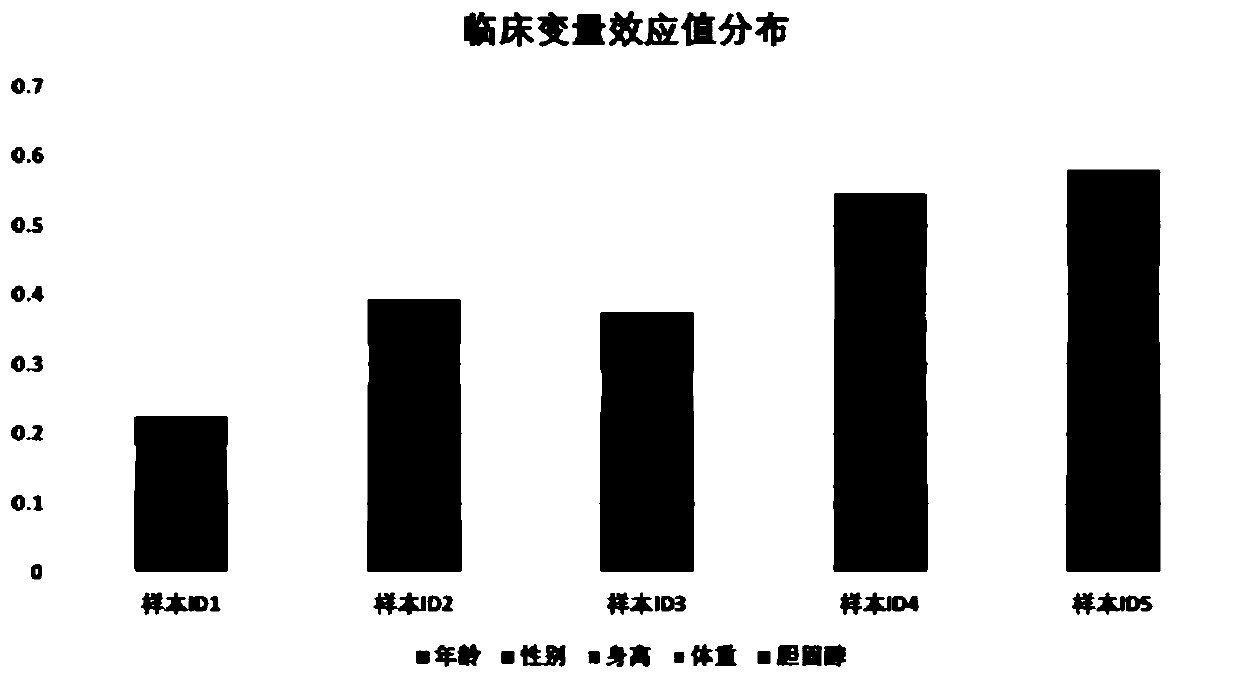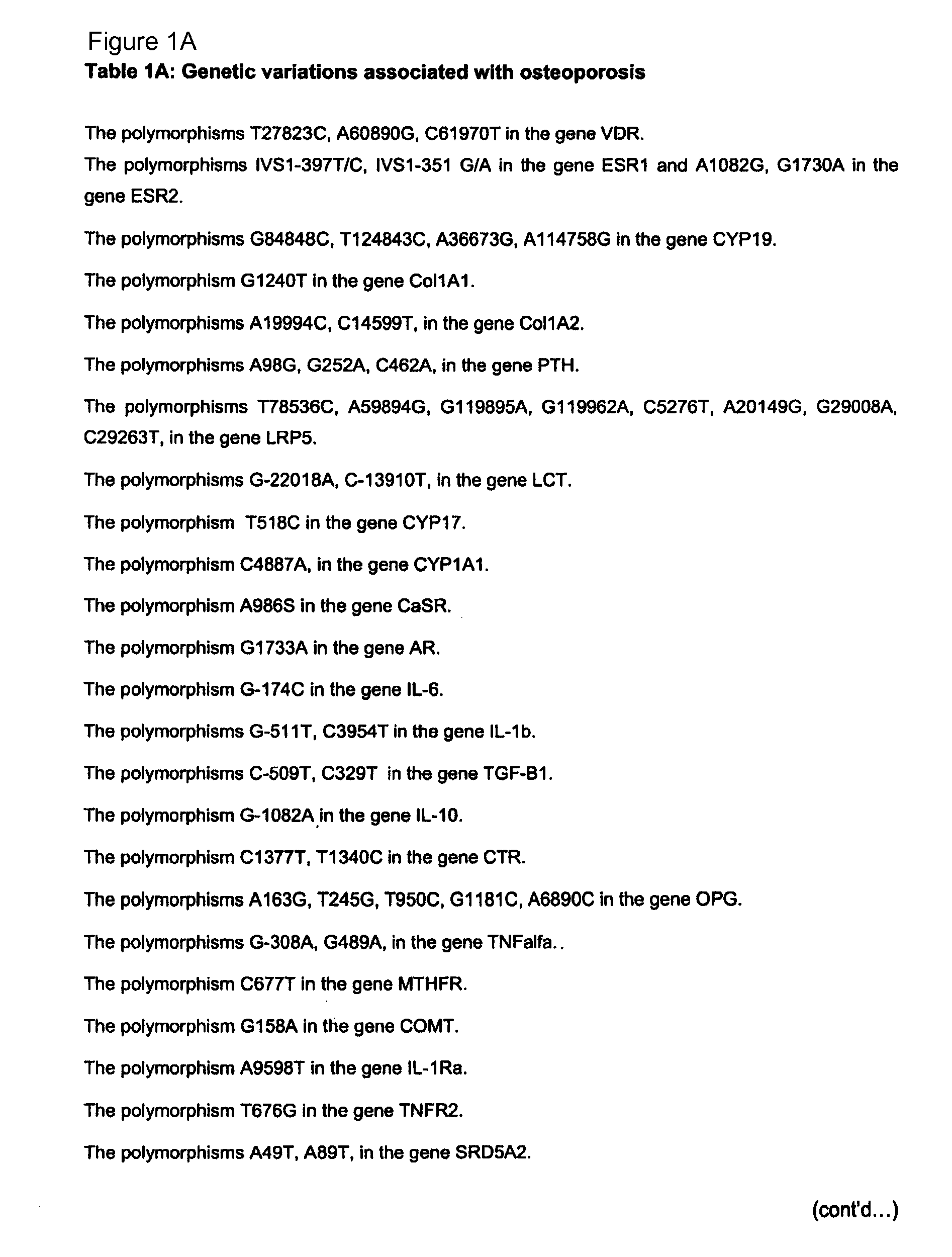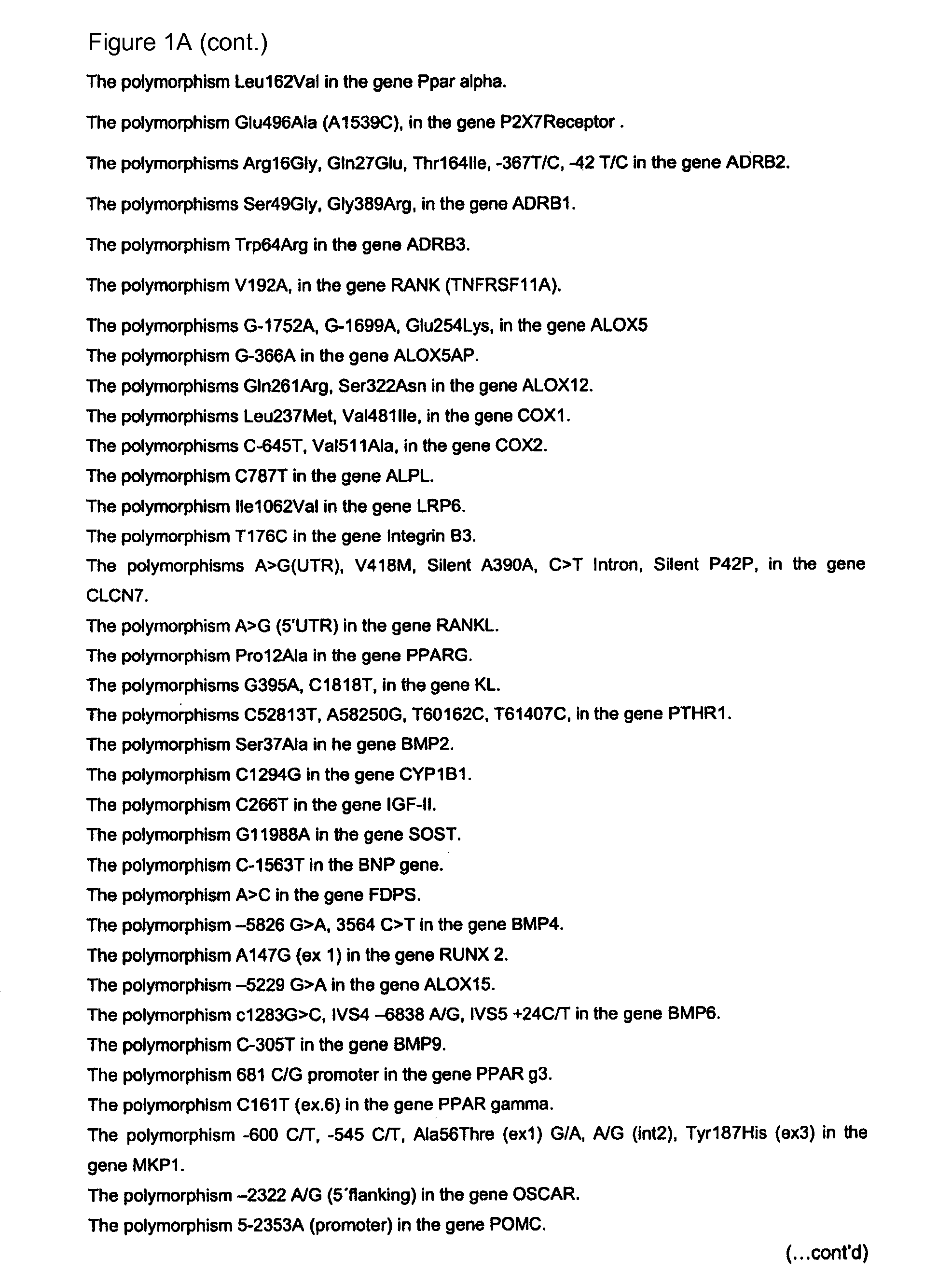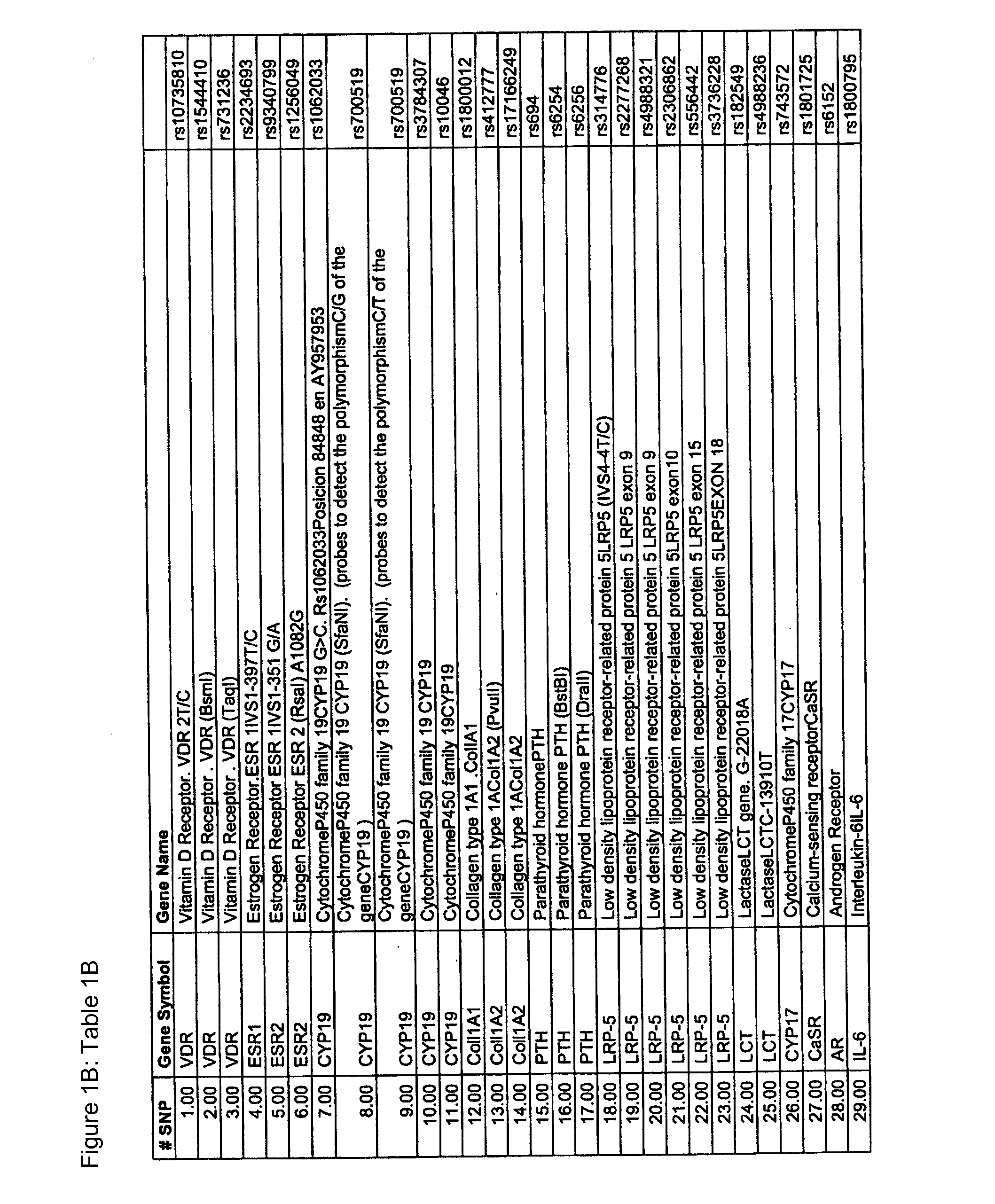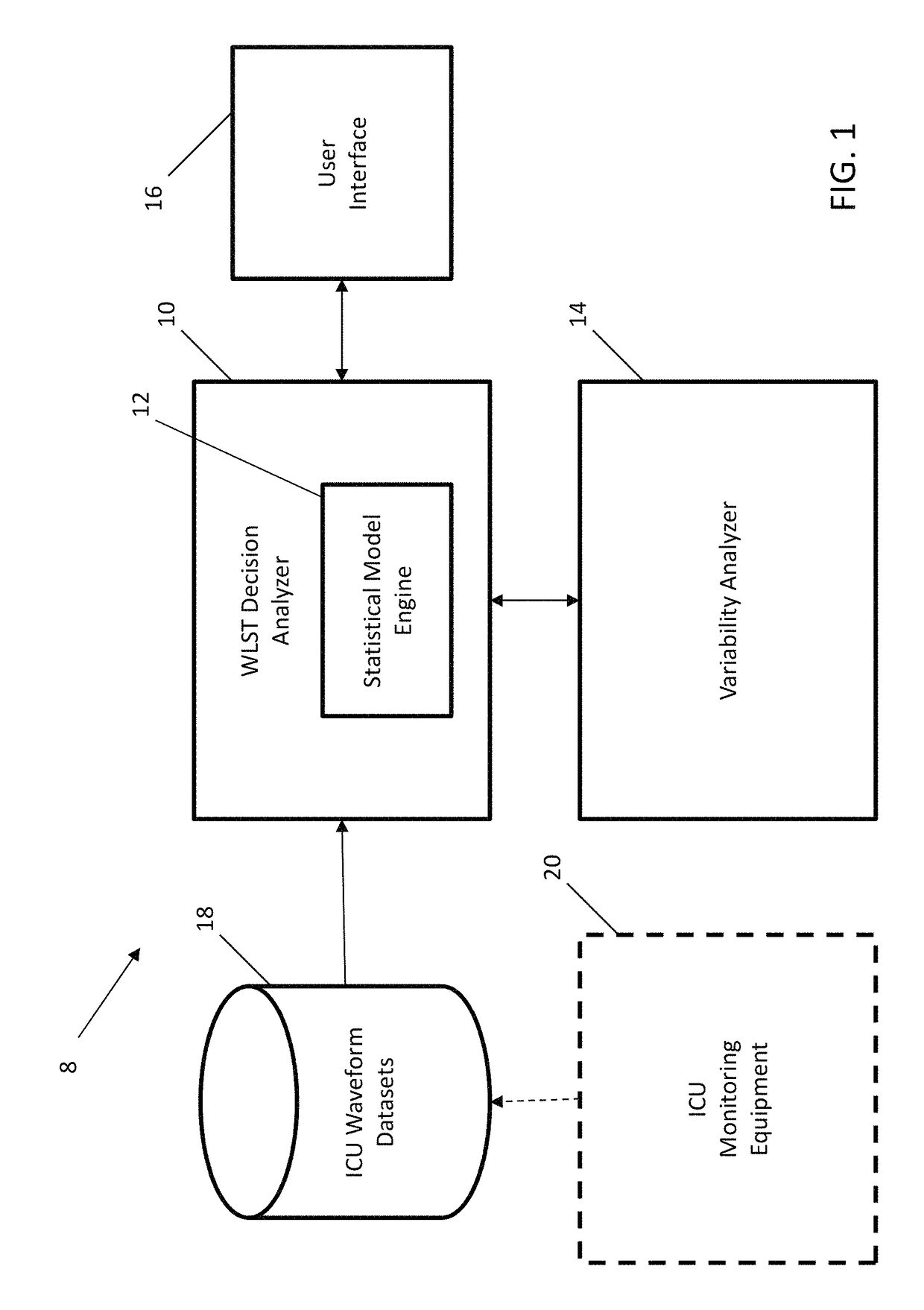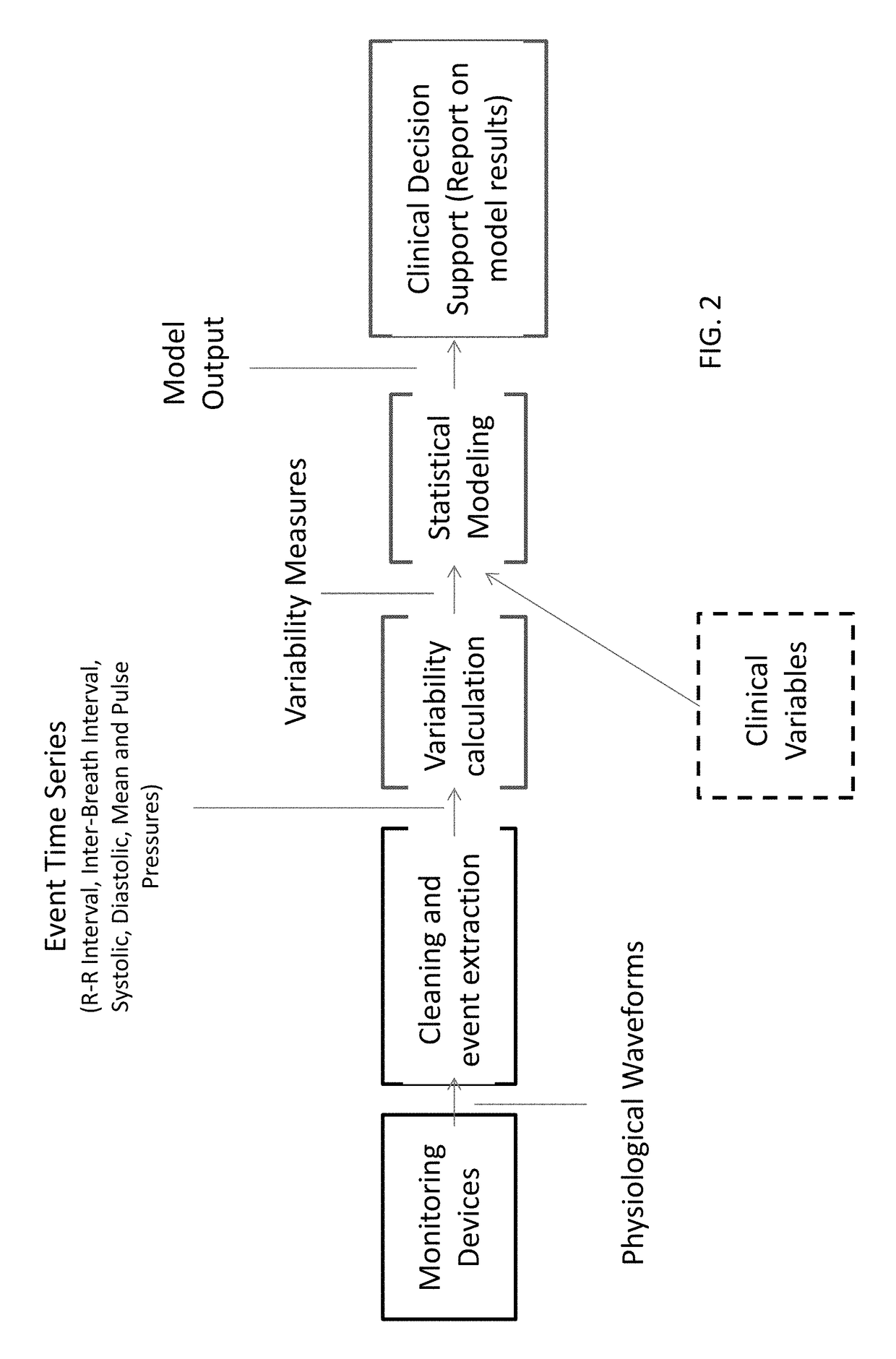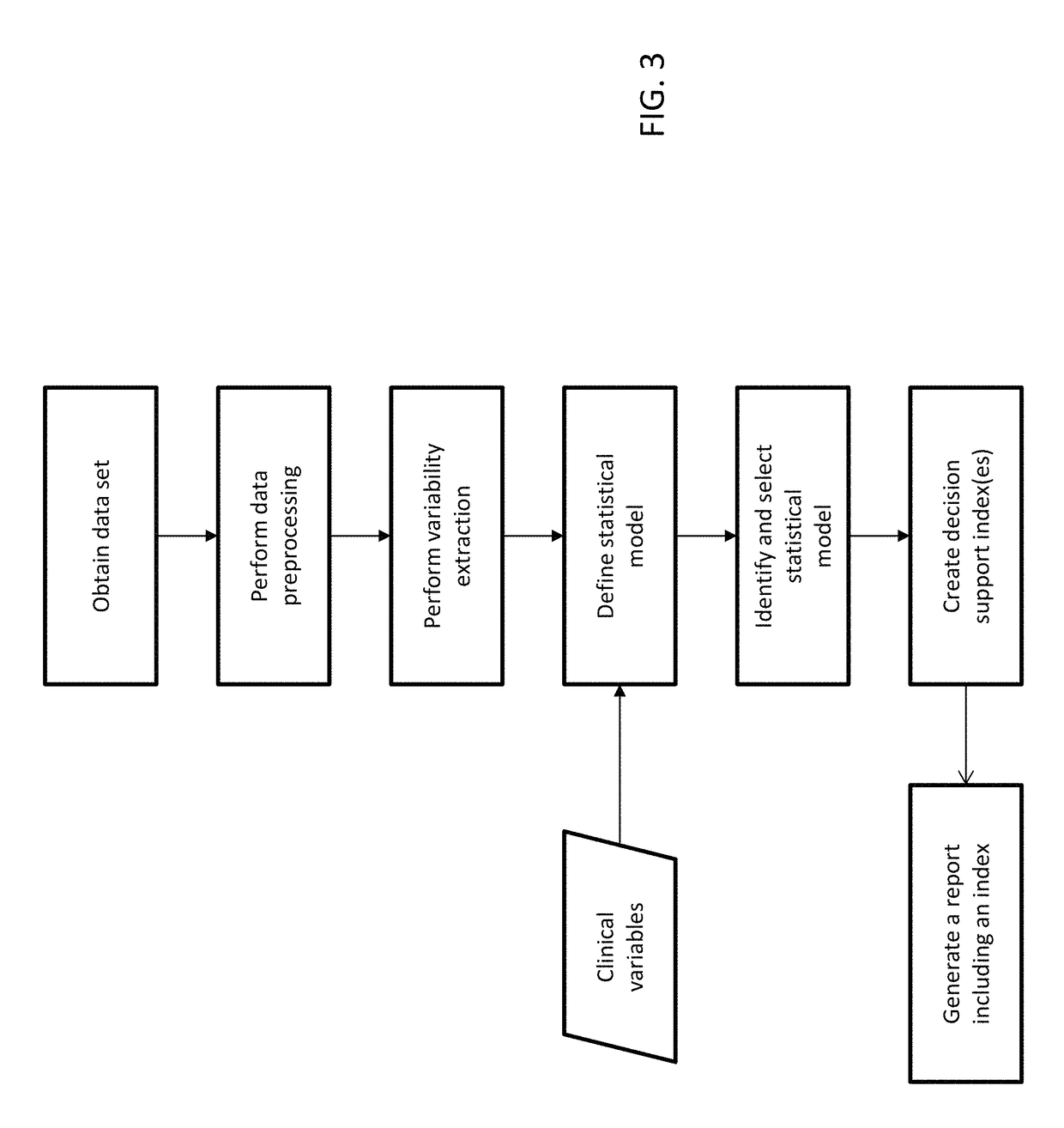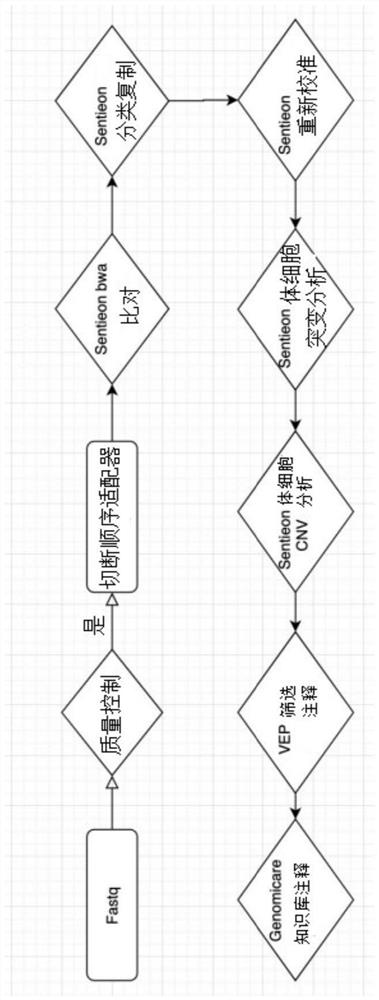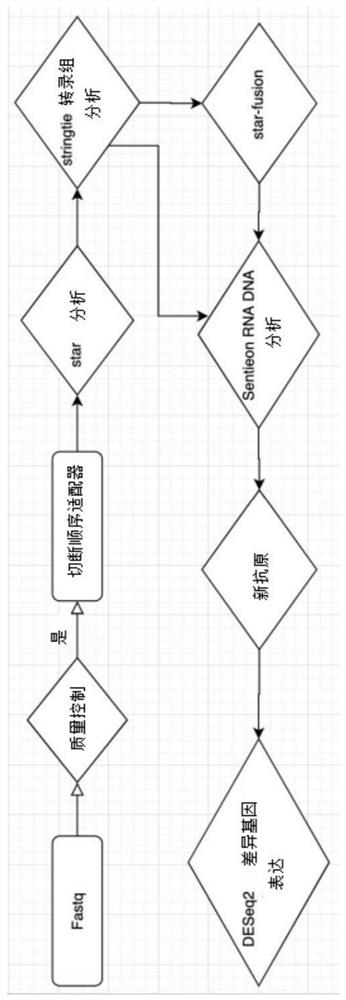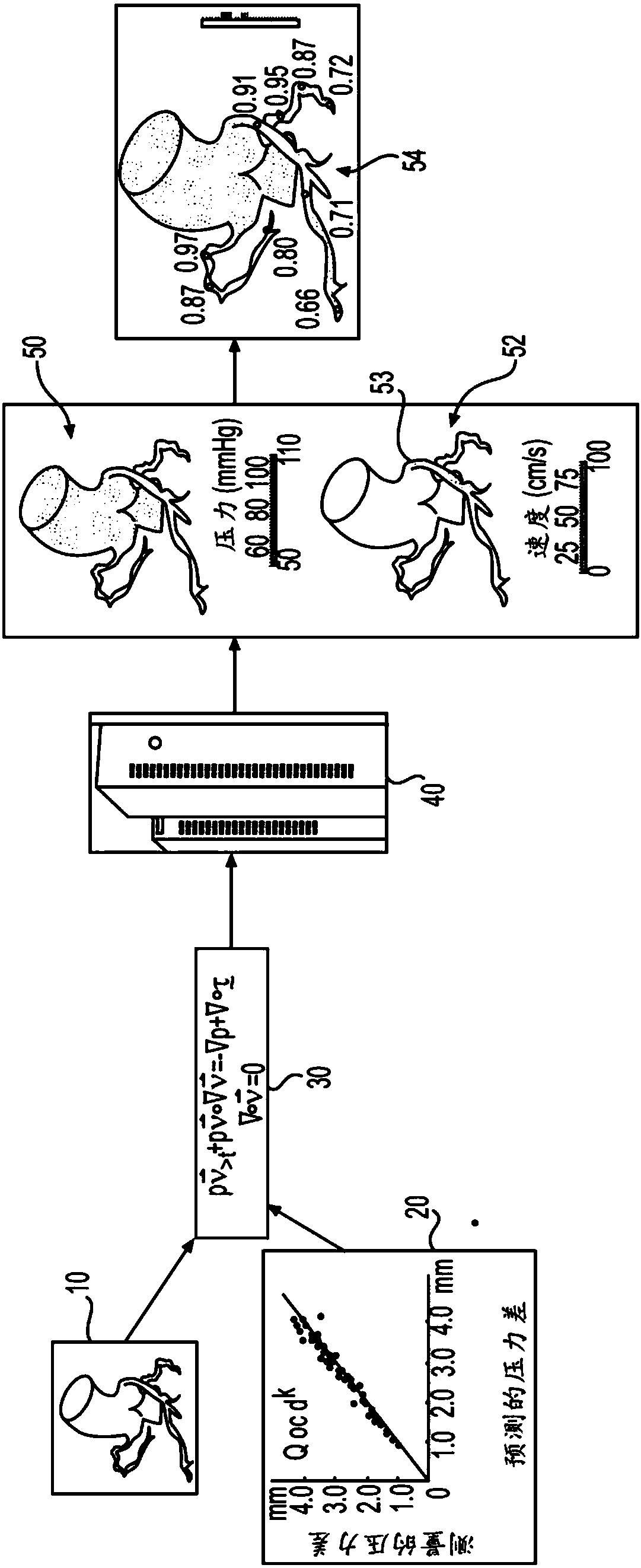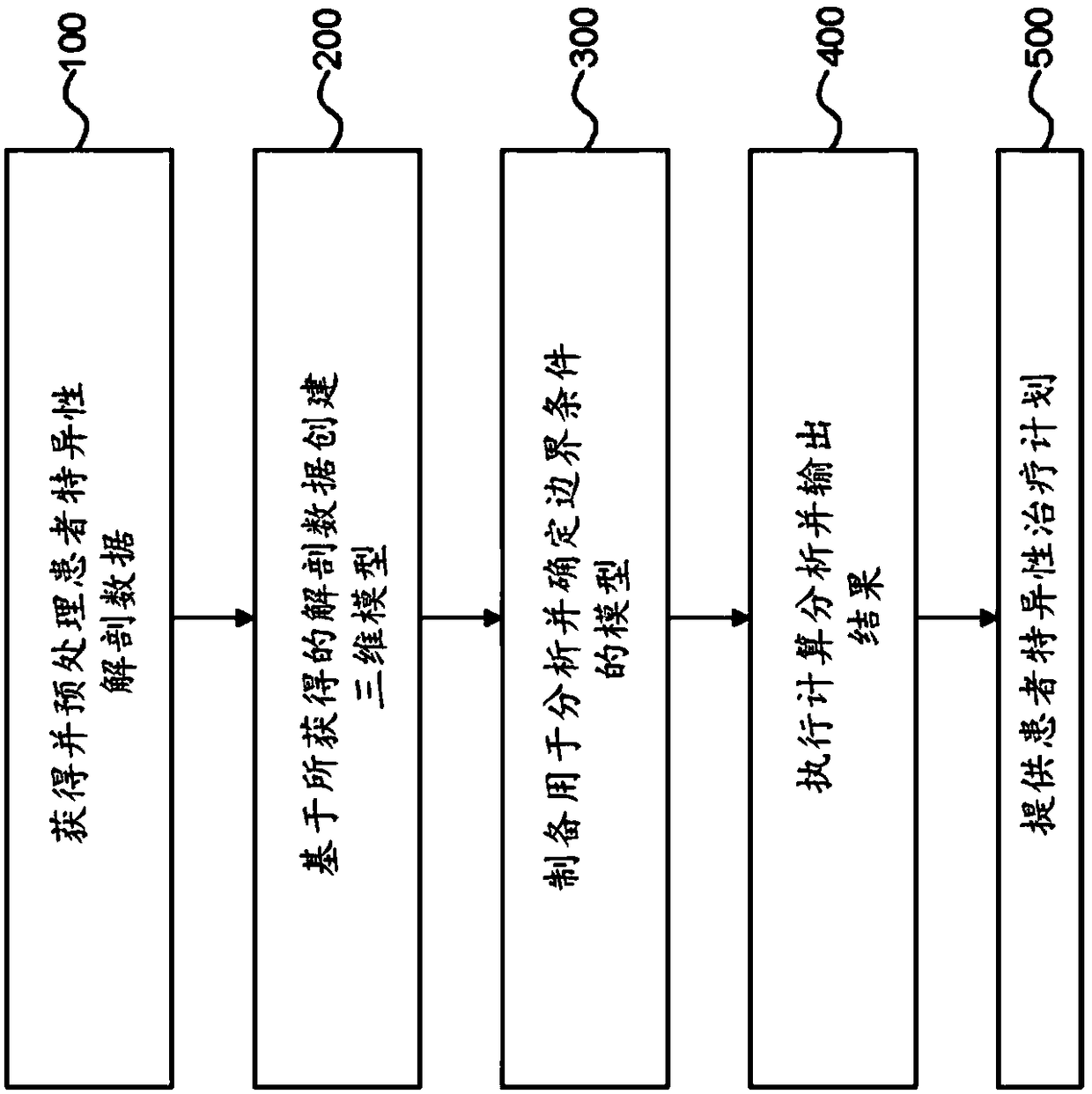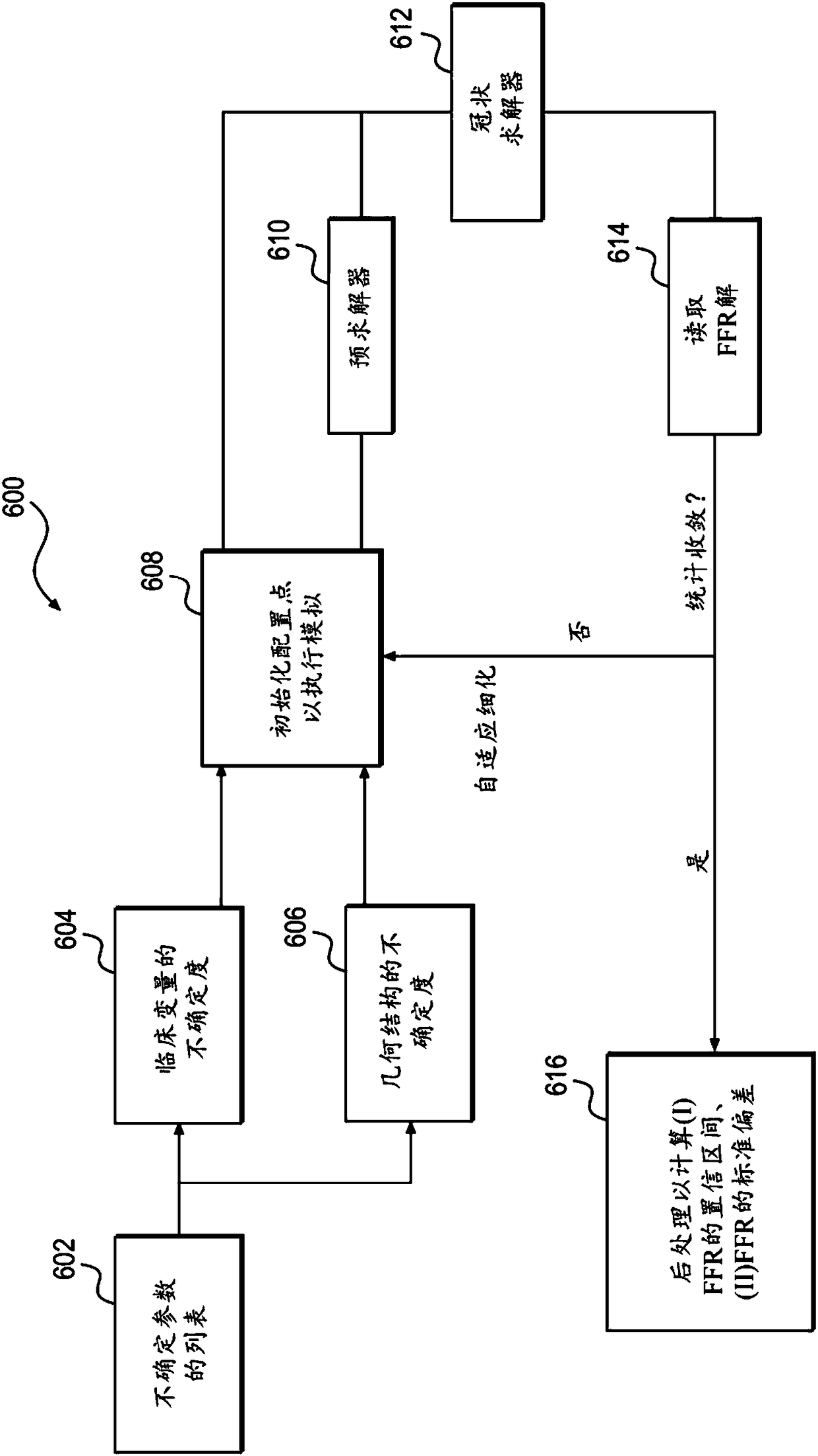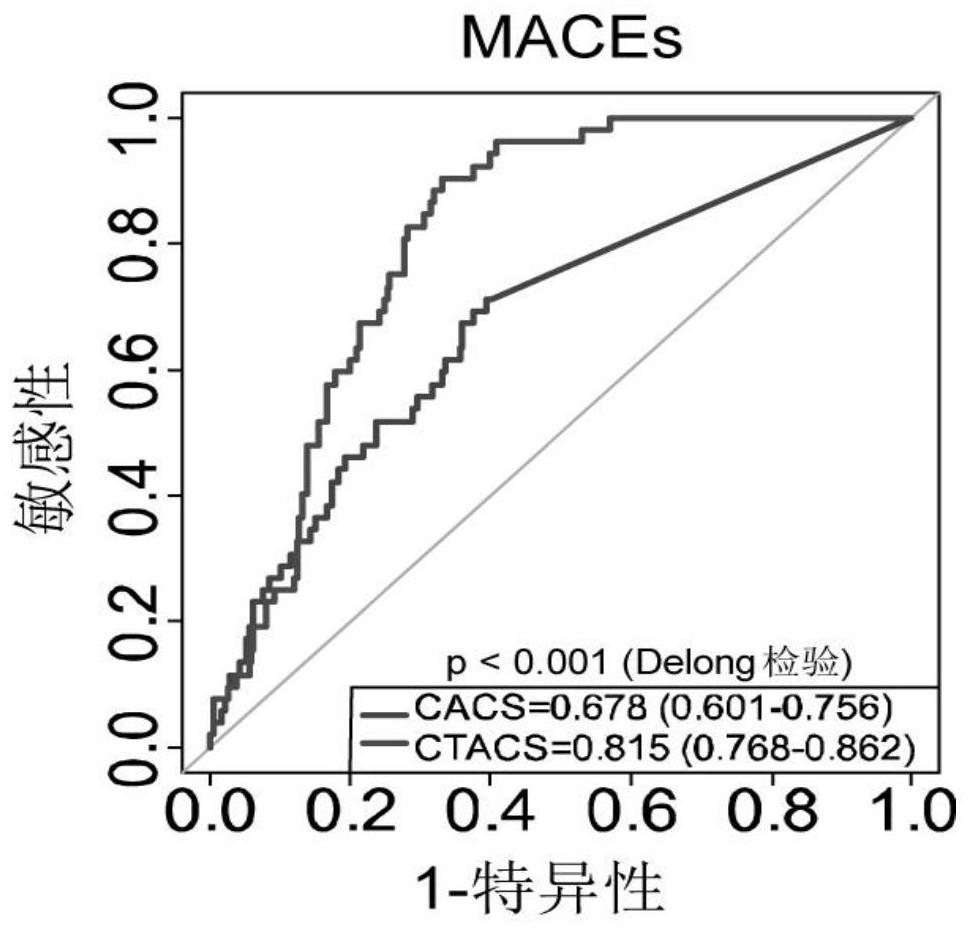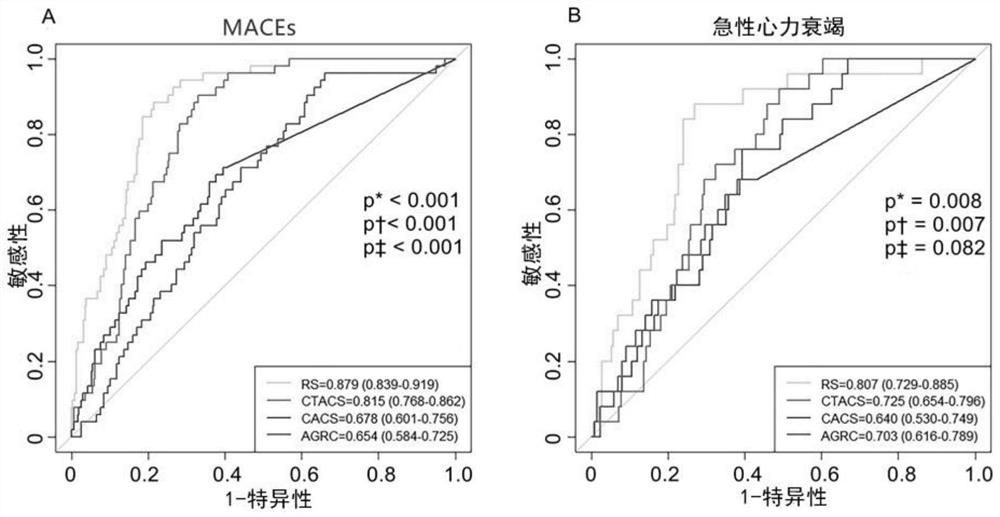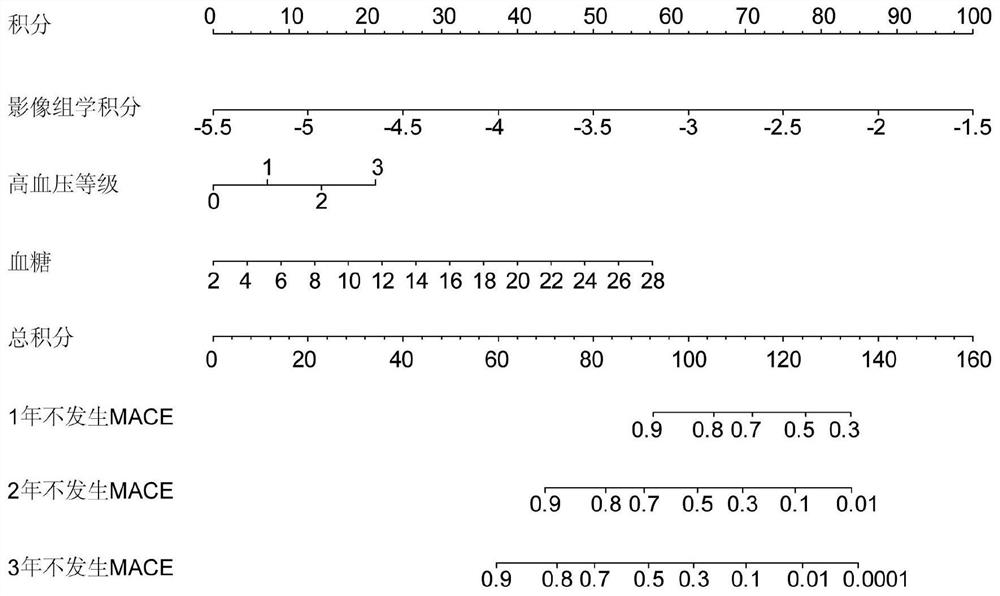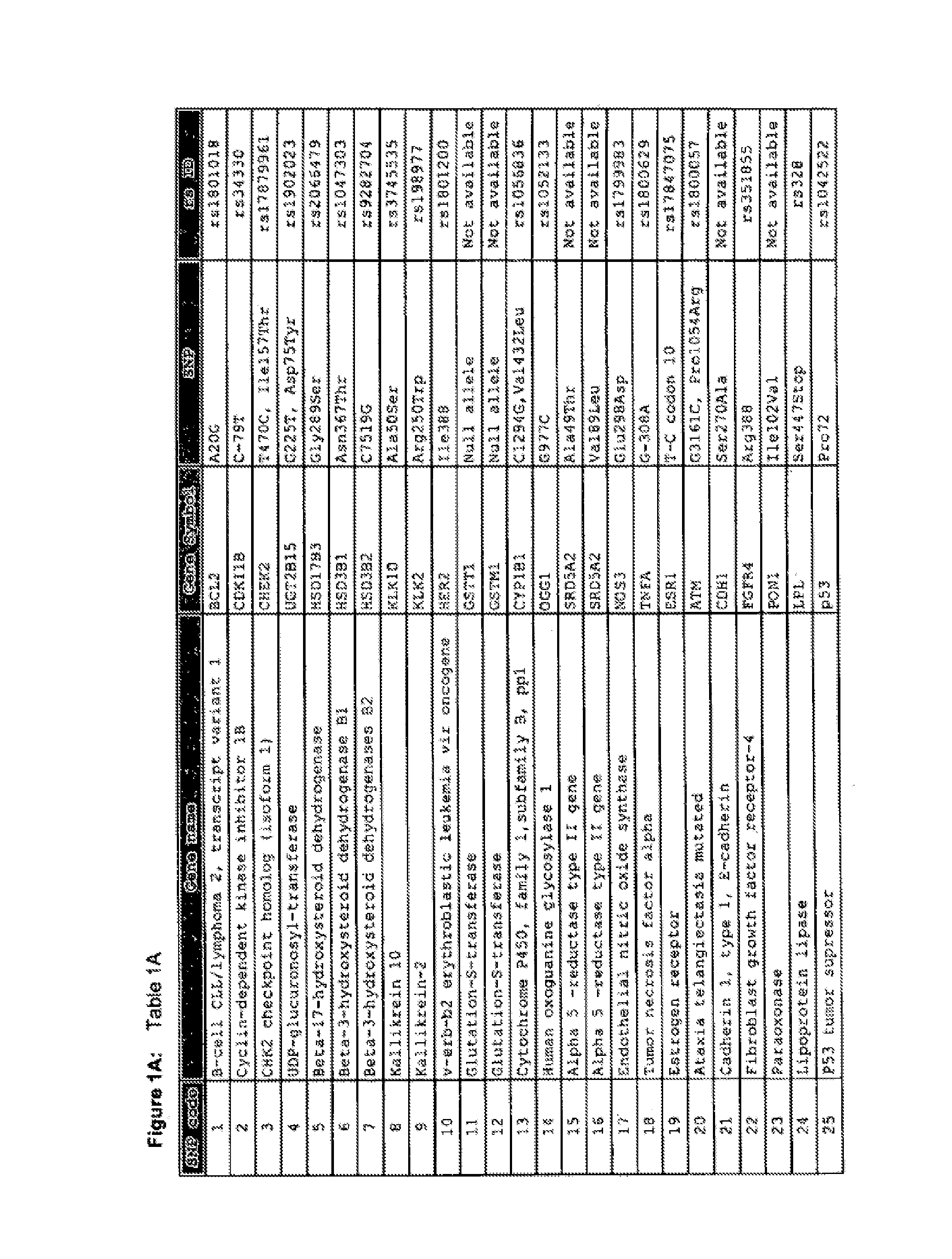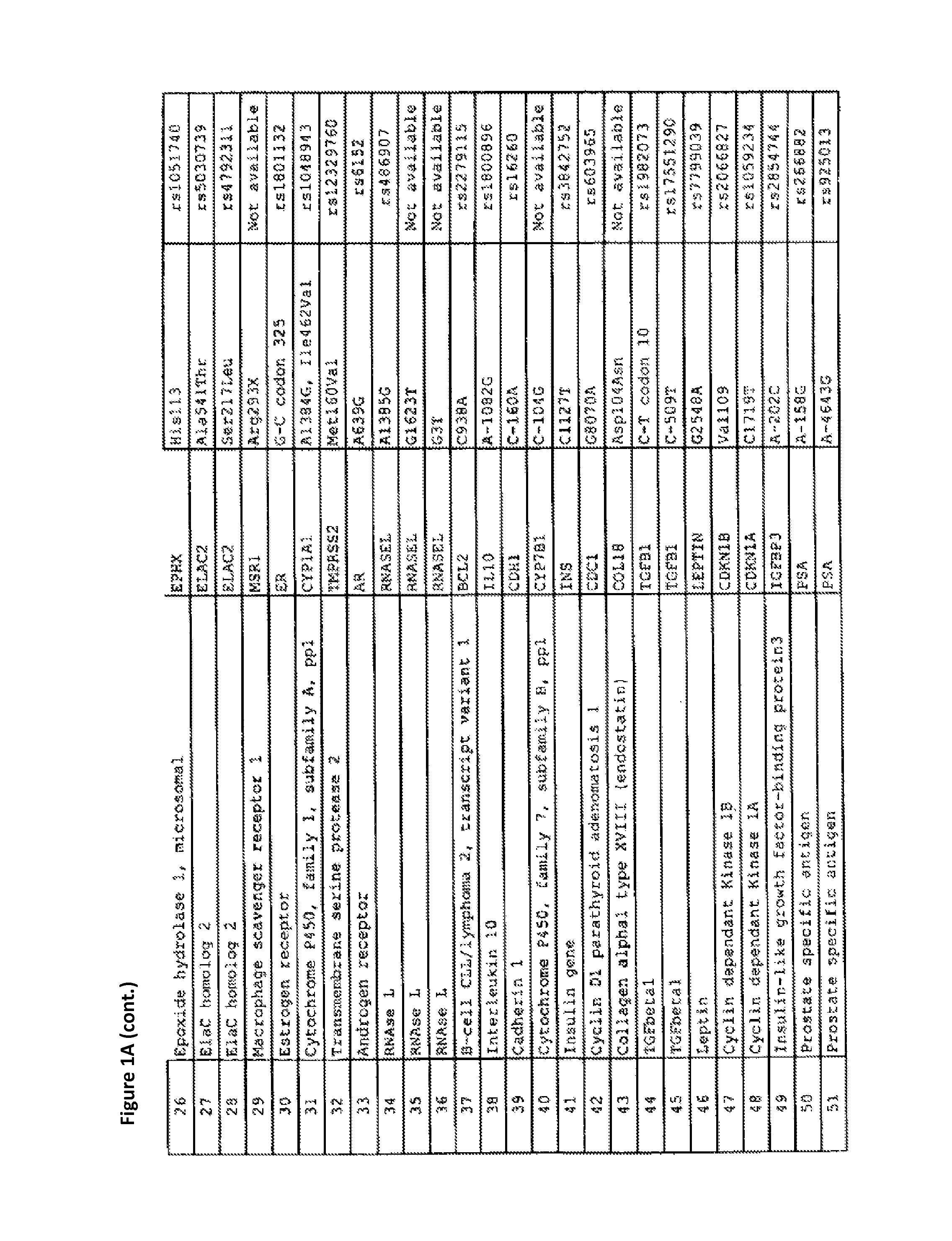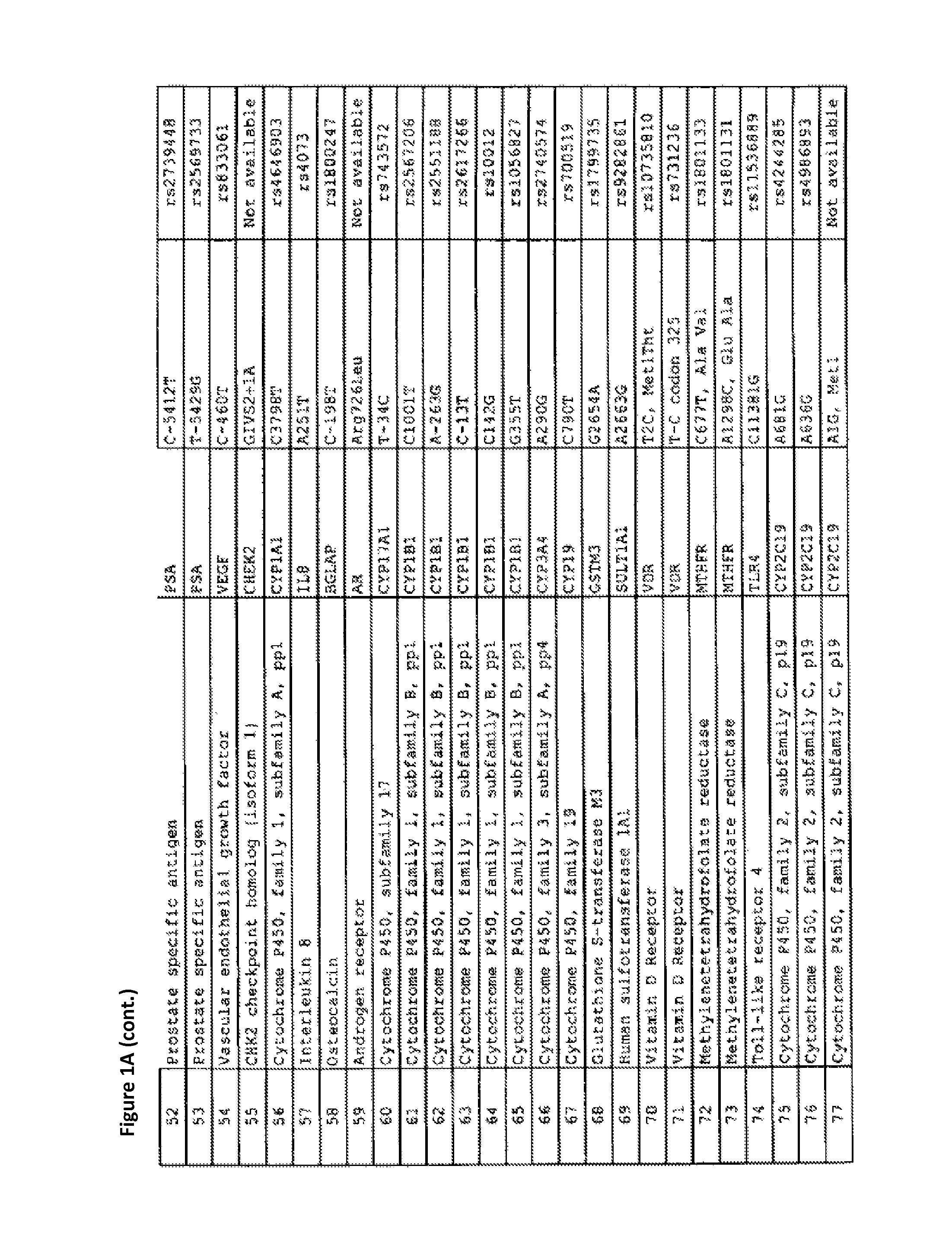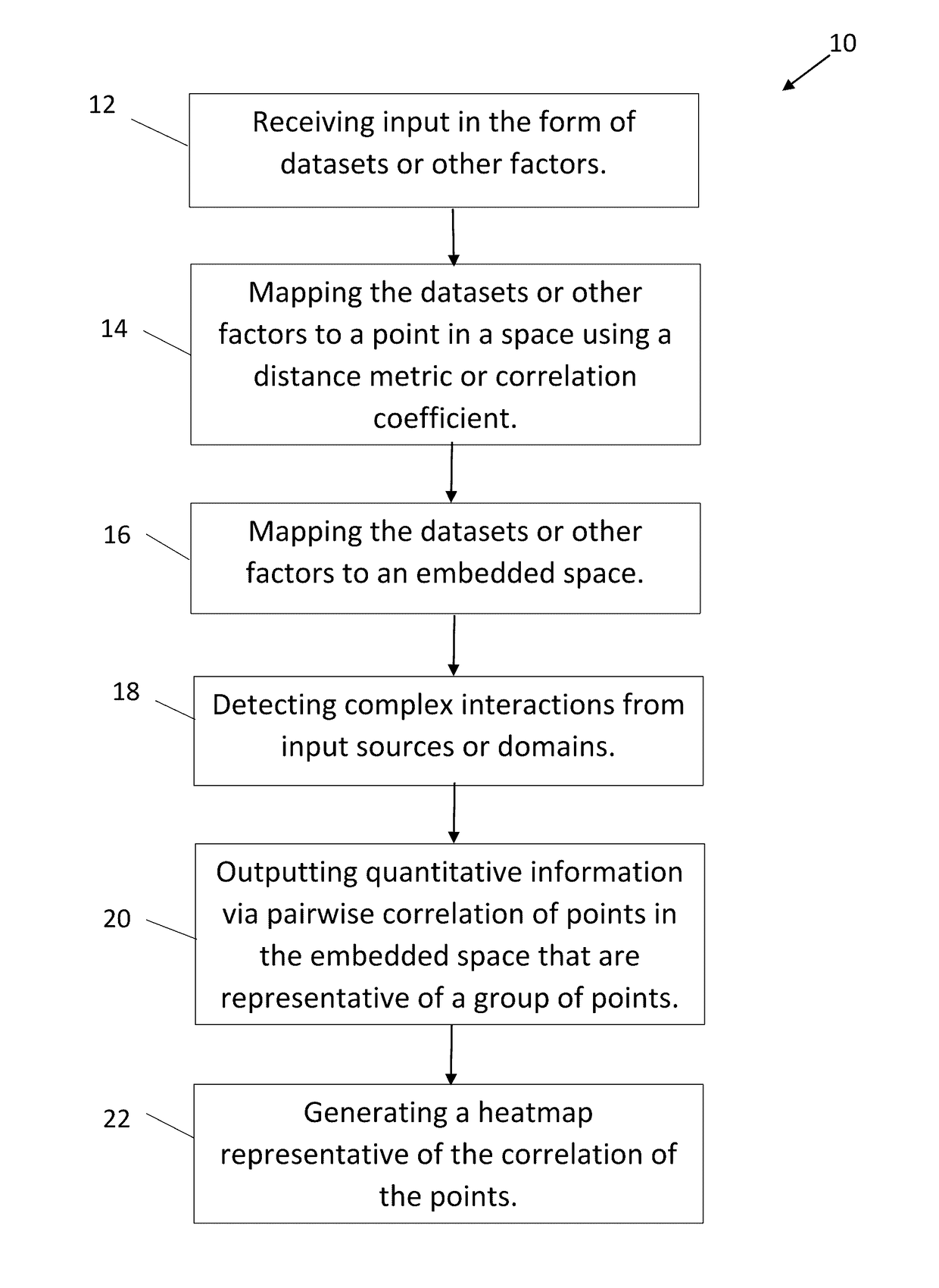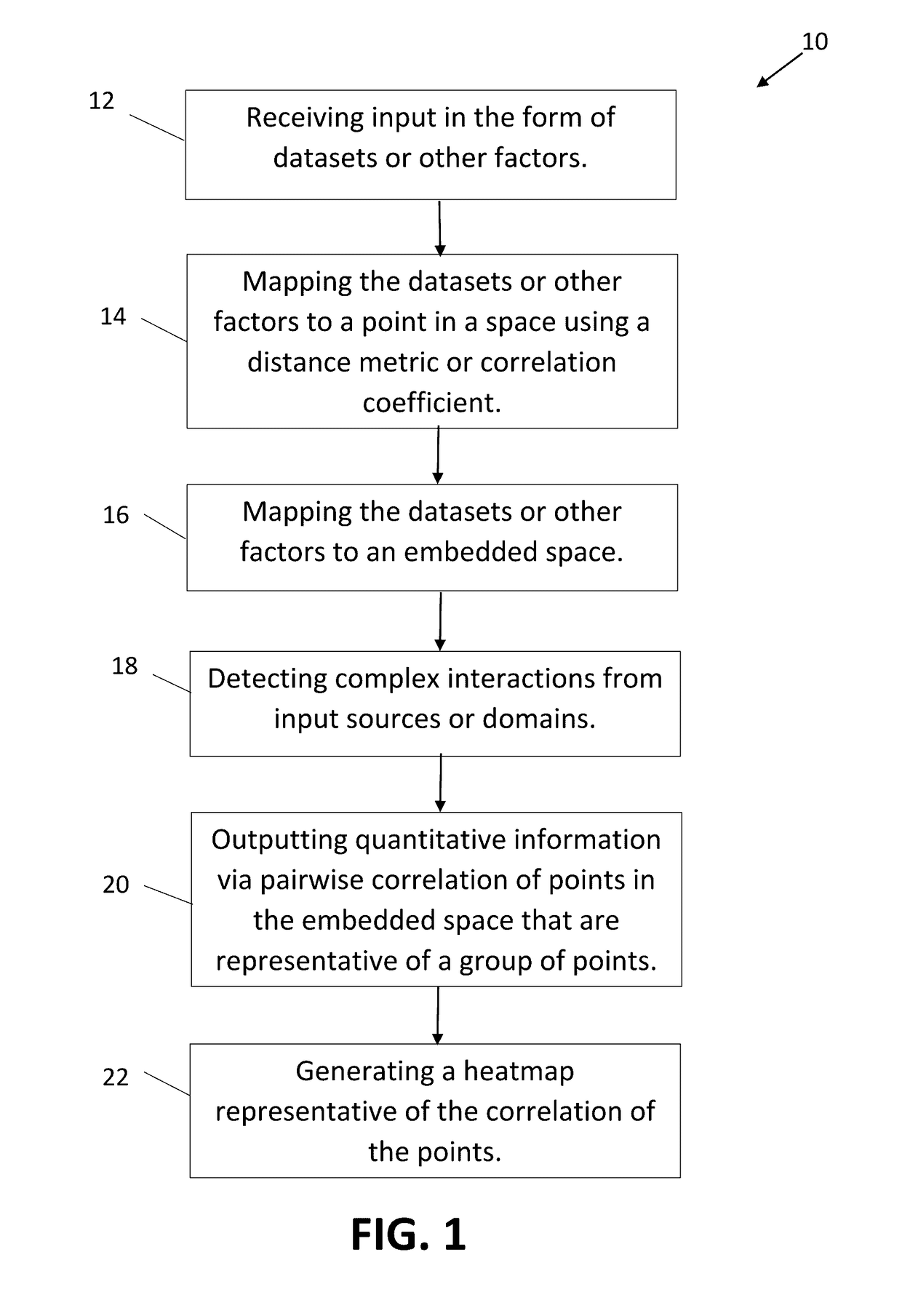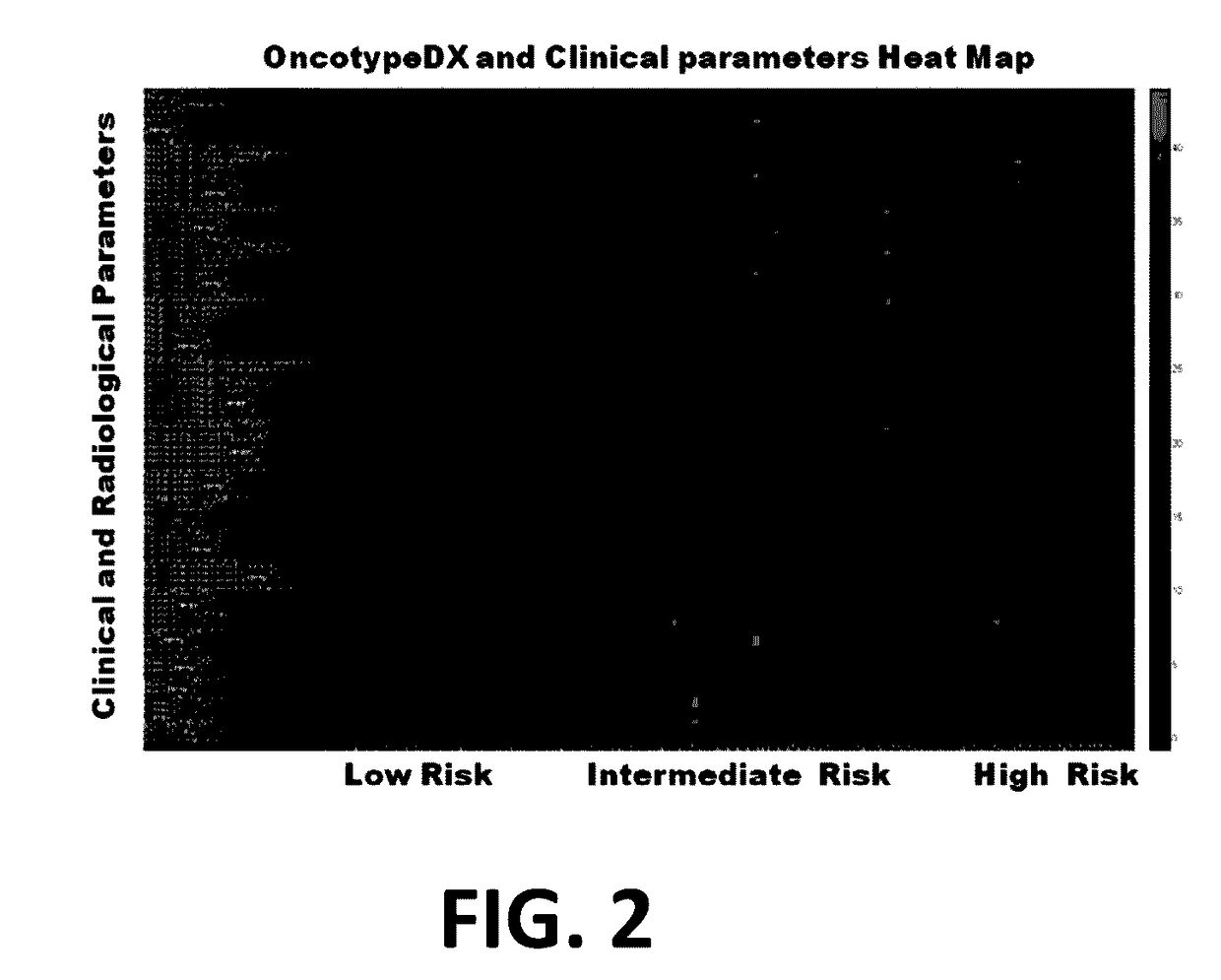Patents
Literature
30 results about "Clinical variables" patented technology
Efficacy Topic
Property
Owner
Technical Advancement
Application Domain
Technology Topic
Technology Field Word
Patent Country/Region
Patent Type
Patent Status
Application Year
Inventor
Variables are typically assessed in a clinical trial. (2) In Study Data Tabulation Model (SDTM), variables describe observations with roles that determine the type of information conveyed by the variable about each observation and how it can be used.
Integrated data collection and analysis for clinical study
A data collection system includes remote, implantable sensors for monitoring one or more patient parameters, collecting and processing data from those sensors and utilizing that data in the performance of a clinical study of a drug or other pharmacological agent. The system assists with preparation of a protocol for a clinical trial; presentation of that protocol; assuring compliance with the protocol; and generating useful results from data collected via the system and externally for presentation to an approval forum.
Owner:MEDTRONIC INC
Clinical variable determination
A computer implemented method of determining a clinical variables utilizing an insulin pump that includes initiating blood glucose measurements, initiating ingestion of carbohydrates and receiving input data based on the blood glucose measurements and the ingestion of carbohydrates and utilizing the data to calculate clinical variables. The invention may include presenting instructions to a patient to take various actions and to input various data. The clinical variables determined may be stored in memory and then used to calculate insulin doses and to send a signal to an insulin pump to infuse the insulin dose calculated.
Owner:TANDEM DIABETES CARE INC
Systems and Methods for Pharmacogenomic Decision Support in Psychiatry
InactiveUS20140046696A1Medical simulationData processing applicationsClinical variablesDecision taking
The present invention provides methods and systems or apparatuses, to analyze multiple molecular and clinical variables from an individual diagnosed with a psychiatric disorder, such as post-traumatic stress disorder (PTSD), in order to optimize medication selection for therapeutic response. Molecular co-variables include polymorphisms in genes including those involved in central control and mediation of the hypothalamic-pituitary axis (HPA) stress response, the density of methylation in regulatory regions of said polymorphic genes, polymorphisms in genes that encode cytochrome P450 enzymes responsible for drug metabolism, and drug-drug and drug-gene interactions. Clinical co-variables include but are not limited to the sex, age and ethnicity of that individual, medication history, family history, diagnostic codes, Pittsburgh insomnia rating score, and Charlson index score. The system makes a determination based on unstructured and structured data types derived from internal and external knowledge resources to determine psychotropic drug choice that best matches the molecular and clinical variation profile of an individual patient. The decision support system provides a therapeutic recommendation for a clinician based on the patient's variation profile.
Owner:ASSUREX HEALTH INC
Method and System for Predictive Modeling of Patient Outcomes
InactiveUS20080235049A1Medical simulationData processing applicationsPredictive modellingPredictive methods
A method and system for predictive modeling of patient outcomes. The predictive method includes the steps of applying an algorithm to patient data and displaying predicted patient data. The predictive method may further include the step of adjusting one or more clinical variables. The system includes a database of patient data, a rules engine operably connected to the database wherein the rules engine is capable of applying algorithms to the patient data to generate predicted patient data, and a user interface operably connected to the database.
Owner:GENERAL ELECTRIC CO
Clinical variable determination
A computer implemented method of determining a clinical variables utilizing an insulin pump that includes initiating blood glucose measurements, initiating ingestion of carbohydrates and receiving input data based on the blood glucose measurements and the ingestion of carbohydrates and utilizing the data to calculate clinical variables. The invention may include presenting instructions to a patient to take various actions and to input various data. The clinical variables determined may be stored in memory and then used to calculate insulin doses and to send a signal to an insulin pump to infuse the insulin dose calculated.
Owner:TANDEM DIABETES CARE INC
Method and system for sensitivity analysis in modeling blood flow characteristics
Embodiments include systems and methods for determining cardiovascular information for a patient. A method includes receiving patient-specific data regarding a geometry of the patient's vasculature; creating an anatomic model representing at least a portion of the patient's vasculature based on the patient-specific data; and creating a computational model of a blood flow characteristic based on the anatomic model. The method also includes identifying one or more of an uncertain parameter, an uncertain clinical variable, and an uncertain geometry; modifying a probability model based on one or more of the identified uncertain parameter, uncertain clinical variable, or uncertain geometry; determining a blood flow characteristic within the patient's vasculature based on the anatomic model and the computational model of the blood flow characteristic of the patient's vasculature; and calculating, based on the probability model and the determined blood flow characteristic, a sensitivity of the determined fractional flow reserve to one or more of the identified uncertain parameter, uncertain clinical variable, or uncertain geometry.
Owner:HEARTFLOW
Informatics platform for integrated clinical care
ActiveCN108028077AAchieve integrationMedical communicationNatural language translationClinical variablesClinical care
An informatics platform provides an architecture to integrate information from relevant patient information systems. The informatics platform may include: a workflow tool that can be used to prepare and review information at multi-disciplinary board meetings; a visual timeline of patient events; a search engine to search for patients with specific attributes; a graphing tool that can display disparate clinical variables in a single chart; a virtual Pin Board for users to identify relevant patient information for board meetings; an image viewing application that can provide for comparison of images from different information systems; structured reporting functionality that incorporates system aggregated patient information and board recommendations; an application interface that integratesclinically relevant tools to provide patient specific references; a collaboration interface that facilitates communication of patient specific information and documents the discussion threads as independent reference points; and a default display of relevant patient information customized for each clinical specialty.
Owner:F HOFFMANN LA ROCHE & CO AG
Method of predicting the evolution of a patient suffering of stroke
InactiveUS20140045198A1Improve the level ofPositive correlation of the systemic levelsBioreactor/fermenter combinationsBiological substance pretreatmentsDiseaseClinical variables
The invention is a method of predicting the evolution of a patient suffering of a neurovascular disease, preferably stroke, comprising obtaining a biological sample of said patient, assessing in said biological sample the level of endostatin and FasL, determining whether said levels of endostatin and FasL together are above or below predetermined cut-off levels and predicting the functional outcome of said neurovascular disease on said patient evaluating the result of the previous step. The combination of endostatin and FasL is a more powerful predictor that any clinical prognostic tool and adds significant prognostic value to all other clinical variables of the art.
Owner:INSTITUT DE RECERCA HOSPITAL UNIVRI VALL DHEBRON
Diagnosis prediction method of bidirectional recurrent neural network based on attention
ActiveCN109887606AReasonably explain the prediction resultsMedical simulationMedical data miningClinical variablesState representation
The invention discloses a diagnosis prediction method of a bidirectional recurrent neural network based on attention, and relates to the technical field of prediction diagnosis. The diagnosis prediction method firstly embeds high-dimensional medical codes (ie, a clinical variable) into a low code layer space, and then inputs code representation into a bidirectional recurrent neural network based on attention to generate hidden state representation. The diagnosis prediction method inputs the hidden representation through a softmax layer so as to predict medical codes accessed in future. The experimental data shows that, by using the diagnosis prediction method of a bidirectional recurrent neural network based on attention, when predicting future access information, the attention mechanism can assign different weights to previous accesses, thus effectively completing the diagnosis and prediction task, and reasonably explaining the prediction result.
Owner:莫毓昌
System and Method for Assisting Decisions Associated with Events Relative to Withdrawal of Life-Sustaining Therapy Using Variability Measurements
ActiveUS20170071549A1Improve performanceEnhance outcomeProbabilistic networksAngiographyTime to deathClinical variables
A system and method are provided that employ the variability of physiological waveforms to estimate the time to death after WLST, or time to inadequate organ perfusion. From the variability data one can derive an index subsequently used to determine the probability of death (or inadequate organ perfusion) within a given time frame in an automated fashion from bedside monitors in the intensive or post-anesthesia care unit. The resulting variability index can also be combined with the clinical variables used in other death prediction tools to enhance the performance and outcome when compared to existing models. In at least one implementation, variability monitoring at the bedside could be used to provide estimates of the probability that a patient will die within a certain time frame after WLST. These estimates could be used to reduce the distress of the patients' families, as well as optimize the use of resources surrounding donation.
Owner:OTTAWA HOSPITAL RES INST
Mechanical ventilation system for respiration with decision support
InactiveUS20170255756A1Improve accuracyImprove precisionMedical simulationRespiratorsClinical variablesModel parameters
The invention relates to a mechanical ventilation system (10) for respiration of a patient (5), the system being adapted for providing decision support for mechanical ventilation. Control means (12) is adapted for using both first data (D1) and second data (D2), indicative of the respiratory feedback in the blood, in physiological models (MOD) descriptive of, at least, lung mechanics, and / or gas exchange in the lungs of the patient, the physiological models comprising a number of model parameters (MOD_P). The control means is further arranged for simulating the effect on one, or more, model parameters (MOD_P) of the physiological models for a suggested value of the positive end expiratory pressure (PEEP) setting for the ventilation means, and thereby provide decision support in relation to said suggested PEEP value. The invention is advantageous for providing mathematical based models of changes in physiology in response to changes in ventilator settings of the PEEP thereby allowing mathematical physiological models to predict changes in clinical variables for a given value of PEEP.
Owner:MERMAID CARE
Diagnostic method
InactiveUS20100069334A1Suitable for detectionBiocideDigital data processing detailsDysostosisClinical variables
A method for prognosing osteoporosis phenotypes or estimating osteoporosis quantitative traits comprising determining outcomes for selected SNP variables and clinical variables. Products and methods for genotyping multiple osteoporosis associated genetic variations.
Owner:BIOIBI12RICA +1
Prognostic method
ActiveUS20100185429A1Nucleotide librariesMicrobiological testing/measurementClinical variablesDNA microarray
A method for prognosing recurrence of prostate cancer (PCa) in a subject following prostatectomy using the outcomes of selected single nucleotide polymorphisms (SNPs) and clinical variables. A method for genotyping PCa associated genetic variations comprising use of a DNA microarray. A microarray for use in the described methods.
Owner:PROGENIKA BIOPHARMA SA
Diagnostic and prognostic methods for cardiovascular diseases and events
PendingUS20210072260A1Easy to determinePositive prognosisCatheterDisease diagnosisClinical variablesCardio vascular disease
Owner:PREVENCIO
DME prognostic information prediction system based on integrated machine learning and application method thereof
InactiveCN110309862AImprove forecast accuracyEnsemble learningMedical imagesClinical variablesComputer module
The invention provides a DME prognostic information prediction system based on integrated machine learning and an application method thereof. The DME prognostic information prediction system is characterized in that a preprocessing module for preprocessing data; a feature extraction module performs image feature extraction on the preprocessed image by using three deep learning models; a network construction module is used for constructing a deep learning network; a feature fusion module fuses the obtained image features; a data processing module processes the image fusion features and text data generated by the deep learning network to generate a probability distribution map; and a prediction module generates prediction values of CFT and BCVA according to the probability distribution map.The multi-mode human activity recognition system and the application method thereof can construct a deep learning network through the network construction module to process the OCT image, can obtain fused image features and text features of the clinical variables by adding the clinical variables, and finally, performs CFT and BCVA prediction by the prediction module, so that objective prediction values are accurately provided, and the prediction precision is effectively improved, and the defects of a traditional prediction method are overcome.
Owner:GUANGDONG GENERAL HOSPITAL
Methods of prognosing a rheumatoid arthritis remission phenotype
ActiveUS8712696B2Digital data processing detailsMicrobiological testing/measurementDNA microarrayClinical variables
A method for prognosing a rheumatoid arthritis phenotype using the outcomes of selected single nucleotide polymorphisms (SNPs) and clinical variables. A method for genotyping multiple rheumatoid arthritis associated genetic variations comprising use of a DNA microrarray. A microarray for use in the described methods.
Owner:PROGENIKA BIOPHARMA SA
Use of erythropoietin in the treatment of rheumatoid arthritis
InactiveUS20070249525A1Significant positive effectLower Level RequirementsBiocideOrganic active ingredientsClinical variablesErythropoiesis
A novel use of the known protein erythropoietin (EPO), and / or a derivative, and / or a fragment thereof, is disclosed. EPO is used as a pharmaceutical for the treatment of chronic inflammations. A particularly beneficial result is seen in patients suffering from rheumatoid arthritis (RA). Significant effects are seen in clinical variables such as morning stiffness, swollen joints, and the like.
Owner:ROCHE DIAGNOSTICS GMBH
Mechanical ventilation system for respiration with decision support
The invention relates to a mechanical ventilation system for respiration of a patient, the system being adapted for providing decision support for mechanical ventilation. Control means is adapted for using both first data and second data, indicative of the respiratory feedback in the blood, in physiological models (MOD) descriptive of, at least, lung mechanics, and / or gas exchange in the lungs of the patient, the physiological models comprising a number of model parameters (MOD_P). The control means is further arranged for simulating the effect on one, or more, model parameters (MOD_P) of the physiological models for a suggested value of the positive end expiratory pressure (PEEP) setting for the ventilation means, and thereby provide decision support in relation to said suggested PEEP value. The invention is advantageous for providing mathematical based models of changes in physiology in response to changes in ventilator settings of the PEEP thereby allowing mathematical physiological models to predict changes in clinical variables for a given value of PEEP.
Owner:TYCO HEALTHCARE GRP LP
Prognostic Method
A method for prognosing a rheumatoid arthritis phenotype using the outcomes of selected single nucleotide polymorphisms (SNPs) and clinical variables. A method for genotyping multiple rheumatoid arthritis associated genetic variations comprising use of a DNA microrarray. A microarray for use in the described methods.
Owner:PROGENIKA BIOPHARMA SA
Informatics radiomics integration system (IRIS): a novel combined informatics and radiomics method for integration of many types of data for classification into different groups for improved visualization
An embodiment in accordance with the present invention includes a novel informatics method for the integration of different variables or ontologies using an advanced unsupervised machine learning method which will be used to visualize factors not visible to the human observer. These factors can be unknown characteristics between imaging datasets and other factors which will provide insights into the structure of the data. This invention is called the Informatics Radiomics Integration System (IRIS), For example, using clinical data and radiological images, the present invention can determine the relationship between, the structure, clinical variables, histological variables and “distance or relationship” between each input parameter. This integration of information can be used to determine the association between the variables and the relationship to each other for improved diagnosis or for treatment response.
Owner:THE JOHN HOPKINS UNIV SCHOOL OF MEDICINE
Acute coronary syndrome symptom diagnosis model construction and application method
The invention discloses an acute coronary syndrome symptom diagnosis model construction and application method. The construction method comprises the following steps: collecting a blood sample and clinical data of a patient suffering from chest pain in hospital admission, centrifuging the blood sample by using an EDTA (Ethylene Diamine Tetraacetic Acid) anticoagulation tube, and separately storing a plasma sample obtained after centrifugation in a refrigerator at the temperature of-80 DEG C; the method comprises the following steps: carrying out protein precipitation on a plasma sample, oscillating, centrifuging, taking a supernatant for sample introduction, separating 12 ceramides in the plasma sample by using an ultra-high performance liquid chromatography system, establishing a calibration curve by using a mass spectrometer through a mass spectrum isotope internal standard quantification method, and detecting 12 ceramide molecule concentration values of all plasma samples; fitting a linear model of a logistic regression method based on traditional clinical variables of a patient with chest pain and troponin and ceramide data, and calculating optimal model parameters to obtain an acute coronary syndrome symptom diagnosis model; based on the acute coronary syndrome symptom diagnosis model, whether the patient is an ACS patient can be rapidly judged, and the accuracy is high.
Owner:JIANGSU QLIFE MEDICAL TECH GRP CO LTD +1
Decision analysis method based on clinical variable attributes
InactiveCN111292816AImprove accuracyAchieving Quantitative ResponsesMedical data miningDigital data information retrievalClinical variablesData source
The invention relates to a decision analysis method based on clinical variable attributes, and the method comprises the steps: employing a brand-new logic design method; based on sample objects of thesame data source, obtaining a primary effect value corresponding to the data for the data of each variable attribute corresponding to the sample object based on the discrimination of a numerical typevariable and a classification variable; then, based on the primary effect value, obtaining an L2 norm value of each variable attribute, and further obtaining a weight value of each variable attribute; and finally, combining the primary effect value to obtain an influence effect quantized value of the variable attribute on the sample object. Therefore, the quantitative reaction of the influence ofthe variable attribute on the sample object is realized, an objective and accurate data reference basis is provided for subsequent analysis and application of the variable attribute data, and the accuracy of final data analysis and application is effectively improved.
Owner:JIANGSU QLIFE MEDICAL TECH GRP CO LTD +1
Diagnostic method
InactiveUS8296073B2Digital data processing detailsMicrobiological testing/measurementClinical variablesOsteoporosis
A method for prognosing osteoporosis phenotypes or estimating osteoporosis quantitative traits comprising determining outcomes for selected SNP variables and clinical variables. Products and methods for genotyping multiple osteoporosis associated genetic variations.
Owner:BIOIBI12RICA +1
Use of erythropoietin in the treatment of chronic inflammation
InactiveUS9155782B2Significant positive effectLower Level RequirementsPeptide/protein ingredientsSkeletal disorderMedicineErythropoiesis-stimulating agent
A novel use of the known protein erythropoietin (EPO), and / or a derivative, and / or a fragment thereof, is disclosed. EPO is used as a pharmaceutical for the treatment of chronic inflammations. A particularly beneficial result is seen in patients suffering from rheumatoid arthritis (RA). Significant effects are seen in clinical variables such as morning stiffness, swollen joints, and the like.
Owner:ROCHE DIAGNOSTICS GMBH
System and method for assisting decisions associated with events relative to withdrawal of life-sustaining therapy using variability measurements
ActiveUS10172569B2Improve performanceRelieve painRespiratory organ evaluationProbabilistic networksTime to deathClinical variables
A system and method are provided that employ the variability of physiological waveforms to estimate the time to death after WLST, or time to inadequate organ perfusion. From the variability data one can derive an index subsequently used to determine the probability of death (or inadequate organ perfusion) within a given time frame in an automated fashion from bedside monitors in the intensive or post-anesthesia care unit. The resulting variability index can also be combined with the clinical variables used in other death prediction tools to enhance the performance and outcome when compared to existing models. In at least one implementation, variability monitoring at the bedside could be used to provide estimates of the probability that a patient will die within a certain time frame after WLST. These estimates could be used to reduce the distress of the patients' families, as well as optimize the use of resources surrounding donation.
Owner:OTTAWA HOSPITAL RES INST
Prediction method for synergistic drug combination
A method of using a computer to determine the effect of drug combination on the outcome of a treatment. A plurality of genomic and clinical variables may be generated from genomic data, EHR data, and clinical treatment data. The first drug and the second drug (or biomarker) are combined, and an independent risk factor, an accumulated risk ratio and a P value are calculated based on a Cox proportional risk model, so that the action property of the combination of the first drug and the second drug (or biomarker) on disease treatment is determined.
Owner:GENOMICARE BIOTECH SHANGHAI CO LTD
Prediction model for major adverse cardiovascular events based on thoracic artery calcification and construction method
PendingCN113476068AImprove featuresIncreased sensitivityMedical simulationComputerised tomographsClinical variablesImaging Feature
The invention discloses a prediction model for major adverse cardiovascular events based on thoracic artery calcification and a construction method. The method adopts computer high-throughput image features, enriches the description of calcification features, and thus improves the prediction accuracy of calcification indexes for MACEs. The image omics features of thoracic artery calcification are extracted based on CTACS by using an image omics analysis method, and new parameters for predicting MACEs, namely image omics integrals, are constructed. The parameters are significantly superior to traditional calcification evaluation parameters such as CTACS and CACS in predicting MACEs. At the same time, an image omics-clinical variable prediction model is constructed based on image omics integrals. The model has good prediction performance, can accurately predict whether MACEs occur in the future for patients, and assists doctors in individualized cardiovascular prevention and treatment, treatment schemes are adjusted timely, insufficient or excessive treatment is avoided, prognosis of patients is improved, life quality is also improved, and clinical application value is high.
Owner:THE EIGHTH AFFILIATED HOSPITAL SUN YAT SEN UNIV
Prognostic method
ActiveUS9109257B2Nucleotide librariesMicrobiological testing/measurementDNA microarrayClinical variables
A method for prognosing recurrence of prostate cancer (PCa) in a subject following prostatectomy using the outcomes of selected single nucleotide polymorphisms (SNPs) and clinical variables. A method for genotyping PCa associated genetic variations comprising use of a DNA microarray. A microarray for use in the described methods.
Owner:PROGENIKA BIOPHARMA SA
Informatics radiomics integration system (IRIS): a novel combined informatics and radiomics method for integration of many types of data for classification into different groups for improved visualization
An embodiment in accordance with the present invention includes a novel informatics method for the integration of different variables or ontologies using an advanced unsupervised machine learning method which will be used to visualize factors not visible to the human observer. These factors can be unknown characteristics between imaging datasets and other factors which will provide insights into the structure of the data. This invention is called the Informatics Radiomics Integration System (IRIS), For example, using clinical data and radiological images, the present invention can determine the relationship between, the structure, clinical variables, histological variables and “distance or relationship” between each input parameter. This integration of information can be used to determine the association between the variables and the relationship to each other for improved diagnosis or for treatment response.
Owner:THE JOHN HOPKINS UNIV SCHOOL OF MEDICINE
Features
- R&D
- Intellectual Property
- Life Sciences
- Materials
- Tech Scout
Why Patsnap Eureka
- Unparalleled Data Quality
- Higher Quality Content
- 60% Fewer Hallucinations
Social media
Patsnap Eureka Blog
Learn More Browse by: Latest US Patents, China's latest patents, Technical Efficacy Thesaurus, Application Domain, Technology Topic, Popular Technical Reports.
© 2025 PatSnap. All rights reserved.Legal|Privacy policy|Modern Slavery Act Transparency Statement|Sitemap|About US| Contact US: help@patsnap.com
